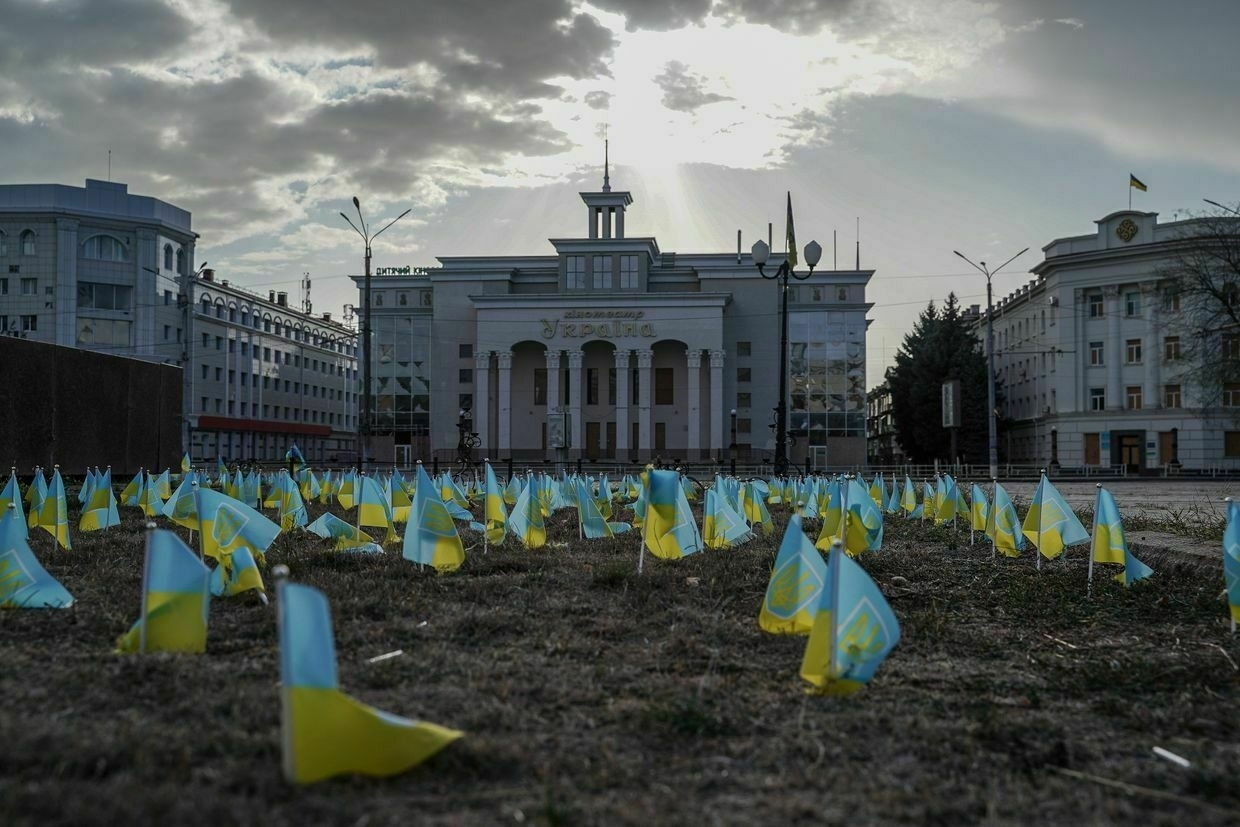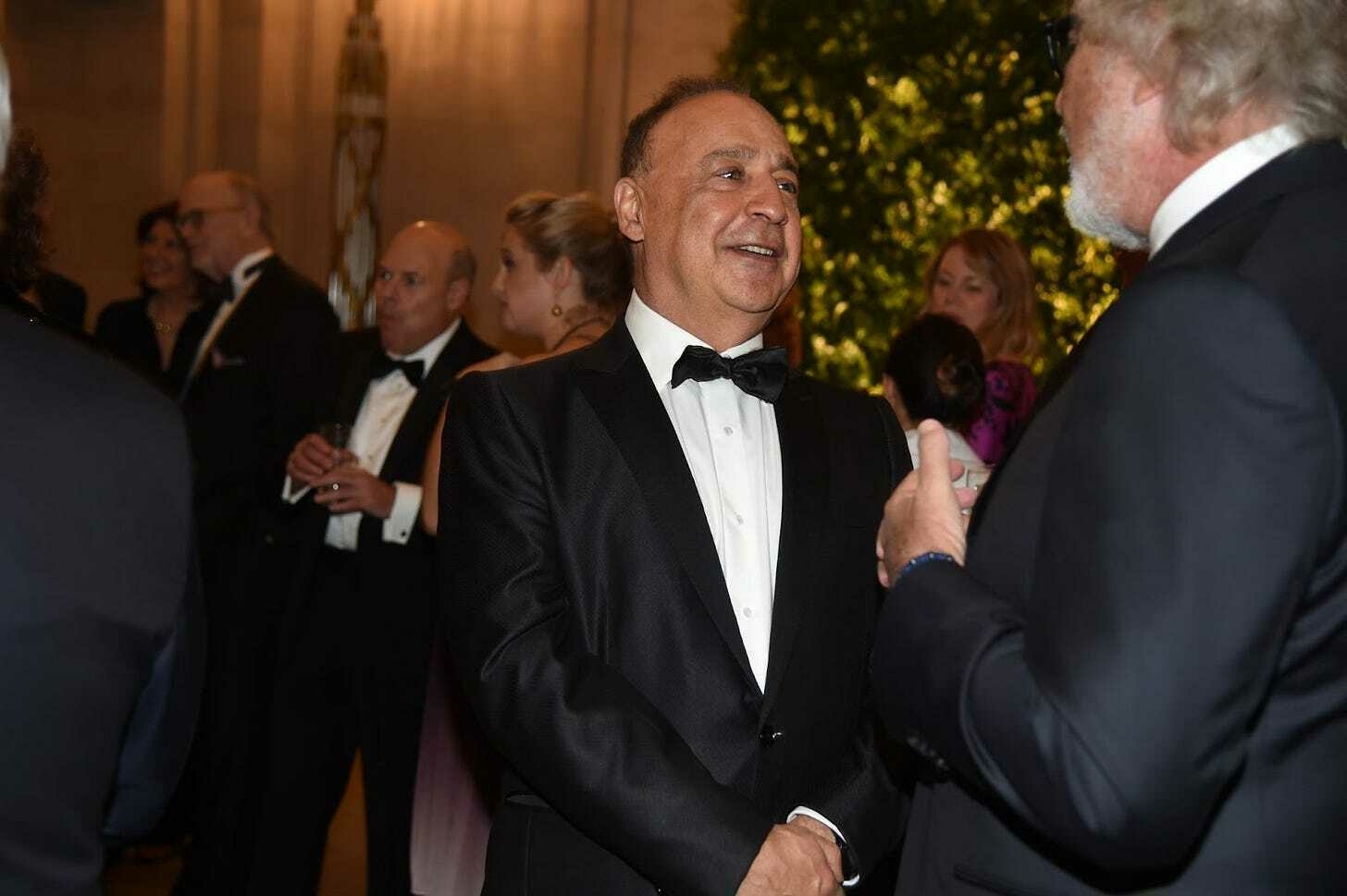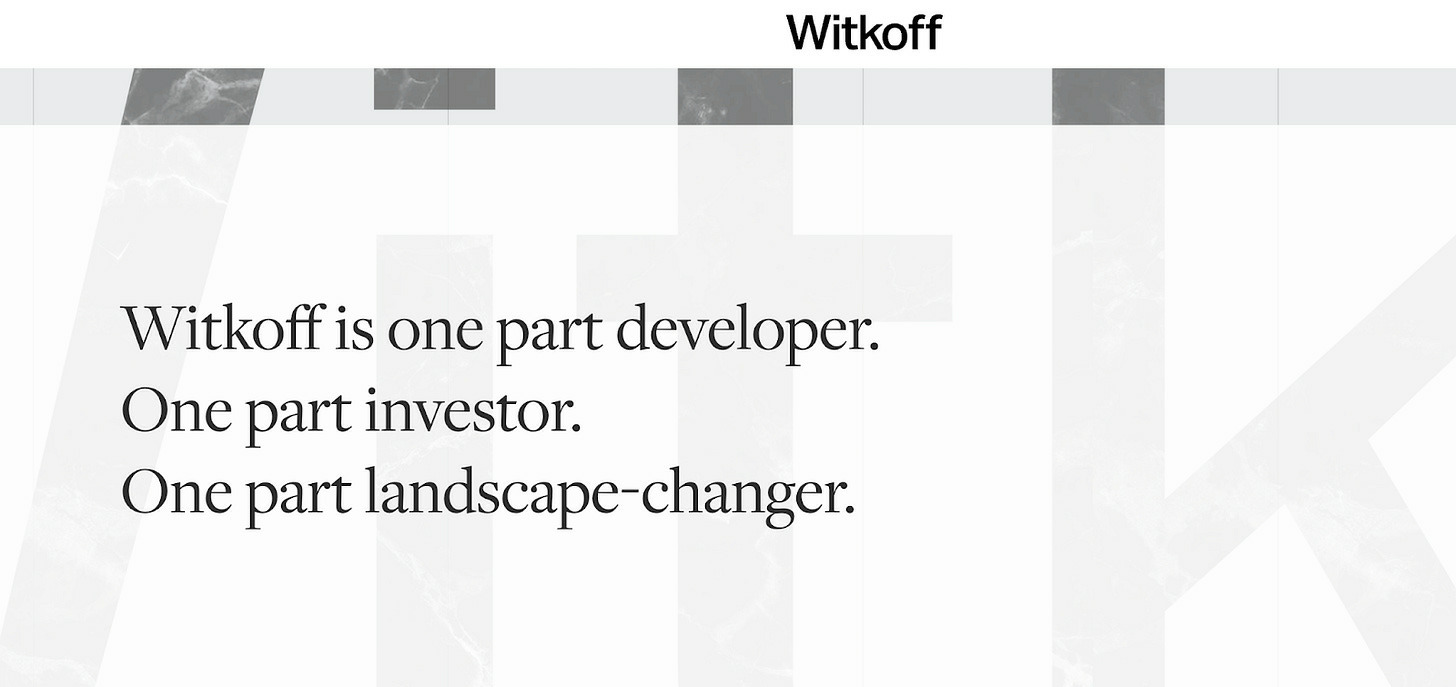-
Putin's strategic 'Easter Ceasefire': a tactical move to deceive and prepare for escalation
The "Easter ceasefire," as Ukrainian analyst Oleksandr Kovalenko suggests, aims to maintain Washington's favorable stance while preparing for renewed offensives. Despite Russian President Vladimir Putin announcing this ceasefire, Russian forces have reportedly conducted over 20 assaults and more than 400 bombardments employing both barrel and rocket artillery in conflict zones, not to mention the active use of strike drones. All this has occurred within less than a day since the "ceasefire" announcement.
While overall combat intensity has diminished to about one-fourth of previous days, this does not represent a true ceasefire, merely a reduction in war-like actions. Simultaneously, across the conflict regions, Russian forces are freely mobilizing resources, amassing reserves, and gearing up for a significant offensive. In effect, by declaring a unilateral "Easter ceasefire," Russia is unobstructedly prepping for an escalation in hostilities, which it intends to justify by accusing Ukraine of violating the truce.
Essentially, Putin has once more outmaneuvered former President Donald Trump. This follows U.S. Secretary of State Mark Rubio's clear message that the U.S. might pull out of negotiations if none of the involved parties exhibit progress. Regardless, the outcome was likely going to show no advancement, but Putin is keen to convince the White House of his commitment to peace while further prolonging fruitless talks, thereby continuing the war with minimal upheaval. It seems this strategy has been fruitful for Putin, ensuring Trump remains within Russia’s sphere of influence.
-
Scoop: Trump envoy’s conflict of interest: a Russia-linked business partner
Editor’s note: Please don’t take our war correspondence for granted. Investigative journalism like this is among the hardest forms of reporting.
If you’d be disappointed if The Counteroffensive didn’t exist anymore, you should probably upgrade to a paid subscription.We need your support to press on!
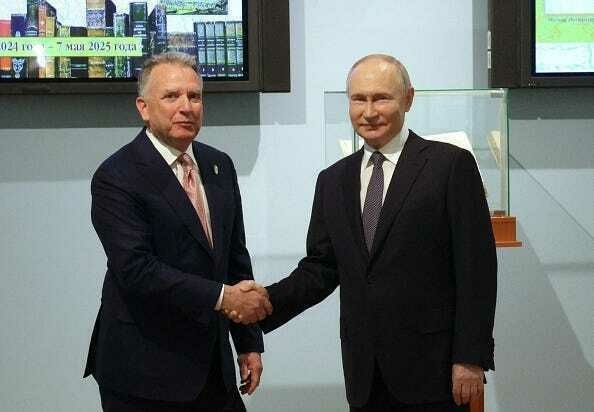
Russian President Vladimir Putin shakes hands with US President Donald Trump's envoy Steve Witkoff during a meeting in Saint Petersburg on April 11, 2025. (Photo by GAVRIIL GRIGOROV/POOL/AFP via Getty Images) Trump and Witkoff share deep passions for three things:
Real estate. Golf. And oligarchs who made their money in Russia.
Steve Witkoff, appointed as Donald Trump’s special envoy, has repeatedly shown not just an affinity for Moscow but has openly stated that he “spent a lot of time talking and developing a friendship and relationship” with Vladimir Putin — a dictator responsible for the deaths of tens of thousands of Ukrainians.
After a meeting with Putin, he told Trump that the fastest way to a ceasefire would be to give four Ukrainian territories to Russia – views that drew direct condemnation from Ukraine’s president this week.
"I think Mr. Witkoff has chosen to follow the strategy of the Russian side. I see this as extremely dangerous because he — whether consciously or unconsciously, I don’t know — is spreading Russian narratives. In any case, this does not help,” Volodymyr Zelenskyy said on Thursday.
But what has gone under the radar is that Witkoff has personal stakes at play, as he has business ties to Leonard (‘Len’) Blavatnik, an influential businessman with significant relationships in Kremlin circles – and was sanctioned by Ukraine in 2023.
Blavatnik, who became a U.S. citizen in 1984 and later also held U.K. citizenship, built his fortune during Russia’s large-scale privatization period, shortly after the USSR collapsed.
Witkoff’s connections to Blavatnik raises an important question: can someone genuinely serve as a fair-minded peace negotiator when a business partner has ties to Russian oligarchs?
"The danger from Witkoff's experience… is heightened because he is a mere ‘special government employee’ – that is, a part time consultant to the US government. Because he is not committed to spending even the full Trump term of four years within government, Witkoff is almost certainly thinking about his next moves in business even while flying to Moscow,” said Jeff Hauser, the executive director of the Revolving Door Project, a watchdog group. “It is far too possible that Witkoff is currently planning investments in partnership with Russian or Russian friendly money while conducting ‘diplomacy' with Russia.”Blavatnik and Witkoff’s close business ties
Before becoming Trump’s special envoy, Steve Witkoff built his own fortune as a real estate mogul at the helm of the Witkoff Group, the New York-based real estate development company he founded in 1997.
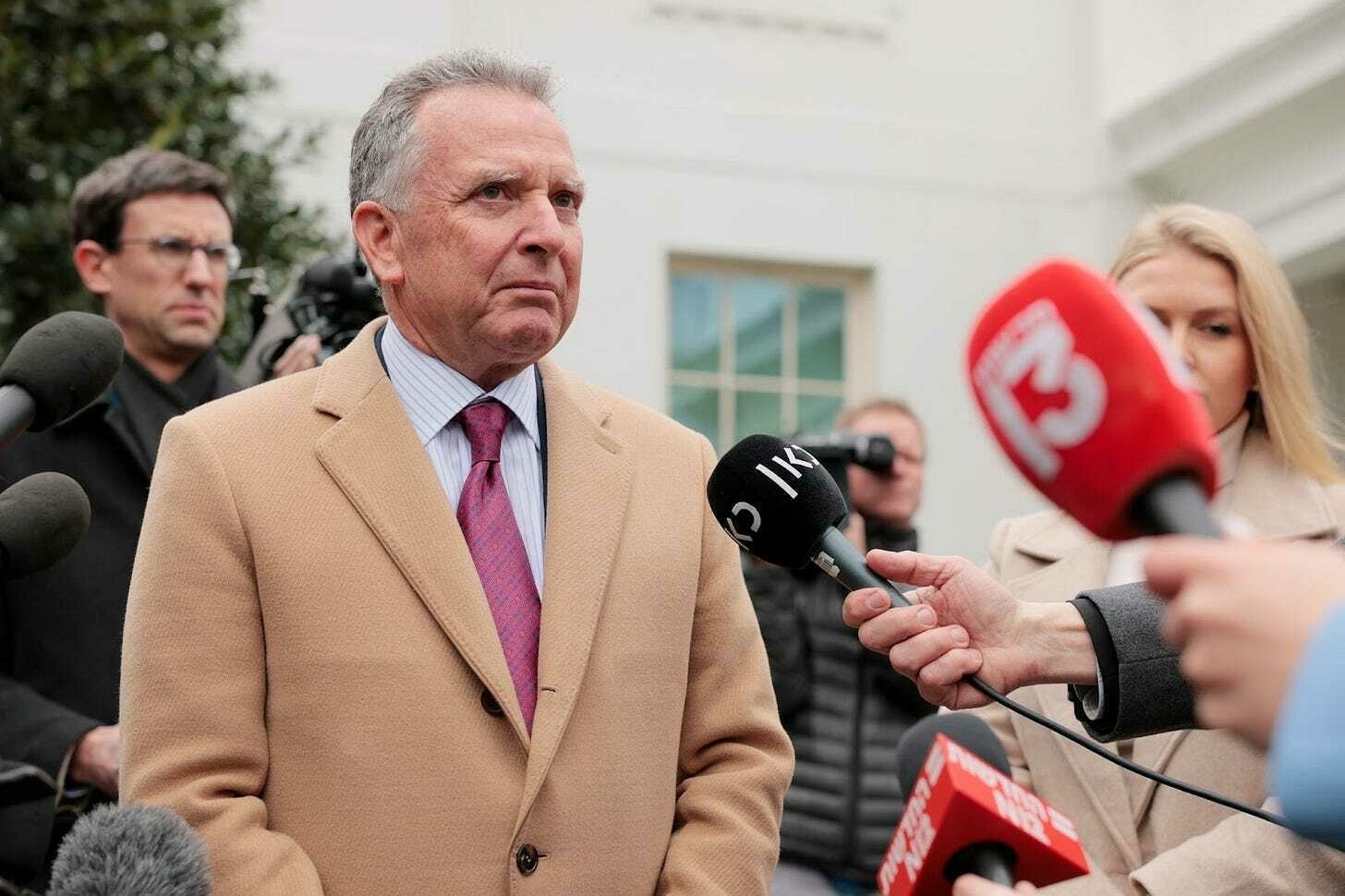
Steve Witkoff, a special envoy for President Donald Trump, on March 06, 2025 in Washington, DC. Witkoff spoke to the press about a range of foreign policy issues including peace talks involving Ukraine and Russia. (Photo by Anna Moneymaker/Getty Images). Among Witkoff's recurring business partners is Len Blavatnik, a billionaire born in the former Soviet Union who now holds U.S. and U.K. citizenship. Together they have made fortunes through real estate development in New York and Florida.
Blavatnik and Witkoff’s business entanglements are recent and ongoing.
While Witkoff claims to be distancing himself from his business, there’s no evidence of this – and transparency watchdogs say that even the steps he’s purporting to take are not enough to prevent a conflict of interest.
In 2021, Witkoff and Access Industries company, established by Len Blavatnik in 1986, acquired the One High Line project in New York. The deal consisted of two buildings, 236 condominiums and 120 hotel rooms.
This year, they announced that One High Line surpassed $1 billion in sales, it the fastest residential project in downtown New York City to do so in ten years.
Notably, this partnership has continued after Ukraine sanctioned Len Blavatnik for ten years in December 2023. He was included in the list of people who pose a “threat to the national security” of Ukraine, alongside billionaires like Roman Abramovich, Arkady and Boris Rotenberg and Oleg Deripaska.
In January 2024, the Witkoff Group and Len Blavatnik’s Access Industries bought the troubled Banyan Cay Resort & Golf Club in West Palm Beach, getting a $75 million loan to do so. Afterwards, they divided it into two parts: Dutchman’s Pipe Golf Club and the Belgrove hotel. Dutchman’s Pipe Golf Club was launched in November 2024, while Belgrove Resort & Spa, a luxurious new resort in West Palm Beach, opened on April 8, 2025.
And in February 2025, the Witkoff Group partnered with Blavatnik’s Access Industries and real estate developer Sandor Scher to develop a luxury mixed-use condo project in North Beach, becoming the majority owner and refinancing the property with an $85 million pre-construction loan from J.P. Morgan.
The grounds for the Ukraine’s Blavatnik sanctions have not been officially released. The Counteroffensive sent a letter to the National Security and Defense Council of Ukraine asking why Blavatnik was sanctioned. They said that the decision was made in response to a proposal submitted by the Security Service of Ukraine (SBU), submitted in a letter containing restricted information marked 'For Official Use Only.'
"A more detailed disclosure of the matters in question cannot be provided," the SBU told The Counteroffensive.
Blavatnik made his money alongside Russian oligarchs, and is sanctioned by Ukraine
Although Blavatnik is said to have sold his last major asset in Russia when it invaded Ukraine in 2022, his past and connections with Putin’s friends could not be erased so easily.
Blavatnik’s ties to Russia go back decades, as he returned shortly after the USSR collapsed during the 'aluminum wars' on the invitation of his friend and now-billionaire Viktor Vekselberg.
There, Blavatnik took part in post-Soviet privatization and co-founded with Vekselberg the Access-Renova company, which later was expanded with the arrival of another businessman close to Putin, Mikhail Fridman.
Their consortium later partnered with British Petroleum (BP) and created TNK-BP, which became one of the largest oil companies in Russia before its 2013 acquisition by Rosneft, a Moscow-based energy company controlled by the Russian government through the Rosneftegaz holding company.
Blavatnik spent years building his fortune with influential Russian oligarchs in Putin’s inner circle, including Viktor Vekselberg, Mikhail Fridman and Oleg Deripaska — all of whom have been sanctioned by the U.S. due to their Kremlin ties.
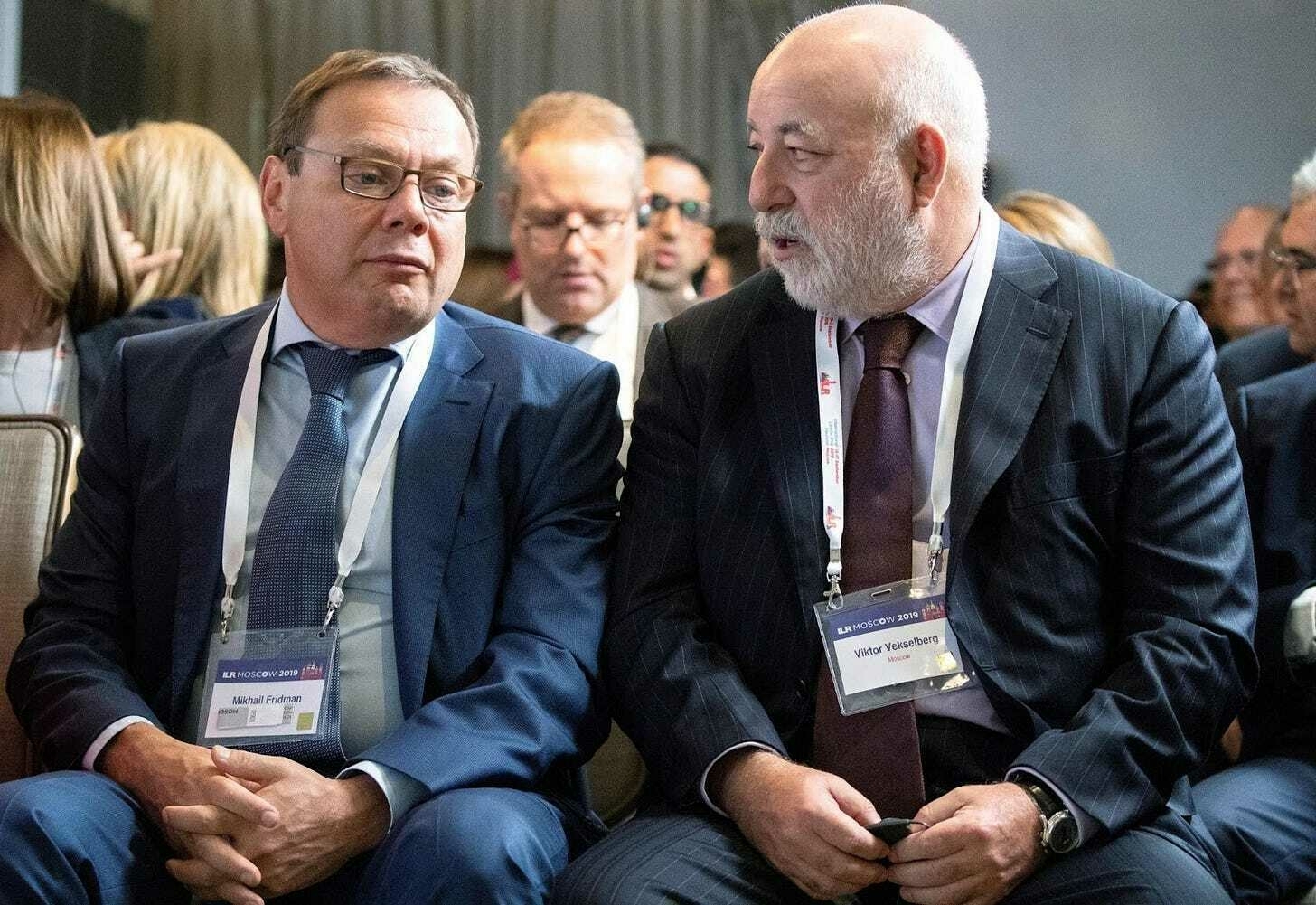
Russian businessman, co-founder of Alfa-Group Mikhail Fridman (L) and Renova CEO businessman Viktor Vekselberg talk during a conference of the Israeli Keren Hayesod foundation in Moscow on September 17, 2019. (Photo credit should read PAVEL GOLOVKIN/AFP via Getty Images). Officially, Blavatnik denies any connections to the Kremlin.
A spokesperson for Access Industries has said in the past he has no engagement in Russian politics or in the Russian government.
But the origins of Blavatnik’s wealth were explained by his friend and business partner Vekselberg, who in 2019 said that Blavatnik made “almost all his money [in Russia], and then just made investments outside.”
Forbes’ 2025 billionaires list estimates Blavatnik’s net worth to be $29.9 billion, while Witkoff’s net worth is estimated to be $2 billion.
The White House and Witkoff Group did not respond to our requests for comment on this story.Witkoff has conflicts of interests over the Russia-Ukraine conflict
After Witkoff became a Special Envoy, he claimed to be in the process of divesting his real estate company and crypto assets to his sons. The Witkoff Group has tried to make Steve Witkoff’s son, Alex Witkoff, the face of the company since his father joined the Trump administration.
It remains unclear whether Witkoff has completed the process of divesting his assets, as no official confirmation has been provided regarding the transfer of ownership rights.
And even so, it’s not a step that neutralizes the conflict of interest.
“Formally divesting ownership to one's sons does not significantly reduce the risk of a conflict of interest. There is no way of ensuring that father-son conversations never touch upon management of the family financial interests or that ownership will not revert back in the future,” said Josh Rudolph, the head of German Marshall Fund’s Strategic Democracy Initiatives, a group focused on defending democracy and countering authoritarian threats.
U.S. ethics laws generally bar federal government employees from participating in negotiations or decision-making if they have business ties with any of the parties involved in the negotiations.
But the U.S. code affords Special Government Employees special privileges that can permit them to participate in matters that could affect their financial interests so long as the matter will not have a “special or distinct effect” on the employee other than as part of a general industry or class of persons.
SGEs are generally required to file financial disclosures if they are classified above a certain level of federal employment and serve over 60 days, but they don't necessarily have to file a public version.
The Office of Government Ethics has no certificate of divestiture available for Witkoff as of April 18, though disclosures go through an agency review process that can take several weeks or even months.
"It would be all too easy for the Kremlin to funnel money to the Witkoff or Trump families—or at least give the Witkoffs or Trumps hopes for future enrichment — through dark crypto channels or opaque real estate dealings. It poses an obvious and grave national security risk for Witkoff to construct dark money channels — the crypto firm in the second half of 2024 and the real estate ventures in early 2025 — precisely when he is moving into the position of leading high-stakes negotiations with Moscow and Tehran, malign kleptocracies known for funneling covert money to key officials," said Rudolph.
Despite this, according to the New York Times, Trump has entrusted him to handle the Russia-Ukraine war. But his lack of diplomatic experience and expertise is showing: in an interview with Tucker Carlson, for example, Witkoff forgot the names of the regions he was negotiating over.
On April 11, Witkoff visited Moscow and met with Putin. After that, two U.S. officials and five other sources told Reuters that Steve Witkoff told Trump the quickest way to achieve a ceasefire in Ukraine is to support a plan granting Russia control over four eastern Ukrainian regions it tried to annex in 2022.
The developments raise a disturbing question: can Trump’s envoy, with business ties to a billionaire who built his wealth in Russia and is sanctioned by Ukraine, serve as a genuinely neutral mediator in peace negotiations between Russia and Ukraine?
-
US, Iran agree to begin drafting framework for potential nuclear deal, Reuters reports
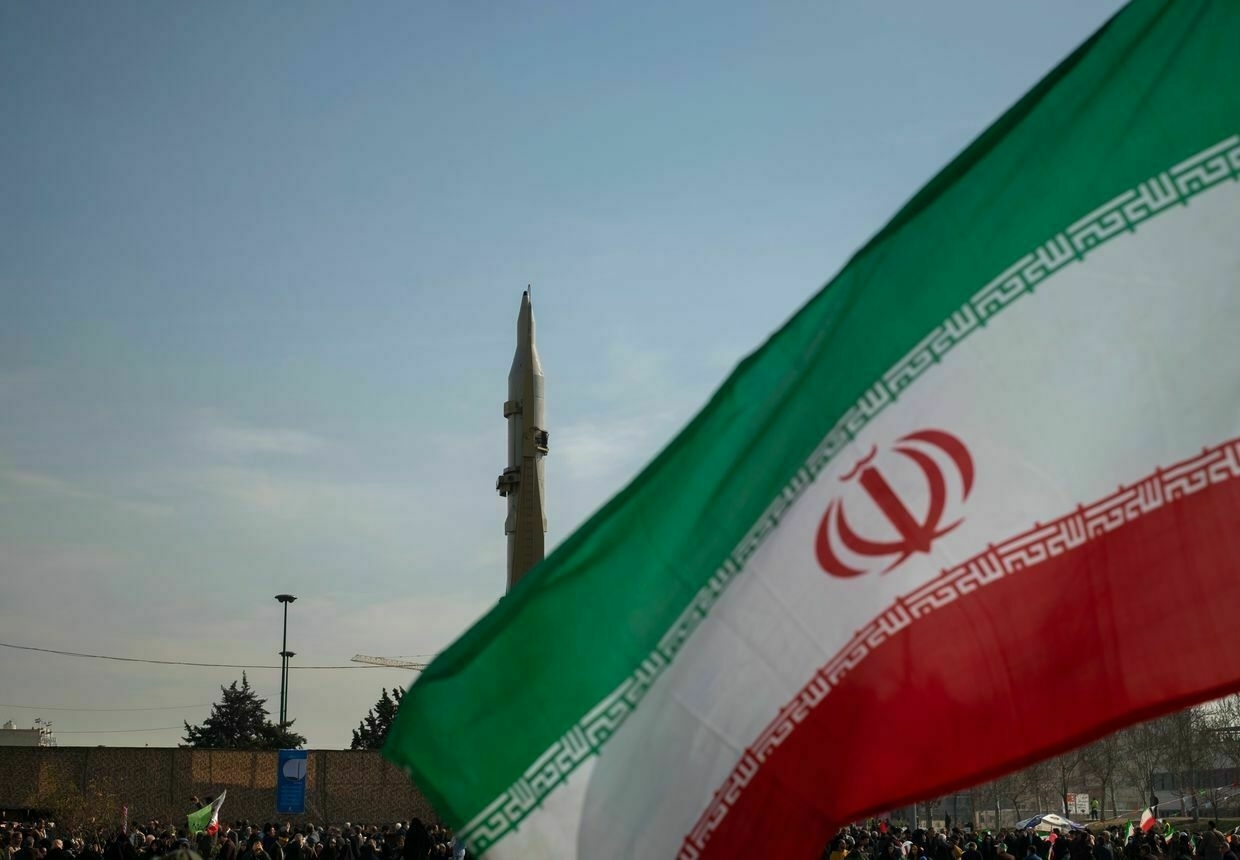
Iran and the United States have agreed to begin drafting a framework for a potential nuclear agreement, Iranian Foreign Minister Abbas Araqchi announced on April 19 following four hours of indirect talks in Rome. A U.S. official confirmed the development to Reuters, describing the talks as having made “very good progress."
Araqchi and U.S. Middle East envoy Steve Witkoff engaged through an Omani mediator who relayed messages between them. “We were able to make some progress on a number of principles and goals, and ultimately reached a better understanding,” Araqchi said on Iranian state television. “It was agreed that negotiations will continue and move into the next phase, in which expert-level meetings will begin on Wednesday in Oman."
Araqchi added that top negotiators would reconvene in Oman next Saturday to “review the experts' work and assess how closely it aligns with the principles of a potential agreement.” He described the atmosphere of the talks as constructive but urged caution. “We cannot say for certain that we are optimistic. We are acting very cautiously. There is no reason either to be overly pessimistic."
A Trump administration official confirmed plans to meet again next week.
“Today, in Rome over four hours in our second round of talks, we made very good progress in our direct and indirect discussions,” the official said. U.S. President Donald Trump, who withdrew from the 2015 nuclear deal in 2018 during his first term, has warned that he may take military action unless Tehran swiftly agrees to a new deal that would prevent it from developing a nuclear weapon.
“They can’t have a nuclear weapon. I want Iran to be great and prosperous and terrific,” Trump told reporters on April 18.
Iran insists its nuclear program is for peaceful purposes and has expressed willingness to accept limited restrictions in exchange for the lifting of sanctions. However, a senior Iranian official said Tehran would not agree to dismantle its centrifuges, halt enrichment entirely, or reduce its uranium stockpile below 2015 levels.
Kyiv’s fate is shaping how Tehran plays the nuclear gameAs the United States and Iran engage in renewed nuclear negotiations, the shadow of Ukraine looms large over Tehran’s strategic considerations. Recent indirect talks in Muscat, Oman — facilitated by Omani intermediaries — mark a significant diplomatic step. But Iran’s approach to these talks is deep…The Kyiv IndependentIbrahim Al-Marashi
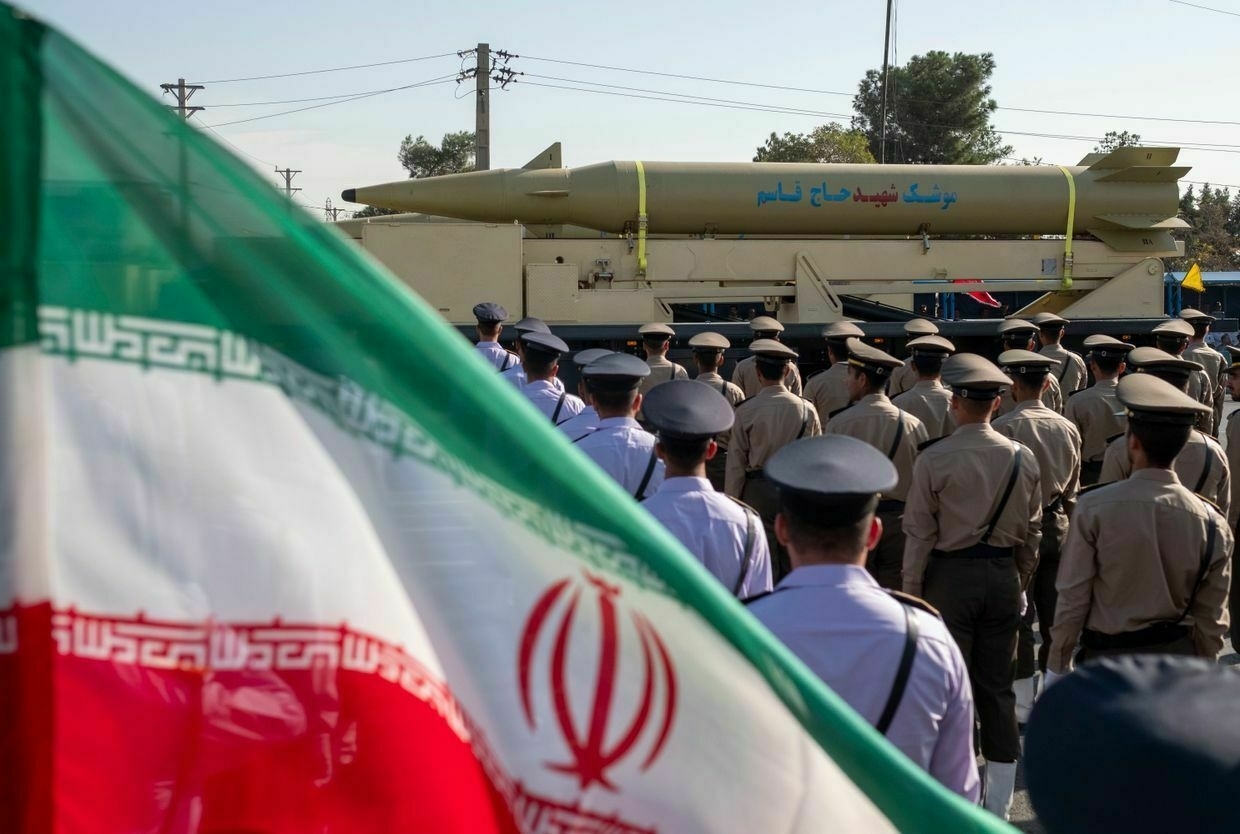
-
Ukrainian diplomat urges Merz to deliver Taurus missiles to Kyiv, lead Europe in ending Russia’s war
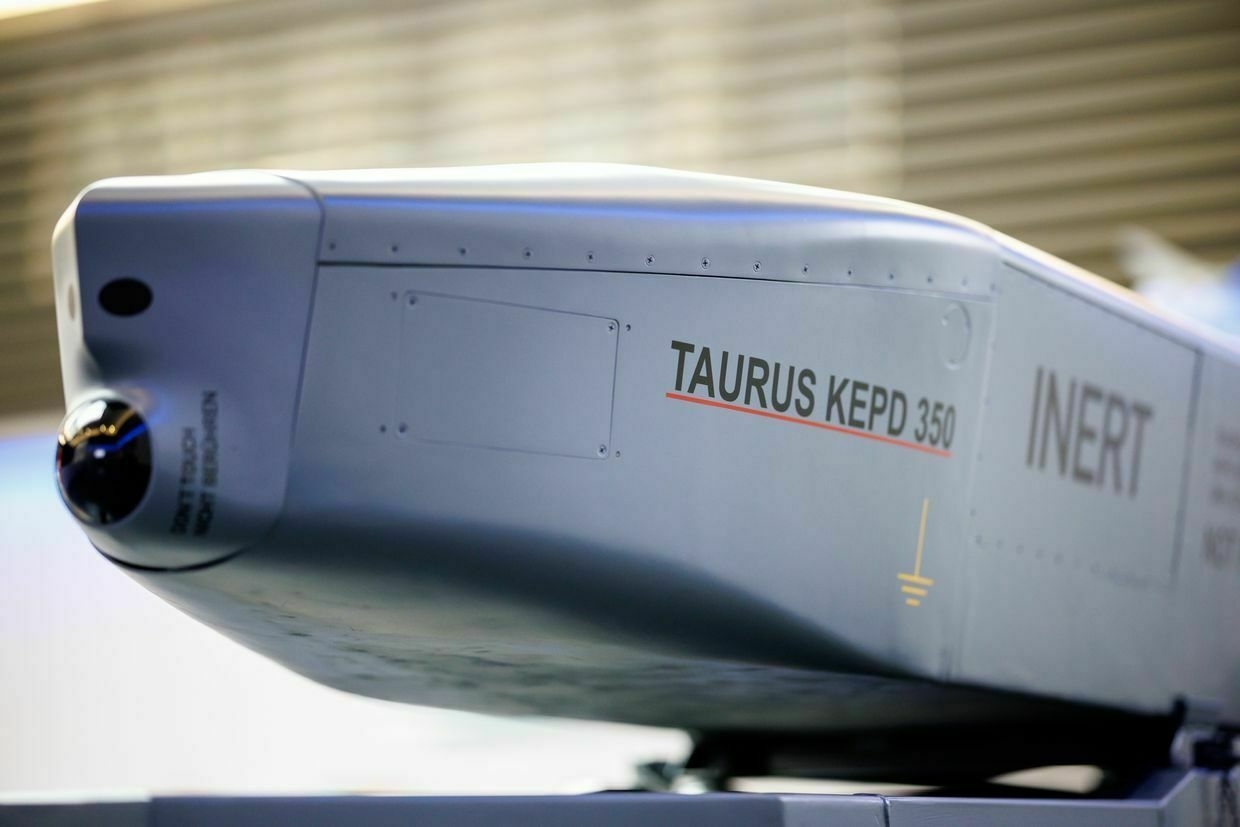
Ukrainian diplomat Andrii Melnyk has called on Germany’s incoming chancellor, Friedrich Merz, to fulfill his campaign promise and immediately deliver 150 Taurus cruise missiles to Ukraine, alongside a broader set of decisive actions to stop Russia’s full-scale war.
“Germany, of all places, has a decisive role to play in stopping murder and bringing about a just peace,” Melnyk wrote in a letter published in German by Die Welt, a national daily newspaper. “Not only does the future of the Federal Republic depend on your success as chancellor, but also the fate of Ukraine — and the whole of Europe."
Andrii Melnyk served as Ukraine’s ambassador to Germany from December 2014 to October 2022, then as Deputy Foreign Minister, and since June 20, 2023, he has been Ukraine’s ambassador to Brazil.
In the letter, published shortly before Easter, Melnyk outlined five steps Merz should take during his first 100 days in office. First, he proposed a coalition decision to allocate 0.5% of Germany’s GDP annually — around 21.5 billion euros ($24.5 billion) per year, or 86 billion euros ($98 billion) by 2029 — for arms supplies to Ukraine. The funding, he said, should go toward the production of advanced weapons in both Germany and Ukraine, calling it “a huge investment in Germany’s security."
Melnyk also called for the same 0.5% commitment to be adopted at the EU and G7 levels, excluding the United States. He said the resulting 550-billion-euro ($622 billion) investment in Ukraine’s defense over the next four years would send a powerful message to Moscow.
“This mega-commitment… would be a huge warning signal to Putin that you, Mr. Merz, and our allies are serious about Ukraine’s aid,” he wrote. “This will impress Putin.”
One of the most urgent demands in the letter is the immediate announcement and implementation of Taurus missile deliveries. “This election promise must be fulfilled, despite the expected resistance from the (Social Democratic Party) SPD,” Melnyk wrote, adding that Germany does not need “coordination with partners” or to issue ultimatums to the Kremlin.
The outgoing German chancellor, Olaf Scholz, has repeatedly blocked the delivery of Taurus missiles over his concerns about escalation. Merz has been critical of this position and advocated for Ukraine’s ability to strike strategically.
In an interview on April 13, Merz also suggested that the long-range missiles, if supplied to Ukraine, could be used to target strategic Russian military infrastructure in occupied Crimea. The Telegraph reported on April 16 that the U.K. would support a potential German decision to send Taurus missiles to Ukraine.
“These inferno weapons should simply be delivered, without ‘ifs’ and ‘buts’, to stop the creeping advance of the Russians and change the current war dynamics at its core,” Melnyk wrote, according to the Welt.
The letter also proposes transferring 30% of Germany’s available fighter jets, helicopters, and armored vehicles to Ukraine and adopting a lend-lease-style law to enable swift deliveries.
Melnyk concluded by urging Merz to push to confiscate 200 billion euros in frozen Russian assets and use the funds for Ukraine’s reconstruction.
As Trump mulls cuts, NATO’s integrity is on the lineWith the start of Donald Trump’s second term in office, NATO finds itself on shaky ground — reports that the U.S. president might cut the alliance’s funding do little to ease fears. A leaked White House memo revealed plans to slash the U.S. State Department funding for the nextThe Kyiv IndependentMartin Fornusek
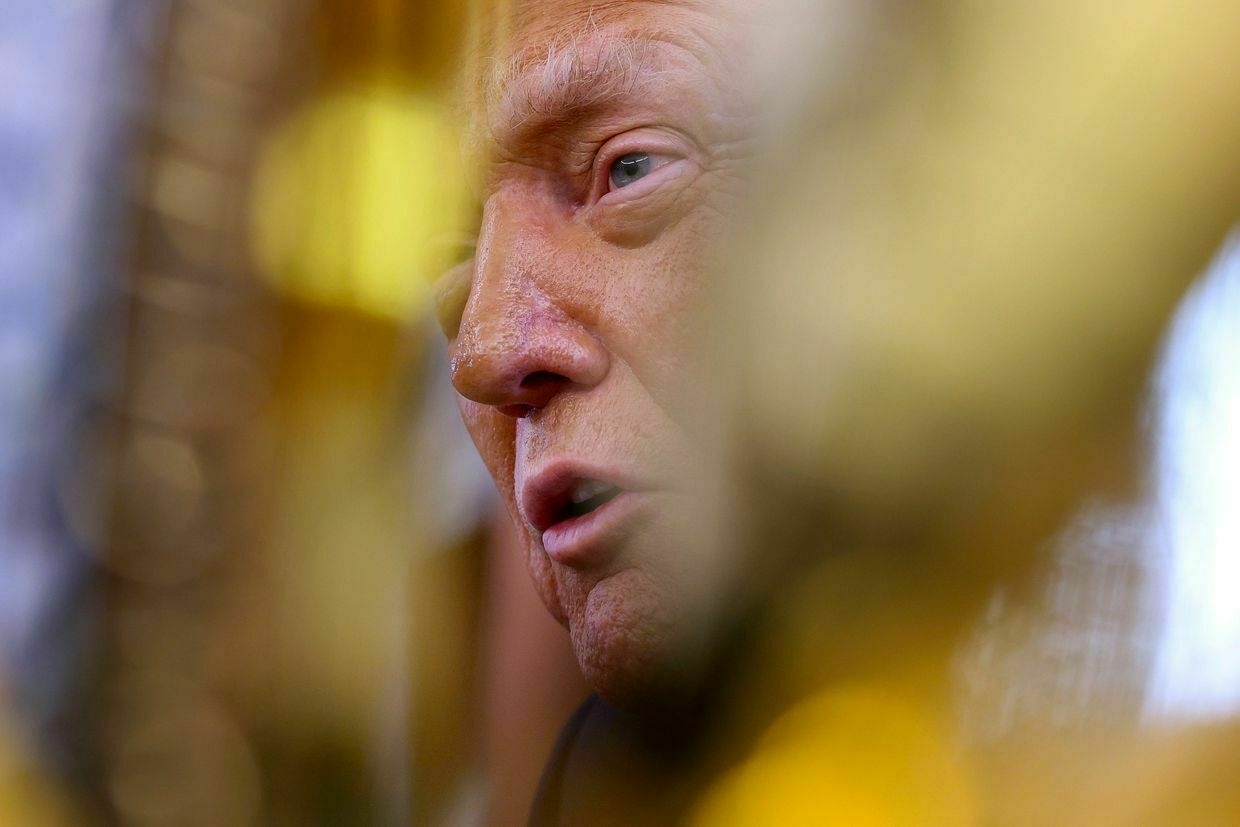
-
UK, Italy urge Russia to accept full ceasefire in Ukraine
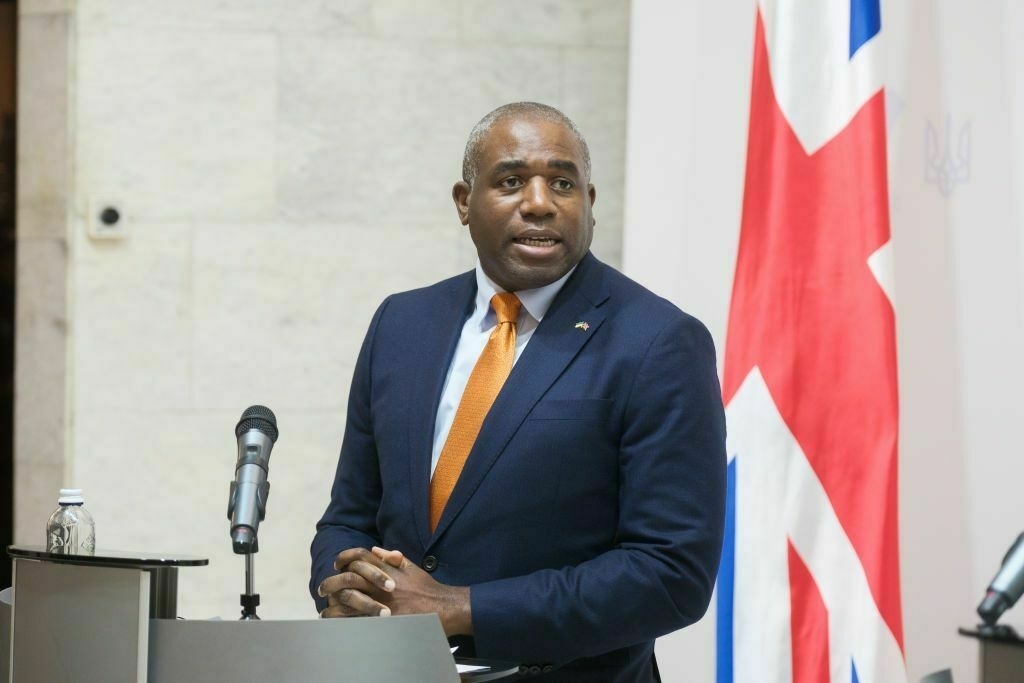
The foreign ministries of the United Kingdom and Italy urged Russia to accept an unconditional ceasefire in separate statements on April 19, hours after Russian President Vladimir Putin declared a temporary truce over Easter weekend.
Putin said he ordered a halt on combat operations in Russia’s war against Ukraine from 6 p.m. Moscow time on April 19 until midnight on April 21.
In response, the U.K. called on Russia to go beyond a “one-day pause” and commit to a full ceasefire in Ukraine.
“Ukraine has committed to a full ceasefire. We urge Russia to do the same,” a U.K. foreign ministry spokesperson said, according to Reuters.
The Ukrainian government on March 11 said it was ready to accept a U.S. proposal for a complete 30-day ceasefire, provided Russia agrees to the same terms. Russia continues to reject the proposal unless Ukraine makes extraordinary concessions — including a halt to all foreign military aid.
“Now is the moment for Putin to show he is serious about peace by ending his horrible invasion,” the U.K. foreign mnistry said in its statement.
The Italian foreign ministry also urged Russia to take more significant steps toward peace.
“It is not clear how Russia will respect a short truce, while Putin must make up his mind to finally stop this war he started,” Italian Foreign Minister Antonio Tajani said.
“He must respond positively to President Trump’s demands and make a real ceasefire possible. Peace must be just and lasting over time.”
Putin’s call for an Easter truce arrived shortly after U.S. President Donald Trump expressed frustration and impatience with the status of the Russia-Ukraine peace talks. Washington will “take a pass” on further mediation efforts if either side “makes it difficult” to proceed with negotiations, Trump said on April 18.
Trump has spent the past several months boasting of his ability to make a deal to swiftly end the war in Ukraine.
The statements from the U.K. and Italy echoed Ukraine’s own response to Putin’s announcement. President Volodymyr Zelensky on April 19 invited Russia to extend the full ceasefire beyond Easter Sunday.
“This will show Russia’s true intentions, because 30 hours is enough for headlines, but not for real confidence-building measures. Thirty days can give peace a chance,” he said.
Zelensky also said that reports from Ukraine’s front lines indicate that Russia has already violated the Easter ceasefire.
Ukraine orders troops to cease fire, document Russian violations after Putin declares ‘Easter truce,’ BBC Russia reportsA senior Ukrainian military officer said his unit and others received orders to cease fire on Russian positions minutes after the truce was set to begin. The Kyiv Independent could not verify these claims.The Kyiv IndependentAbbey Fenbert
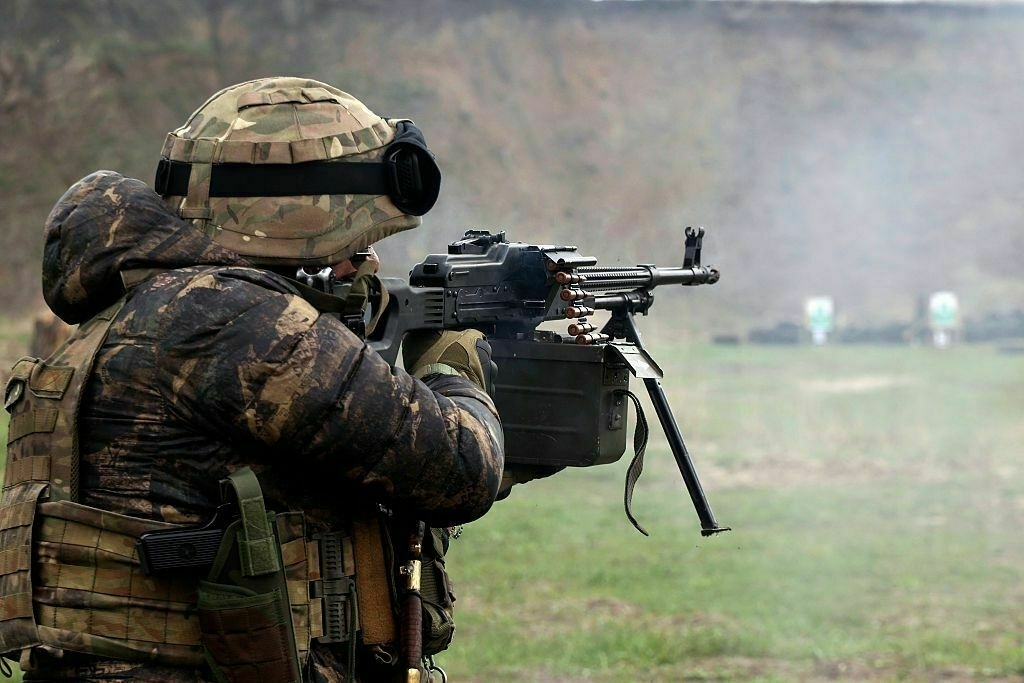
-
Kyiv can end martial law if war ends by August, official says
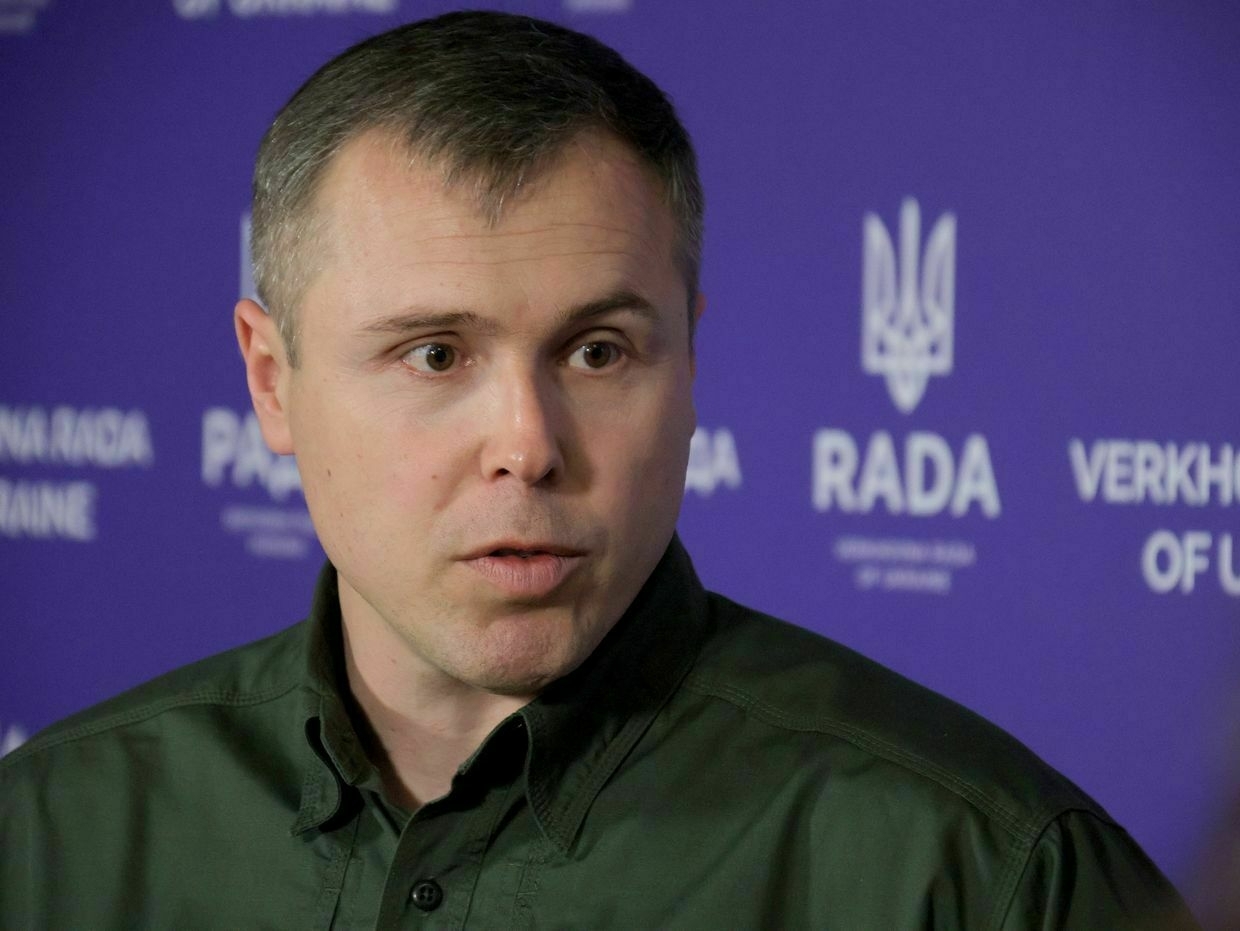
Ukraine’s parliament, the Verkhovna Rada, could legally suspend martial law if the war with Russia ends by August 2025, Defense Committee Secretary Roman Kostenko said in an interview with New Voice (NV).
President Volodymyr Zelensky first declared martial law and general mobilization on Feb. 24, 2022, when Russia launched its full-scale invasion of Ukraine. The measure has been repeatedly extended since then.
“Regarding martial law, from a legal point of view. The Verkhovna Rada, as it adopted it, can cancel it, even if there are some decisions that require it,” Kostenko said.
“I’m not saying that it will. But if we look at it from a legal point of view, if (martial law) is in place by August, it does not mean that it will be in place by August, if the war ends. It can always be canceled — also by a decision of the president and approval of the Verkhovna Rada."
Kostenko’s comments come as the United States escalates pressure on Russia and Ukraine to agree on a ceasefire, with U.S. President Donald Trump threatening to “take a pass” on further peace negotiations if either side continues to resist a deal.
Kostenko said that despite Washington’s efforts to broker a ceasefire, he does not expect the Trump administration to successfully negotiate a resolution.
“It certainly does not look like the end of the war,” he said.
The Verkhovna Rada on April 16 approved the extension of martial law and mobilization for another 90 days, until August 6.
Under martial law, Ukrainian men aged between 18 and 60, with some exceptions, are not allowed to leave the country as they may be called up for military service. Martial law also prevents Ukraine from holding regular parliamentary and presidential elections.
Russian President Vladimir Putin has sought to leverage Kyiv’s delayed elections to portray Zelensky as “illegitimate” — a claim that has found traction with members of the Trump administration.
Trump in February denounced Zelensky as a “dictator without elections," echoing the Kremlin’s propaganda narrative. Several weeks later he walked back on the statement, criticizing Putin for continuing to attack Zelensky’s credibility.
Putin announces Easter ceasefire, Zelensky reacts with skepticismRussian President Vladimir Putin announced a temporary ceasefire on the Easter weekend, ordering a halt to all military action from 6 p.m. Moscow time on April 19 until midnight on April 21.The Kyiv IndependentAnna Fratsyvir
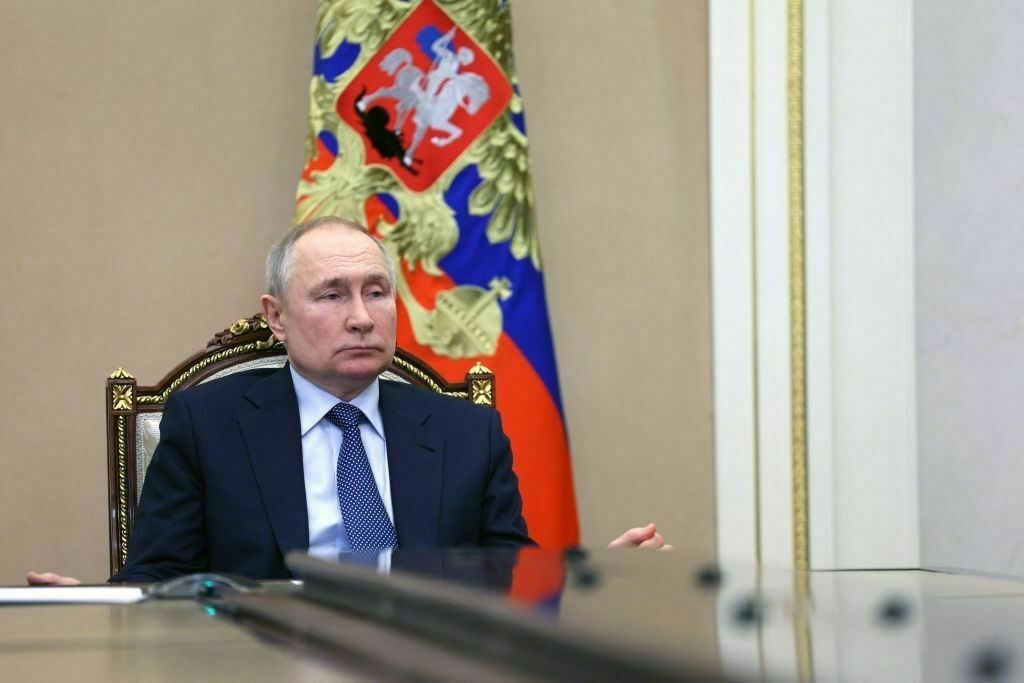
-
Putin announces Easter ceasefire, calls on Ukraine to follow
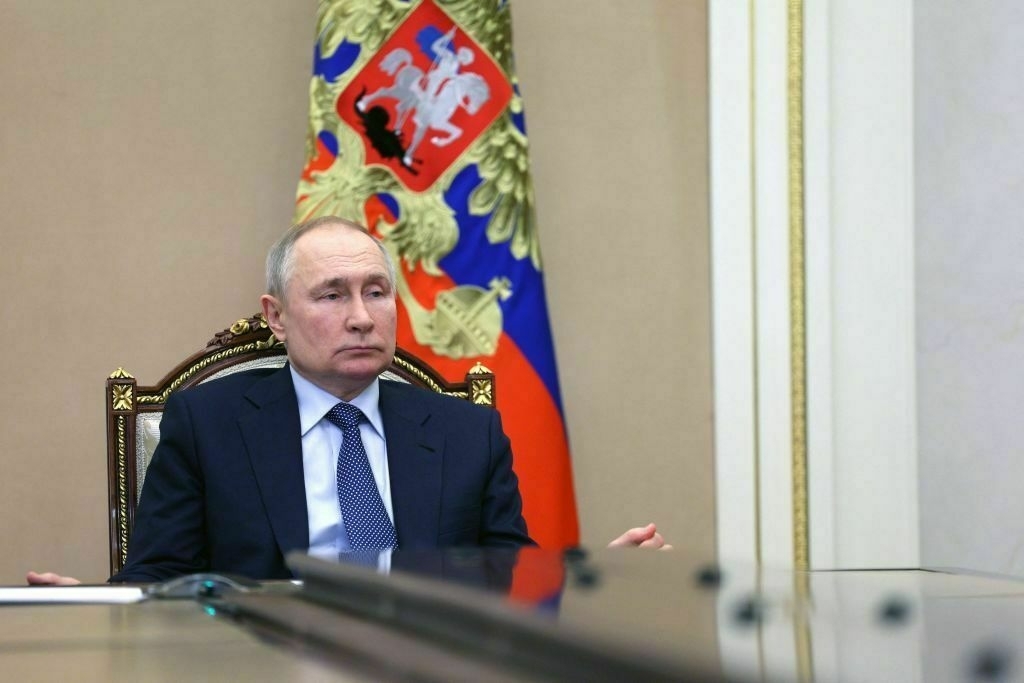
Editor’s note: This is a developing story.
Russian President Vladimir Putin announced a temporary ceasefire on the Easter weekend, ordering a halt to all military action from 6 p.m. Moscow time on April 19 until midnight on April 21.
Putin announced the order during a meeting with the Russian Chief of the General Staff, Valery Gerasimov, on April 19.
Putin framed the decision as being guided by humanitarian concerns. “I order the suspension of all combat operations during this period,” he declared. “We assume that the Ukrainian side will follow our example,” Putin added.
The effectiveness of the ceasefire will “test Ukraine’s sincerity in pursuing peace talks,” according to Putin, who said that the real measure of Kyiv’s intentions will be revealed by its actions over the Easter period.
Ukraine has not yet responded.
Putin’s announcement comes after Washington signaled that it was ready to cease its mediation efforts to end Russia’s war against Ukraine if one of the sides “makes it difficult."
Russia has consistently rejected a U.S.-proposed 30-day complete ceasefire, which Ukraine supported. Moscow rejected the ceasefire unless it included concessions that would undermine Kyiv’s ability to defend itself, including a full halt to foreign military aid.
‘You’re fools’ — US may ‘take a pass’ on Ukraine-Russia talks if either side stalls, Trump says“If for some reason one of the two parties makes it very difficult, we’re just going to say: ‘you’re foolish, you’re fools, you’re horrible people,’ and we’re just going to take a pass. But hopefully we won’t have to do that,” U.S. President Donald Trump said.The Kyiv IndependentKateryna Denisova
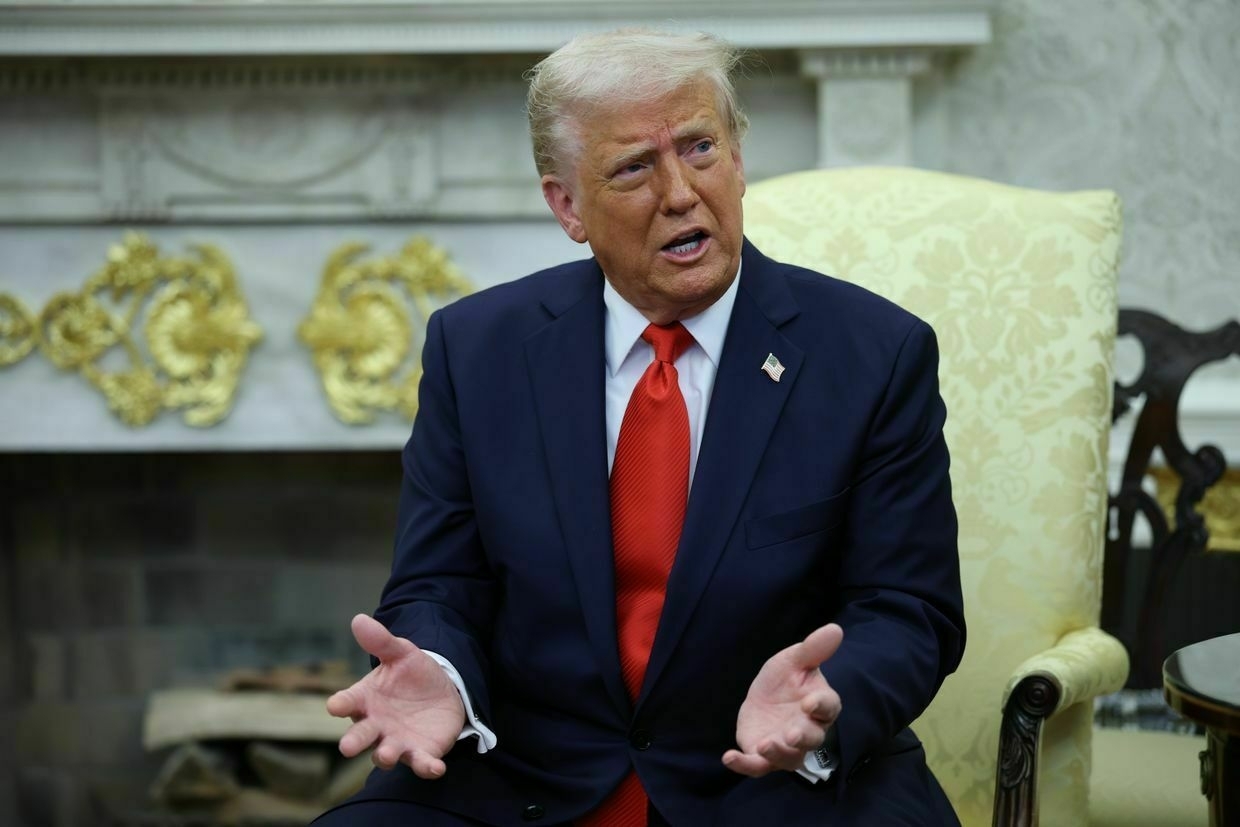
-
6 injured in Russian attacks against Ukraine over past day
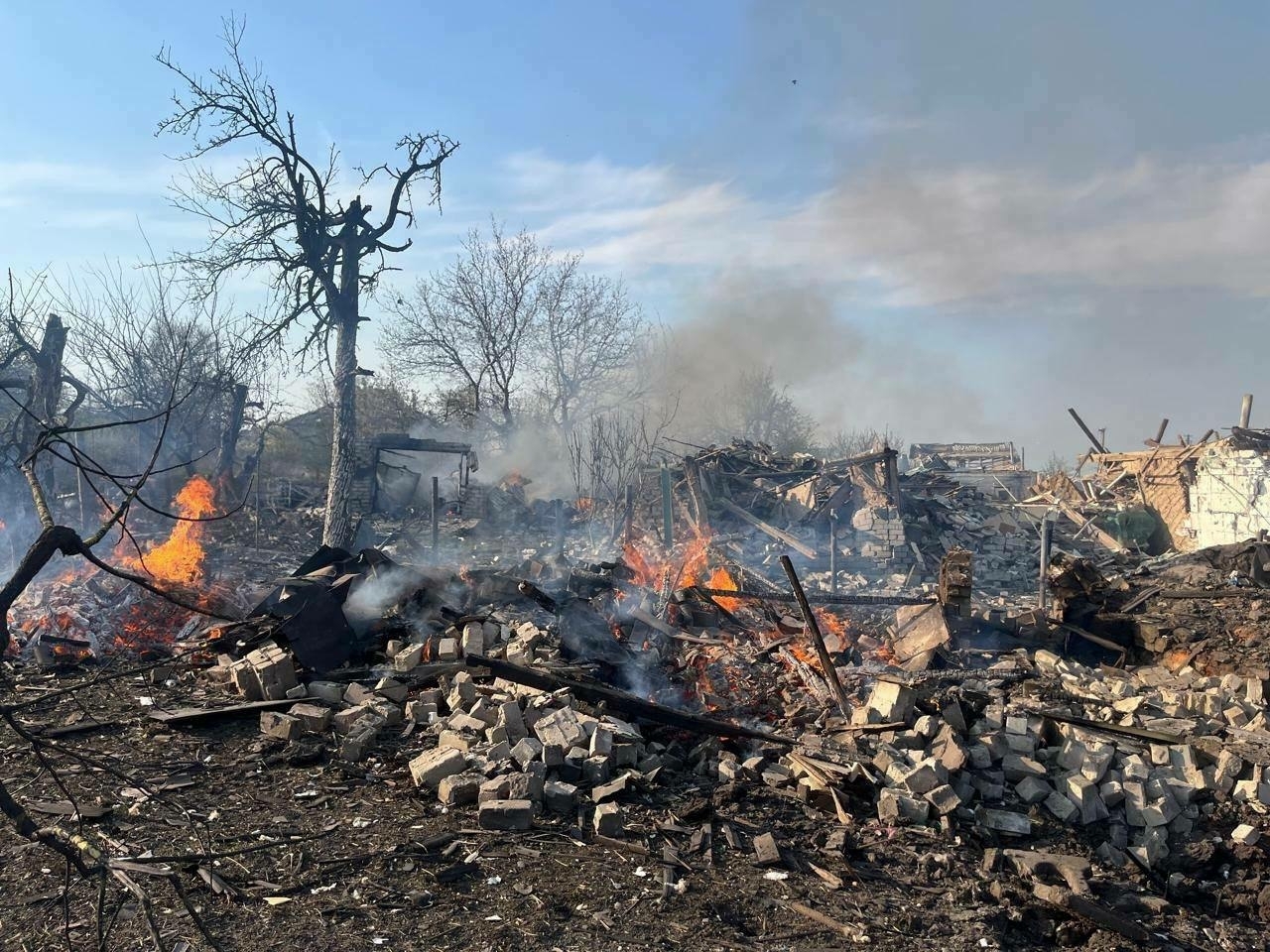
Russian attacks across Ukrainian regions injured at least six civilians over the past day, local authorities reported on April 19.
According to the Ukrainian Air Force, Russia deployed eight missiles of different types, and 87 long-range drones – 33 of which were shot down and 36 turned out to be decoy, on April 19.
Recent weeks saw Russia intensify its strikes against Ukraine’s civilian infrastructure and residential areas as Moscow continues to reject a full ceasefire backed by Washington and Kyiv.
In Zaporizhzhia Oblast, a 74-year-old man was injured amid 328 Russian strikes across 12 settlements, Governor Ivan Fedorov reported on April 19. The attacks included eight airstrikes, more than 200 drone assaults, and over 100 artillery attacks. A fire broke out at a vehicle depot in Zaporizhzhia city following a drone strike. Another attack in the village of Mahdalynivka damaged residential buildings, according to Fedorov.
In Kharkiv Oblast, the city of Kupiansk was struck by 10 guided aerial bombs, including a high-powered thermobaric ODAB-1500, Governor Oleh Syniehubov said on April 19. Five civilians were injured as a result of the attacks. In Kharkiv city’s Kyivskyi district, a Shahed drone hit a residential area, according to Mayor Ihor Terekhov. Further details are being clarified.
In Sumy Oblast, Russia shelled border communities 56 times, with 143 explosions recorded overnight. The attacks damaged homes, utility buildings, and vehicles across multiple settlements, but inflicted no casualties, according to Sumy Oblast authorities.
In Odesa Oblast, a Russian attack damaged several farming enterprises, the State Emergency Service of Ukraine reported. No casualties or injuries were reported.
‘You’re fools’ — US may ‘take a pass’ on Ukraine-Russia talks if either side stalls, Trump says“If for some reason one of the two parties makes it very difficult, we’re just going to say: ‘you’re foolish, you’re fools, you’re horrible people,’ and we’re just going to take a pass. But hopefully we won’t have to do that,” U.S. President Donald Trump said.The Kyiv IndependentKateryna Denisova
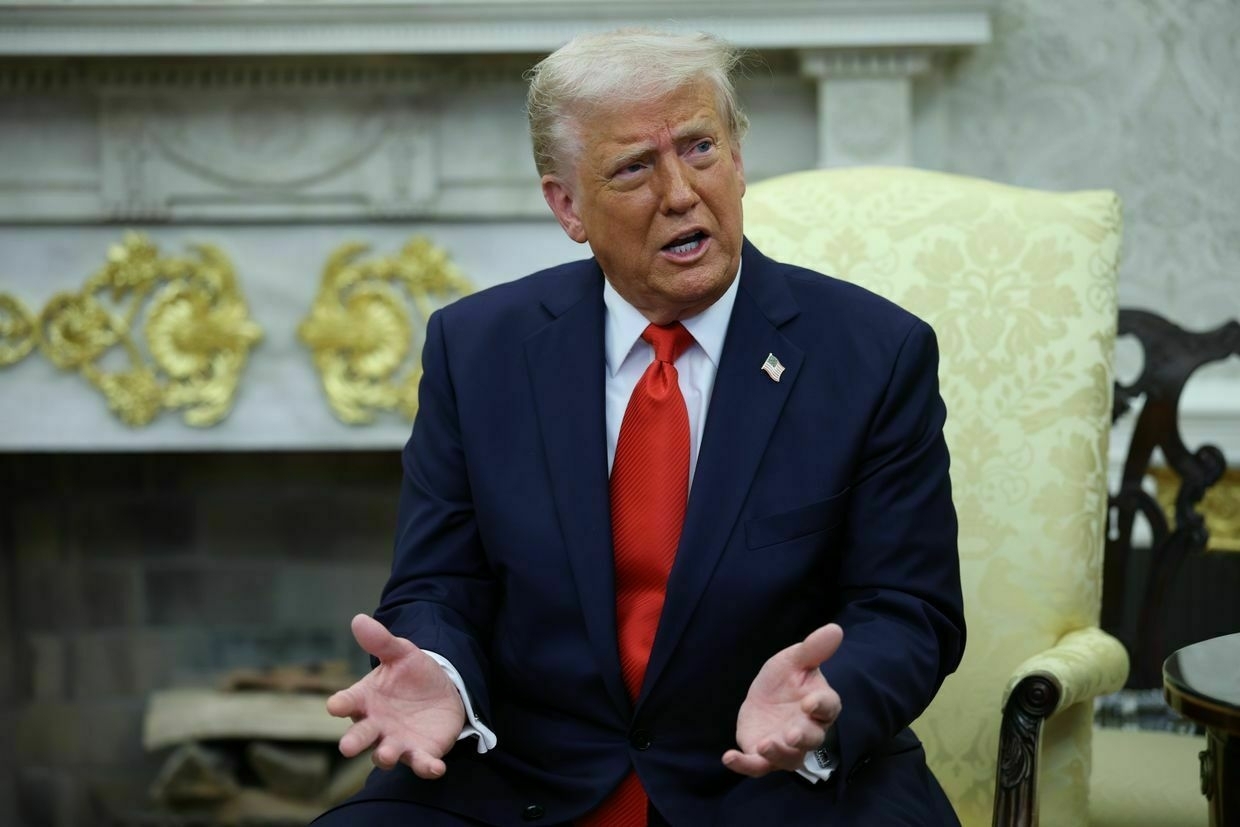
-
Republican US Congressman Fitzpatrick visits Ukraine’s front line, signs a shell for Putin
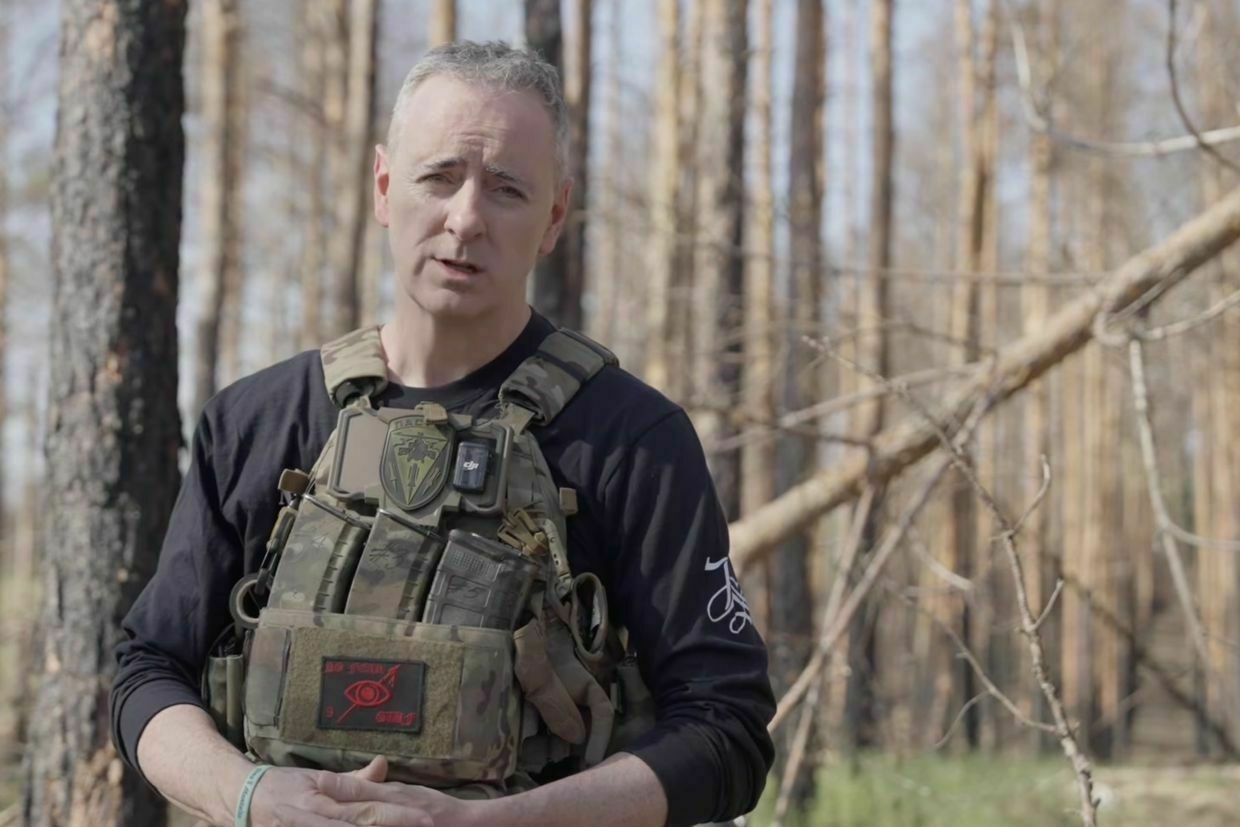
U.S. Congressman Brian Fitzpatrick, a pro-Ukraine Republican representing Pennsylvania, visited Ukrainian troops near the front line on April 18, following his meeting with President Volodymyr Zelensky in Kyiv.
“These are amazing soldiers, the men and women of the Ukrainian military, much like the men and women of the U.S. military, have this amazing fighting spirit. They’re fighting for their democracy, they’re fighting for the freedom – all of us in America need to stand behind them,” Fitzpatrick said in a video address filmed on the front line, published on his Facebook account.
“I always have and always will have their back. I encourage all my colleagues in Congress to come here.”
Fitzpatrick’s visit comes as Washington signaled that it is ready to cease its mediation efforts to end Russia’s war against Ukraine if an agreement is not reachable.
In a post shared on Facebook, Fitzpatrick published another video, showing him signing an artillery shell with a message to Russian President Vladimir Putin.
“It was my profound honor to deliver a very ‘personal’ message to Vladimir Putin today, from the front lines of the war near the Russian border, on behalf of our PA-1 community,” Fitzpatrick wrote.
He said he had spent several days on the ground, visiting artillery units of the National Guard and the drone operators from the Third Assault Brigade, who he praised for “completely changing warfare - not just here but across the globe.”
Fitzpatrick said that during the visit, the group was shelled near the Russian border, tracked by Russian drones, and forced to carry out an emergency evacuation from the area.
According to Fitzpatrick, the territories previously occupied by Russian forces were “completely burned down.”
“That’s what they do. They overwhelm you with bodies, overwhelm you with artillery with not a lot of thought behind it,” he said.
Earlier on April 17, Fitzpatrick met with President Volodymyr Zelensky, during which the two discussed U.S. security guarantees for Ukraine, the proposed full and unconditional ceasefire, and broader efforts to achieve what Zelensky described as “a dignified and lasting peace.”
Zelensky praised Fitzpatrick’s commitment, particularly his decision to meet with Ukrainian soldiers near the front. “This is very valuable. Thank you for your support!” Zelensky said.
Fitzpatrick serves as the ranking member of the House Foreign Affairs Subcommittee on Europe, Energy, the Environment, and Cyber.
‘You’re fools’ — US may ‘take a pass’ on Ukraine-Russia talks if either side stalls, Trump says“If for some reason one of the two parties makes it very difficult, we’re just going to say: ‘you’re foolish, you’re fools, you’re horrible people,’ and we’re just going to take a pass. But hopefully we won’t have to do that,” U.S. President Donald Trump said.The Kyiv IndependentKateryna Denisova
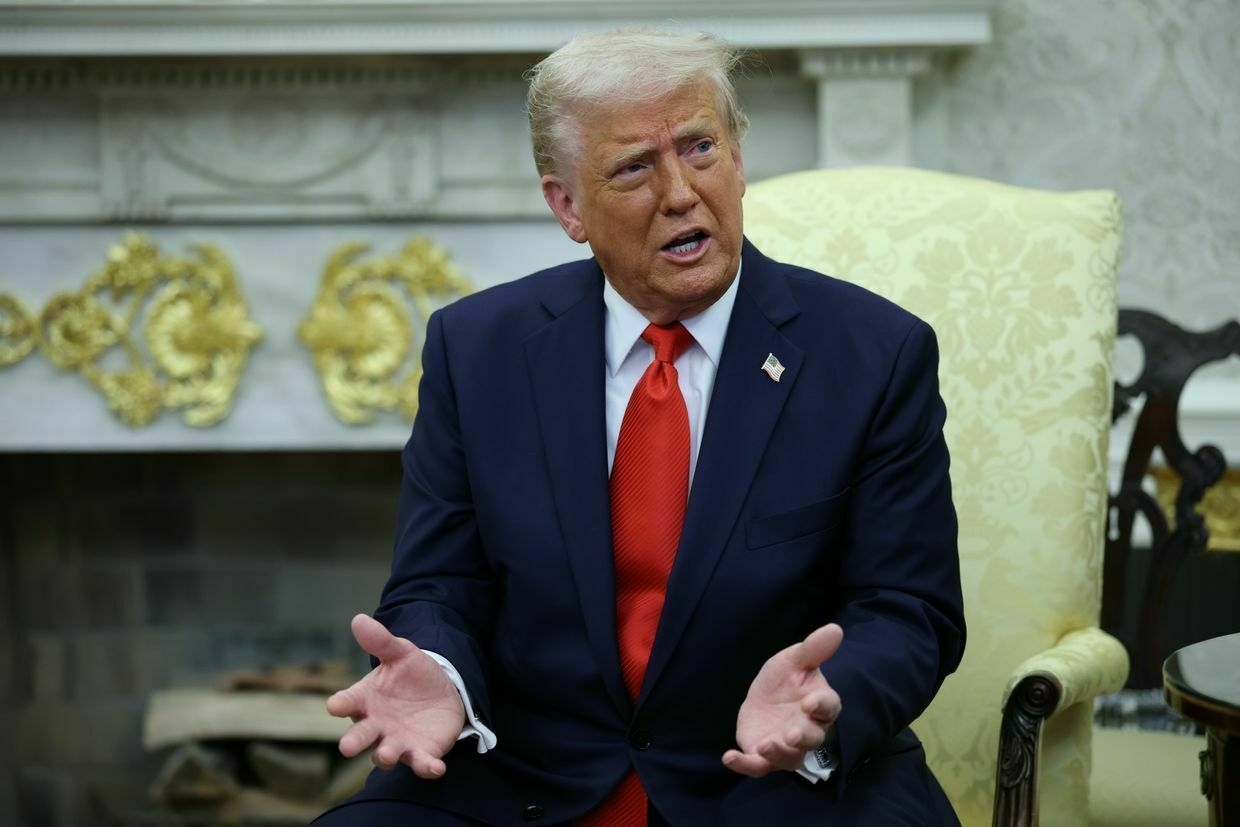
-
Russian attacks cause blackouts in Sumy Oblast after Moscow says energy truce over
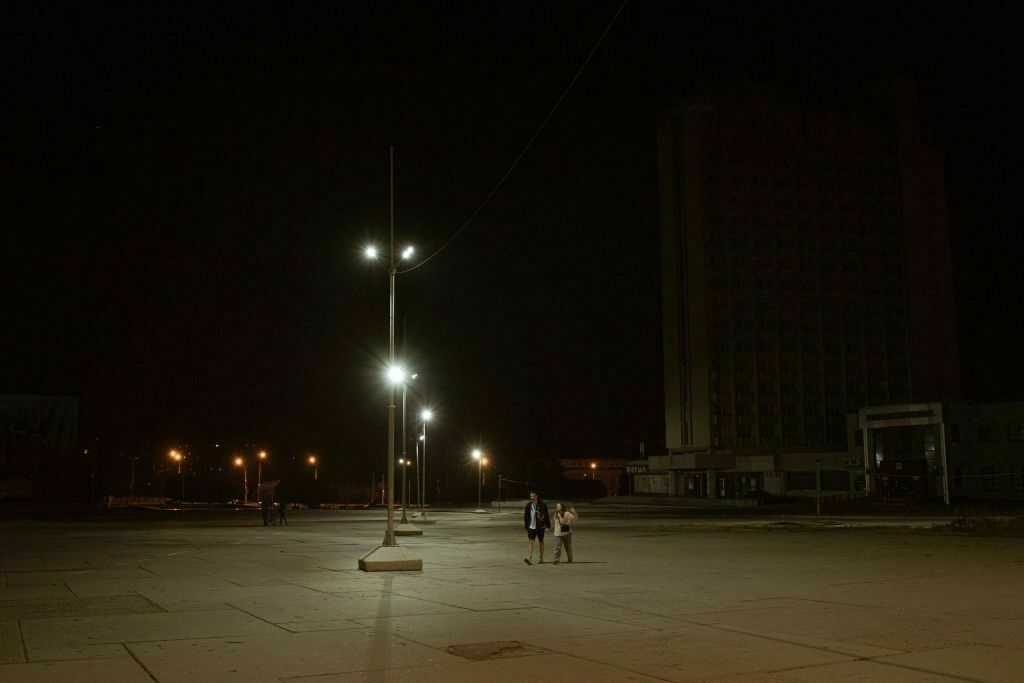
Blackouts have been reported in Sumy oblast after Russian strikes near Konotop and surrounding settlements on April 18.
The attacks come shortly after Moscow announced an end to the partial ceasefire on energy infrastructure strikes in effect between Russia and Ukraine. Kremlin spokesperson Dmitry Peskov said earlier on April 18 that the one-month period for the energy truce had expired.
According to Suspilne, explosions were heard near the city of Konotop around 8:00 p.m. local time.
While Konotop Mayor Artem Semenikhin reported that were no casualties or injuries, settlements in Sumy Oblast, including Krolevets and Shostka, lost power after the strikes. Local residents also reported that the water supply had been shut off.
Local energy officials confirmed on Telegram that the blackouts were a result of Russian strikes on energy infrastructure.
In March, the United States brokered a partial ceasefire between Russia and Ukraine on attacks against energy facilities, after the Kremlin refused to accept a full 30-day ceasefire on all hostilities.
Since then, Moscow has violated the ceasefire more than 30 times, Foreign Ministry Spokesperson Heorhii Tykhyi said on April 16.
In his comments on April 18, Peskov did not go into detail as to whether Russia plans to resume attacks on energy facilities or extend the ban. The attacks against Sumy Oblast indicate that Russia will not extend the partial ceasefire and has resumed attacks on critical infrastructure.
Kyiv has already agreed to enter an immediate ceasefire on all attacks once Moscow accepts the same terms. Russia continues to refuse, delaying and obstructing attempts to negotiate a comprehensive peace agreement.
U.S. President Donald Trump said on April 18 that Washington may “take a pass” on peace negotiations if either side makes it too difficult to secure a deal.
‘You’re fools’ — US may ‘take a pass’ on Ukraine-Russia talks if either side stalls, Trump says“If for some reason one of the two parties makes it very difficult, we’re just going to say: ‘you’re foolish, you’re fools, you’re horrible people,’ and we’re just going to take a pass. But hopefully we won’t have to do that,” U.S. President Donald Trump said.The Kyiv IndependentKateryna Denisova
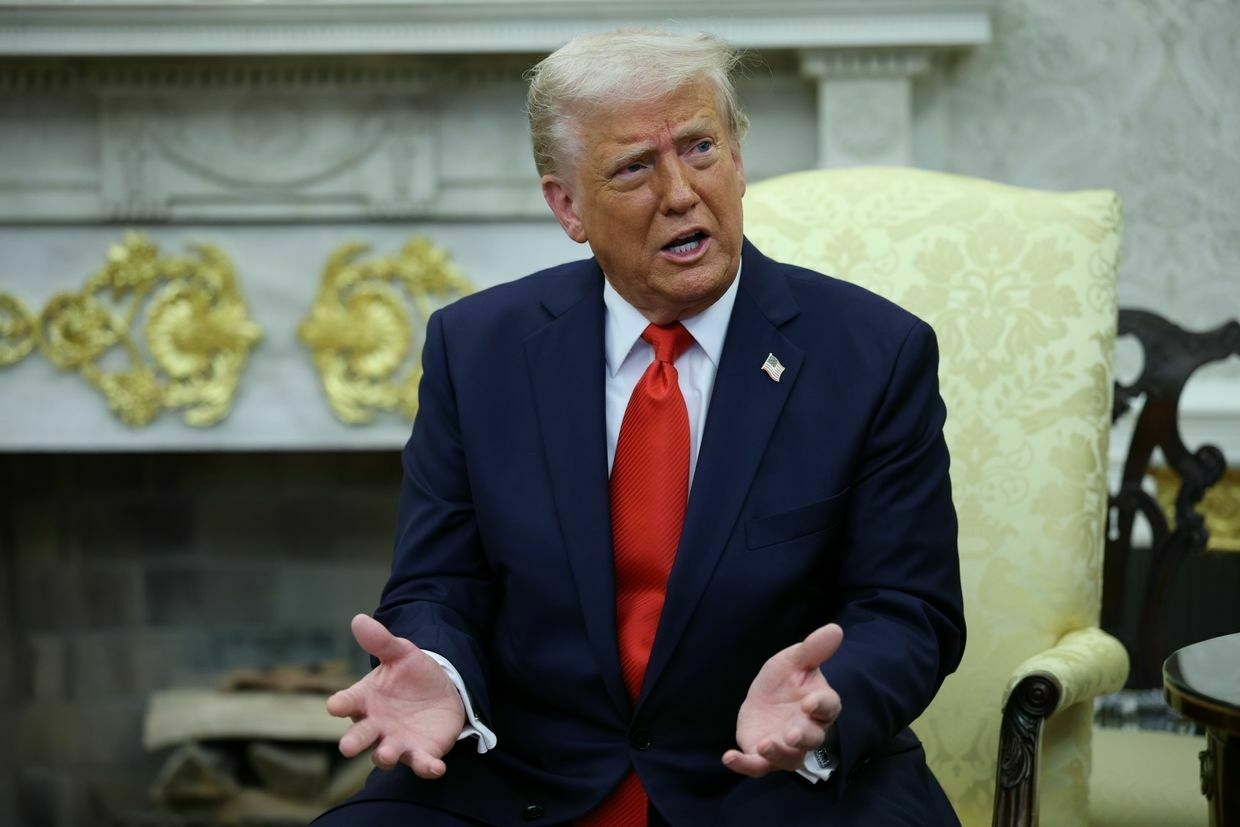
-
Trump admin considers recognizing Russian control of Crimea as part of peace deal, Bloomberg reports
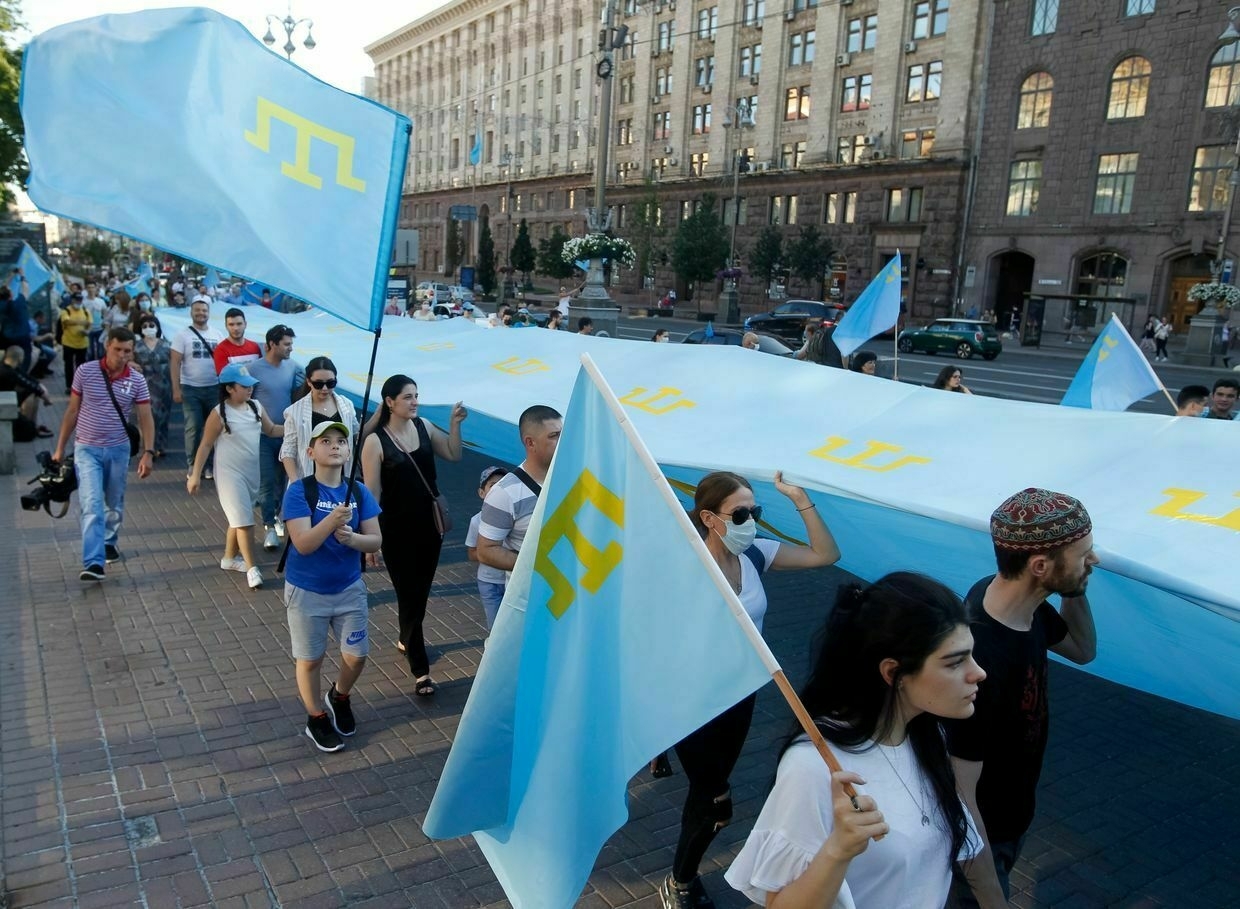
The United States is prepared to recognize Russia’s control over Crimea as part of a broader peace agreement between Moscow and Kyiv, Bloomberg reported on April 18, citing people familiar with the matter.
The potential concession signals President Donald Trump’s desire to secure a ceasefire deal. Trump and U.S. Secretary of State Marco Rubio indicated on April 18 that the administration may abandon its peace-brokering efforts if negotiations fail to progress soon.
In late February 2014, Russian troops without military insignia invaded Ukraine’s Crimea. Through much of February, Russia had quietly increased its troop presence on the peninsula. They blocked off airports in Sevastopol and Simferopol and seized the Crimean Parliament building.
They also blocked Ukrainian military bases located on the peninsula. Ukrainian troops didn’t receive an order to shoot at Russian troops.
In March 2014, the Russian-controlled Crimean parliament voted to hold a “referendum” to join Russia. The sham voting on annexation was conducted in the absence of any international observers and with armed Russian soldiers present at polling locations.
10 years of war: A timeline of Russia’s decade-long aggression against UkraineAlmost immediately following the end of the EuroMaidan Revolution in Ukraine in February 2014, Russia swiftly moved to annex and occupy the Crimean Peninsula. Within a couple of months, unrest erupted in eastern Ukraine followed by Russian-backed militias taking over administrative buildings. The…The Kyiv IndependentKateryna Denisova
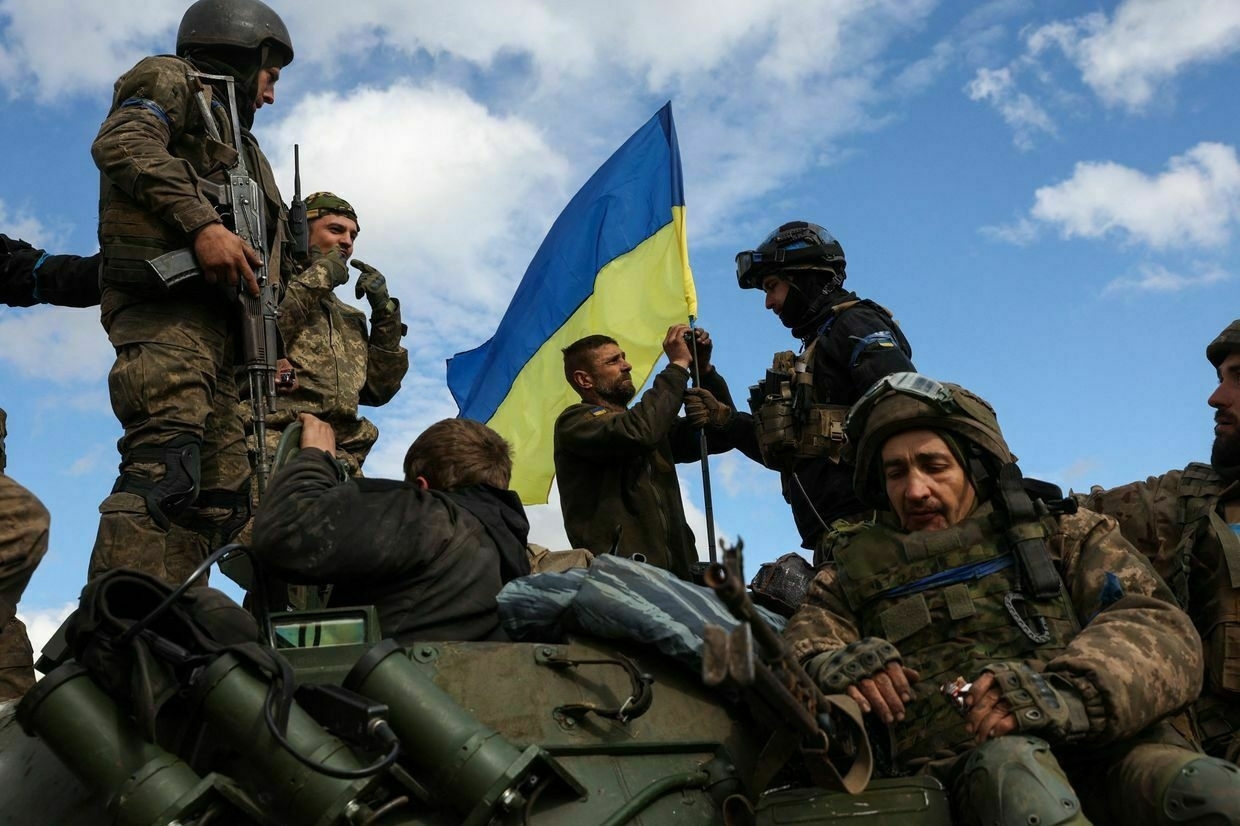
The so-called results were announced by Russian occupation authorities on March 16, 2014, in which the Russian government claimed that 97 percent of voters were in favor of annexation. Numerous international reports proved that the results were fabricated.
Recognizing Russia’s control of Crimea would mark a significant win for Russian President Vladimir Putin, who has long pushed for international legitimacy over the territory.
President Volodymyr Zelensky has repeatedly said Ukraine will not cede any part of its territory to Russia. Putin has so far rejected Trump’s broader peace proposal.
The sources said no final decision has been made. A U.S. official familiar with the negotiations declined to comment on the possibility of recognizing Crimea, citing the sensitivity of the ongoing talks.
Decolonizing Russia — what it means and why it mattersSpeaking to France’s National Assembly on April 11, Russian opposition leader Vladimir Kara-Murza did not petition Europe for the Kremlin’s total military defeat. Yet, while answering one of the many questions posed to him, he talked about how a colleague supposedly learned that ethnic Russians fin…The Kyiv IndependentKate Tsurkan
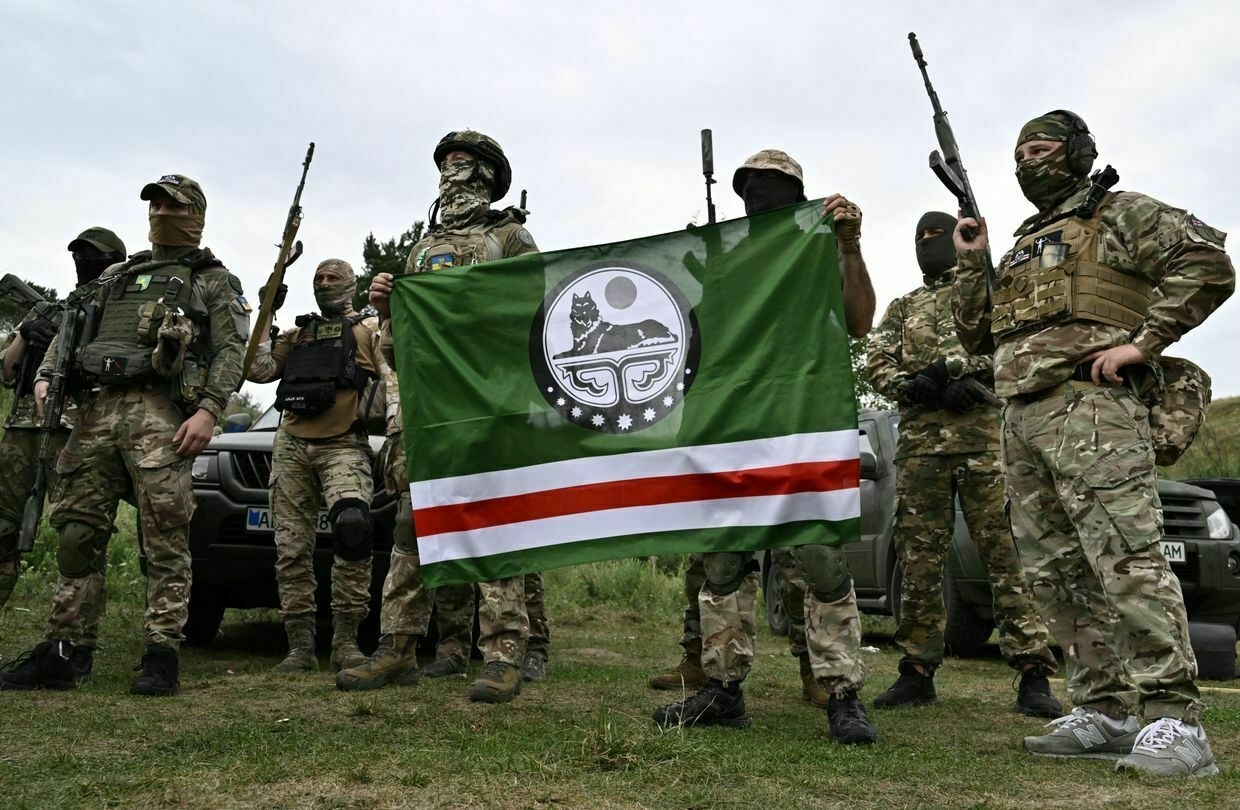
-
What to know about the 5 ‘key territories’ at the heart of Ukraine peace talks
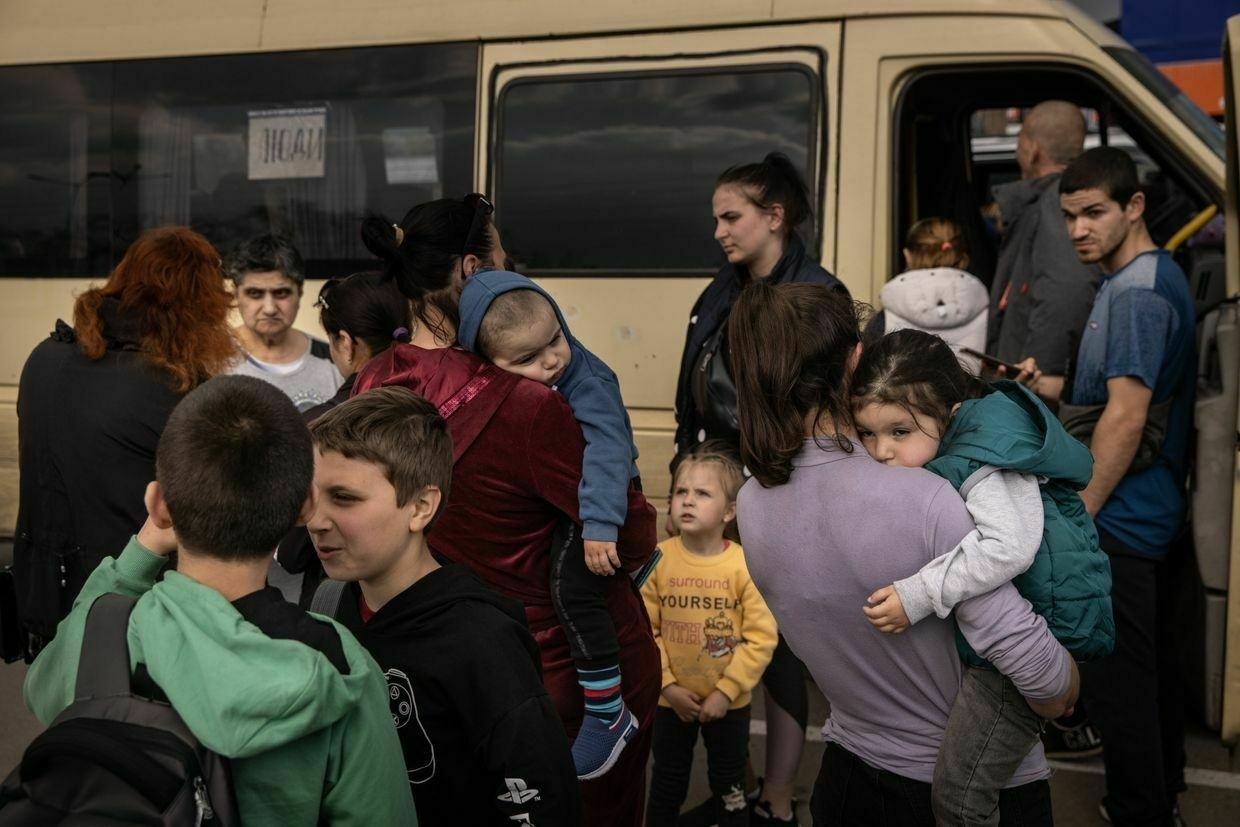
As U.S. officials continue to push for a ceasefire between Russia and Ukraine, five Ukrainian territories have emerged as a central focus — and sticking point — in the negotiations.
“This peace deal is about these so-called five territories,” U.S. special envoy Steve Witkoff said in comments to Fox News on April 14, understood to be the Ukrainian regions of Crimea, Zaporizhzhia, Kherson, Donetsk, and Luhansk.
Russia illegally declared ownership over Crimea in 2014 and over the other four regions in 2022 after its full-scale invasion, moves widely condemned by the global community.
Russia now occupies large portions of the territories, but has failed to capture all the land. It has repeatedly demanded international recognition of the regions as Russian and that Ukrainian troops completely withdraw from them as part of any peace negotiations.
Such a move would go much further than simply freezing the current battle lines, where Russia currently controls around 20% of Ukraine’s territory. It would permanently surrender to Russia four of Ukraine’s 24 oblasts as well as the autonomous Ukrainian region of Crimea — historic national lands home to millions of Ukrainians.
President Volodymyr Zelensky, responding to Witkoff’s recent comments, reiterated that Ukraine is prepared to negotiate a ceasefire but will not recognize these territories as Russian.
“I do not see any mandate for him (Witkoff) to speak about Ukrainian territories. These lands belong to our people, to our nation, and to the future generations of Ukrainians,” Zelensky said during a press briefing on April 17.
What is the current status of these regions?Moscow illegally invaded and annexed Crimea in 2014, marking the effective start to Russia’s ongoing war. It has occupied the peninsula ever since.
The War in Donbas began weeks later, after Russian troops invaded and occupied eastern portions of Luhansk and Donetsk that bordered Russia, causing the displacement of millions of Ukrainians. At the time, Russia denied involvement and framed the invasion as a separatist movement, claims that have since been disproven.
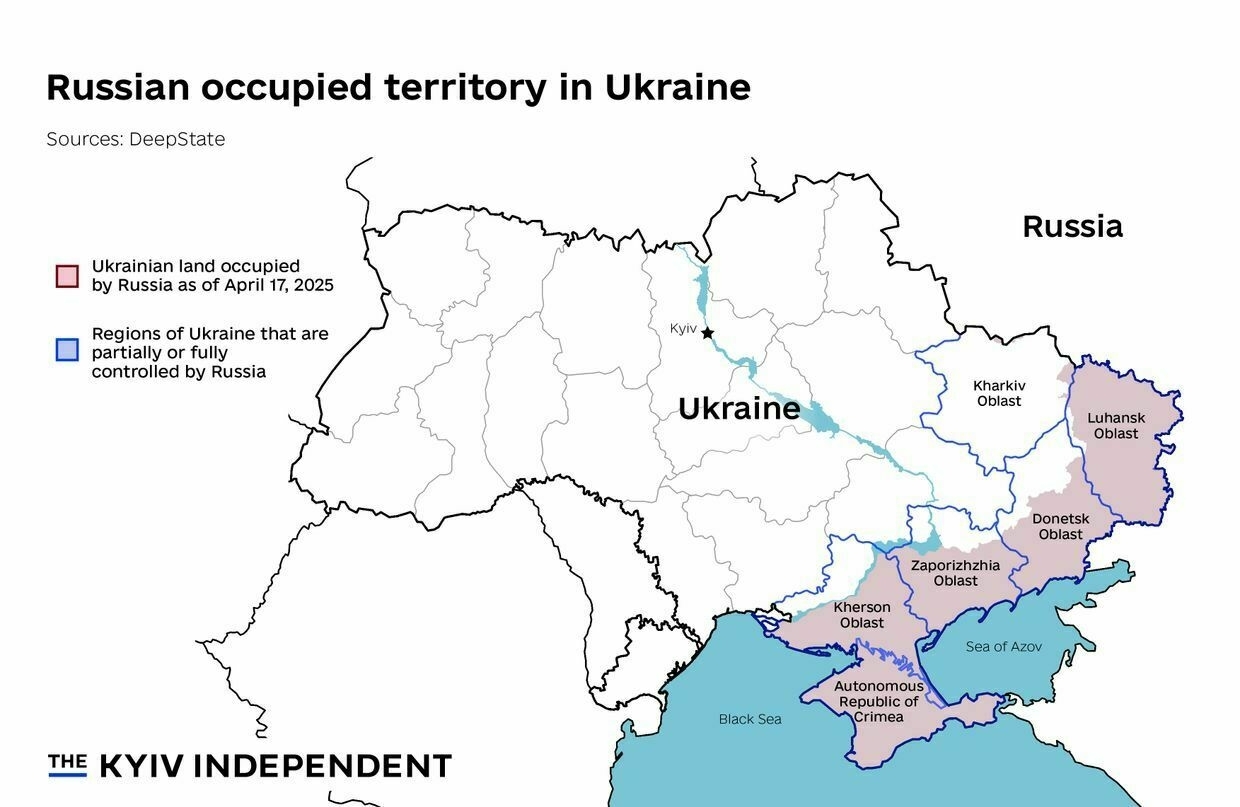
Russian occupied territory in Ukraine as of April 17, 2025 (Nizar al-Rifai/The Kyiv Independent) Portions of Luhansk and Donetsk oblasts remained under occupation over the next decade, including the capital cities of each region.
In 2022, Russia expanded the war with its full-scale invasion of Ukraine.
Millions more Ukrainians since then have fled Russian-controlled territories, though others remain living under occupation. Human rights groups have documented widespread torture, unlawful detention, and forcible disappearance of civilians living in Russian-occupied areas.
Russia occupies 99% of Luhansk Oblast, 66% of Donetsk Oblast, and 73% each of Zaporizhzhia and Kherson oblasts, according to geolocation estimates from the Institute for the Study of War (ISW). It occupies a small percentage of land in Kharkiv Oblast, but does not hold any major settlements there.
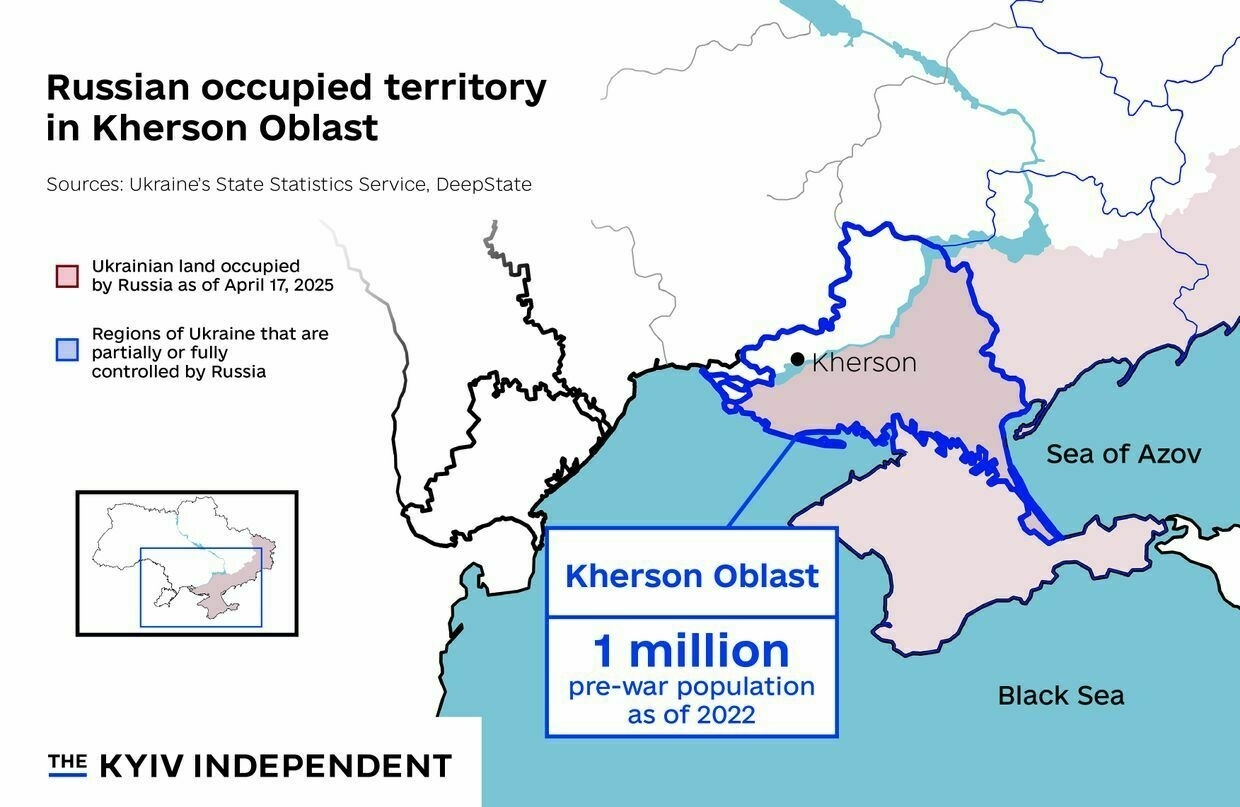
(Nizar al-Rifai/The Kyiv Independent) 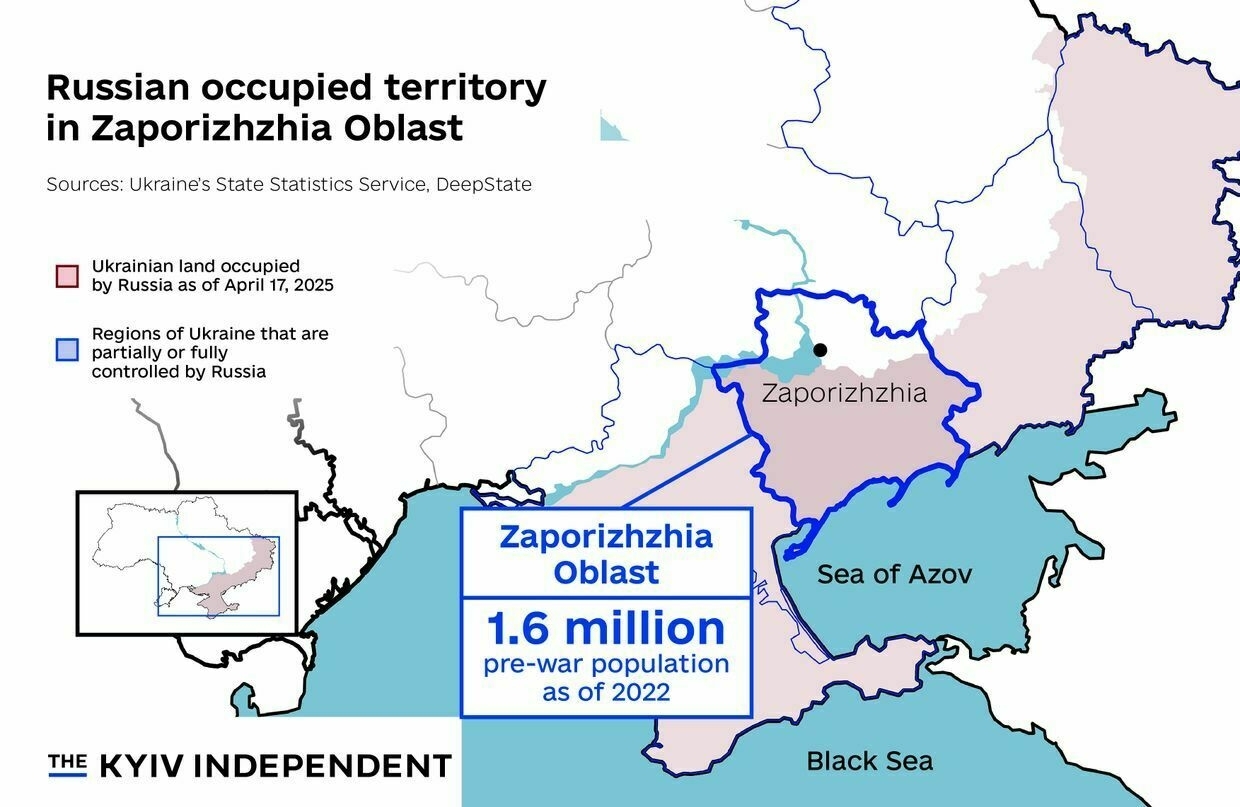
(Nizar al-Rifai/The Kyiv Independent) 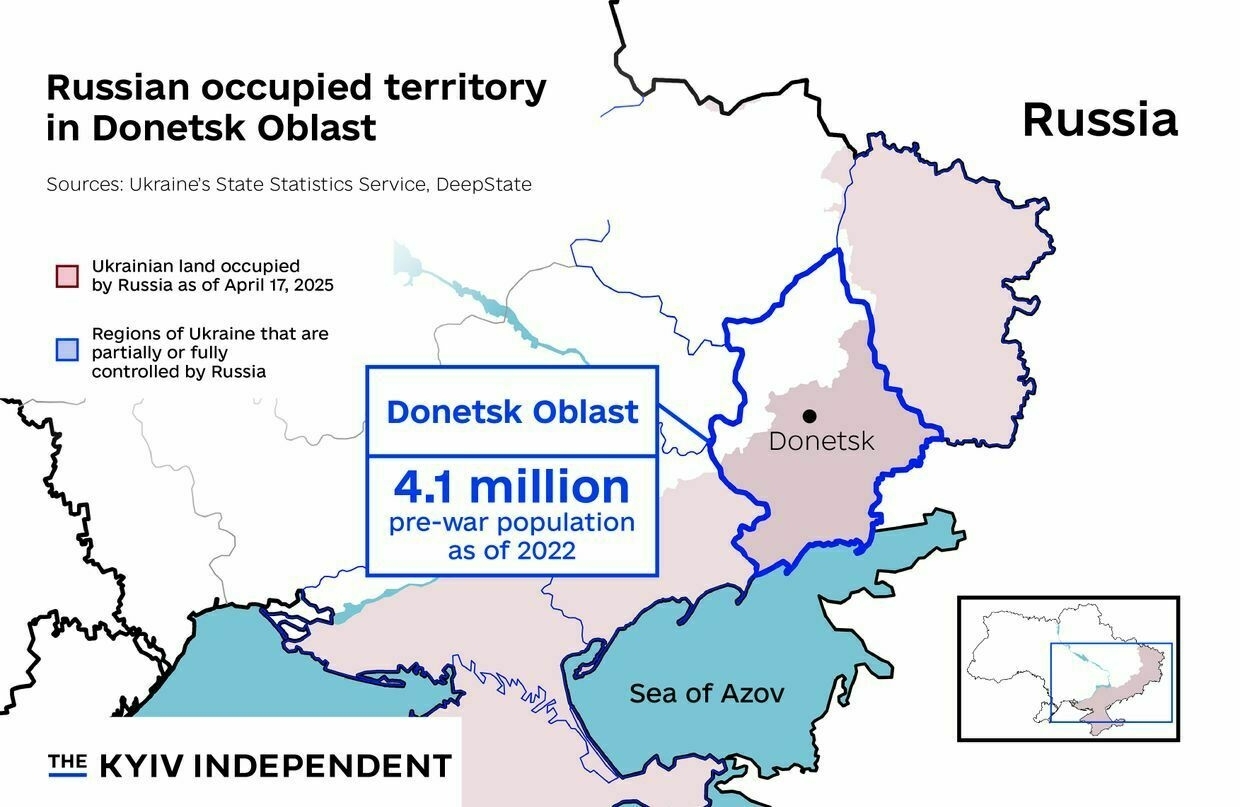
(Nizar al-Rifai/The Kyiv Independent) 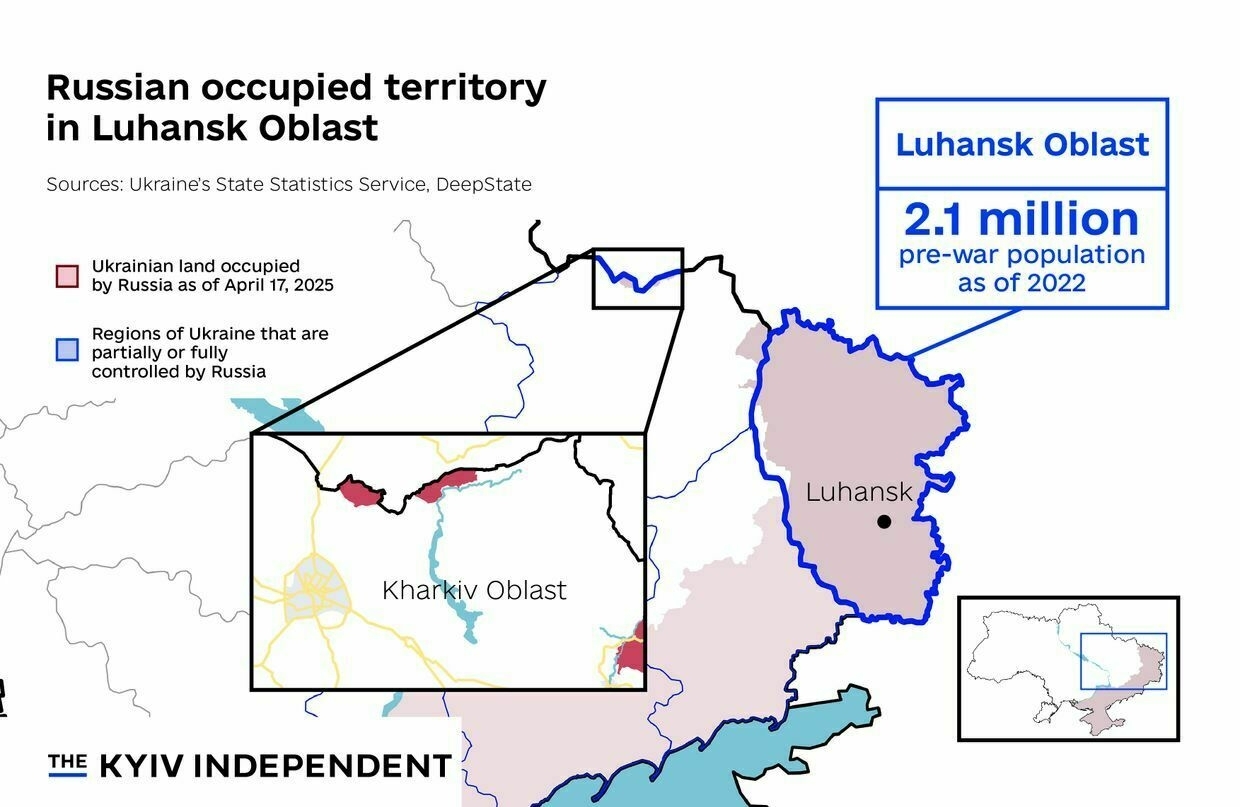
(Nizar al-Rifai/The Kyiv Independent) 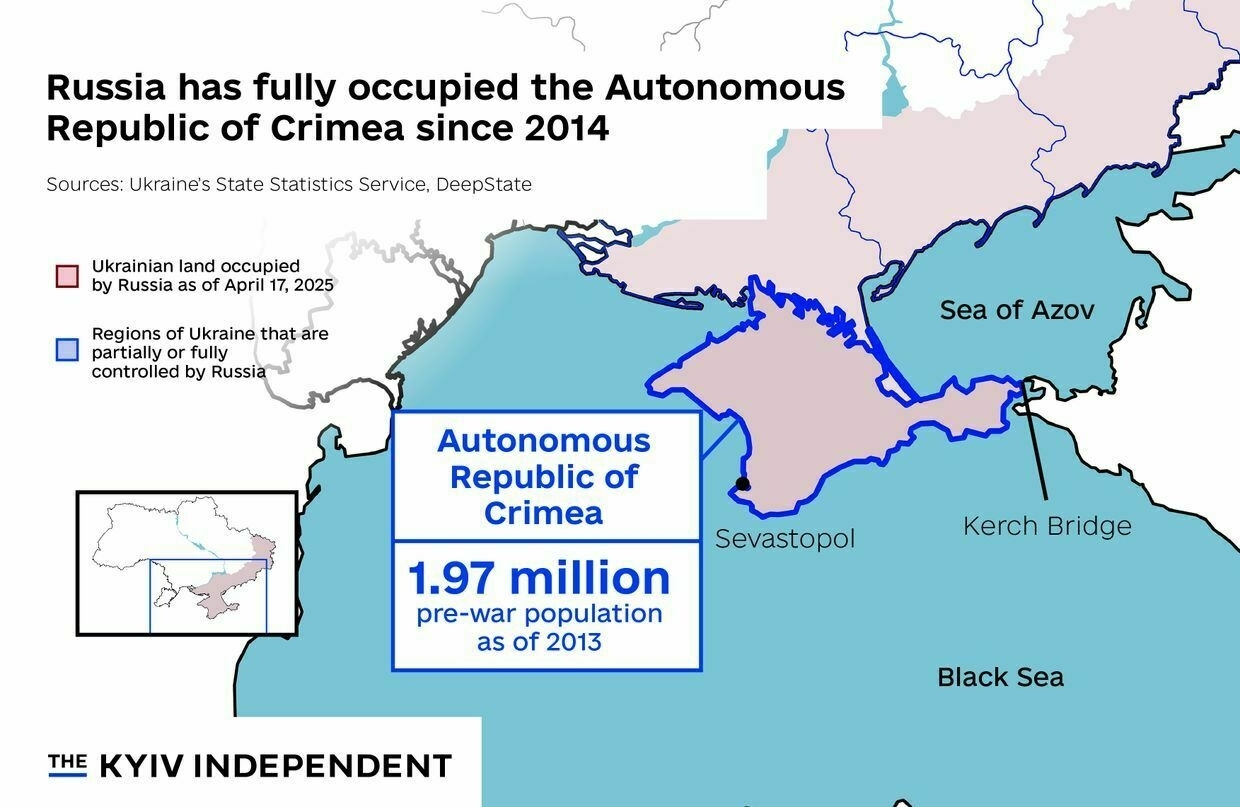
(Nizar al-Rifai/The Kyiv Independent) The Ukrainian-controlled portions of Zaporizhzhia and Kherson include their major regional capitals, where hundreds of thousands still live and are subjected to frequent Russian drone and missile attacks.
According to the ISW, Russia is unlikely to capture the rest of these territories in the near term, “if at all.”
Why are they important for negotiations?For Ukraine, ceding sovereignty is a “red line” that Kyiv has said it will not cross in negotiations.
During the first years of the full-scale invasion, Zelensky insisted that any peace deal must restore all of Ukraine’s territory. His position softened this year, with Zelensky signaling that he could accept temporary occupation of land Russia has seized, but that Ukraine would not give up its legal claims to the land.
Only 8% of Ukrainians would be willing to fully withdraw Ukrainian troops from Donetsk, Luhansk, Kherson, and Zaporizhzhia oblasts to end the war. Less than 5% would be willing to recognize those regions as Russian, according to a poll published March 20 by the Razumkov Center, a Kyiv-based public policy think tank.
While Ukraine has made compromises to reach a deal, Russia has signaled no willingness to make concessions or back off its demands of ownership over the territories. It also continues to demand other restrictions on Ukraine, such as limiting its ability to join NATO and the size of its military. It has also called for a change in Ukraine’s leadership.
The fate of these territories could prove to be a roadblock to negotiations, which have largely stalled after Russia refused to agree to a 30-day ceasefire that Ukraine was prepared to sign.
The eastern and southern regions Russia is seeking to control have historically been Ukraine’s industrial powerhouse, home to crucial mining resources and engineering facilities that were involved in global trade prior to the invasion.
Another reason for Russia’s interest in the four territories it claimed since the full-scale invasion is that these regions create a strategically valuable land bridge to Crimea from Russia’s mainland. Currently, the only access from Russian territory to Crimea is through the Kerch Bridge, a 19-kilometer (12-mile) bridge built by the Kremlin after Russia annexed the peninsula.
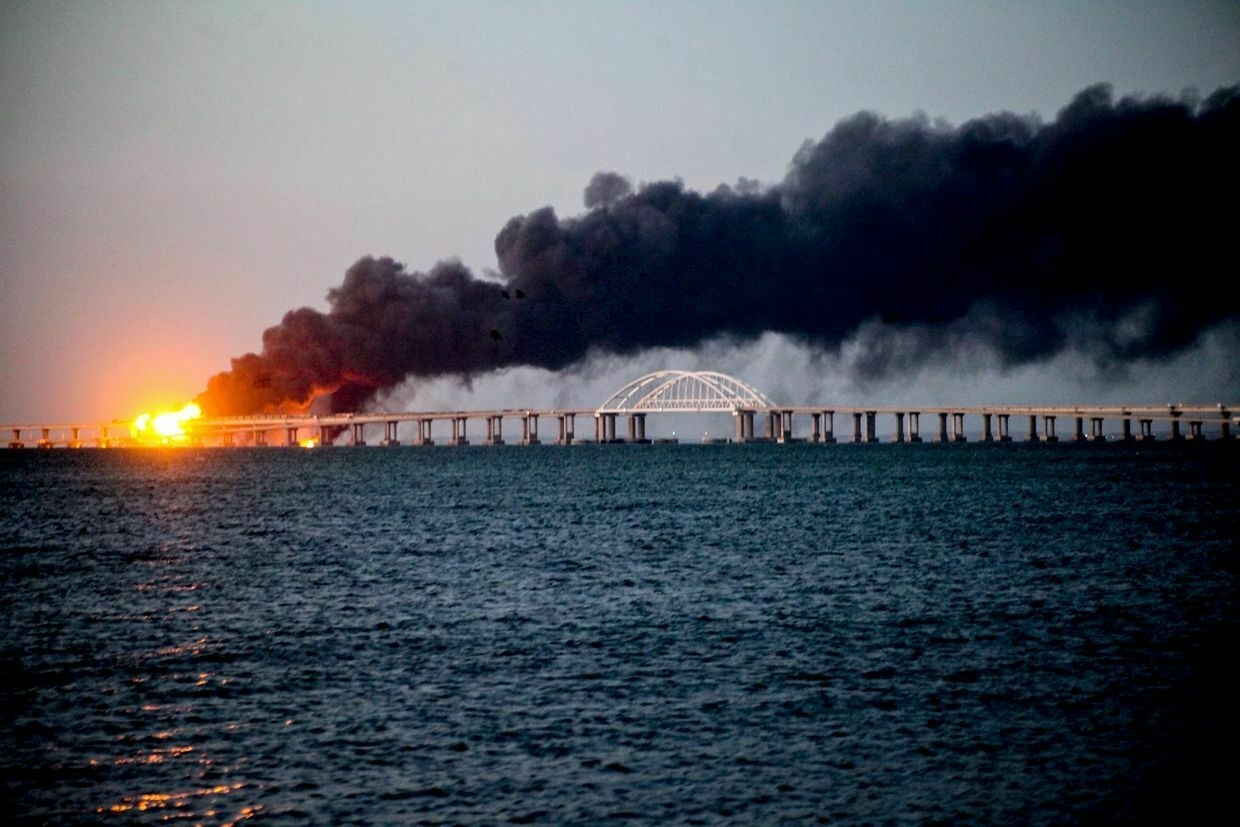
An explosion carried out by the Security Service of Ukraine (SBU) caused a fire at the Kerch bridge in the Kerch Strait, Crimea, Ukraine, on Oct. 8, 2022. (Vera Katkova/Anadolu Agency via Getty Images) The bridge serves as a vital supply route to Crimea and has repeatedly been disabled by Ukrainian attacks throughout the war.
Control over the five territories would also give Russia full control over the Sea of Azov, an important access route to the Black Sea.
What is the U.S. stance on these regions?The U.S. continues to recognize Ukraine’s sovereignty over these territories, but recent comments from Witkoff have alarmed Ukraine’s supporters.
After a meeting between Witkoff and Russian President Vladimir Putin, Witkoff reportedly told Trump that giving Russia ownership over these territories would be the fastest way to secure a ceasefire deal.
Witkoff has also repeated Russian narratives about sham referenda held in the occupied regions, claiming that Ukrainians in these regions voted to be part of Russia. He was denounced in Ukraine and abroad for failing to recognize that the referenda were held effectively at gunpoint, with widespread intimidation from occupying forces.
While he has taken the lead role in negotiations with Russia, his views are not held throughout the entire administration.
According to the Wall Street Journal, U.S. Secretary of State Marco Rubio and U.S. Special Envoy for Ukraine Keith Kellogg are urging President Donald Trump to resist territorial concessions to Moscow.
On April 18, Rubio suggested that the U.S. may end its attempt to negotiate a peace deal between Ukraine and Russia if there are no signs of progress in the coming days.
‘Territories are first and foremost people:’ Zaporizhzhia, Kherson residents anxiously watch Witkoff debate the land they live onZaporizhzhia — During what would usually be evening rush hour in Zaporizhzhia, cars move easily through main streets that were once choked with traffic. As the shadows grow longer, soldiers calmly remove camouflage netting from the air defense weapons they’ll man against Russia’s deadly attacks unti…The Kyiv IndependentAndrea Januta
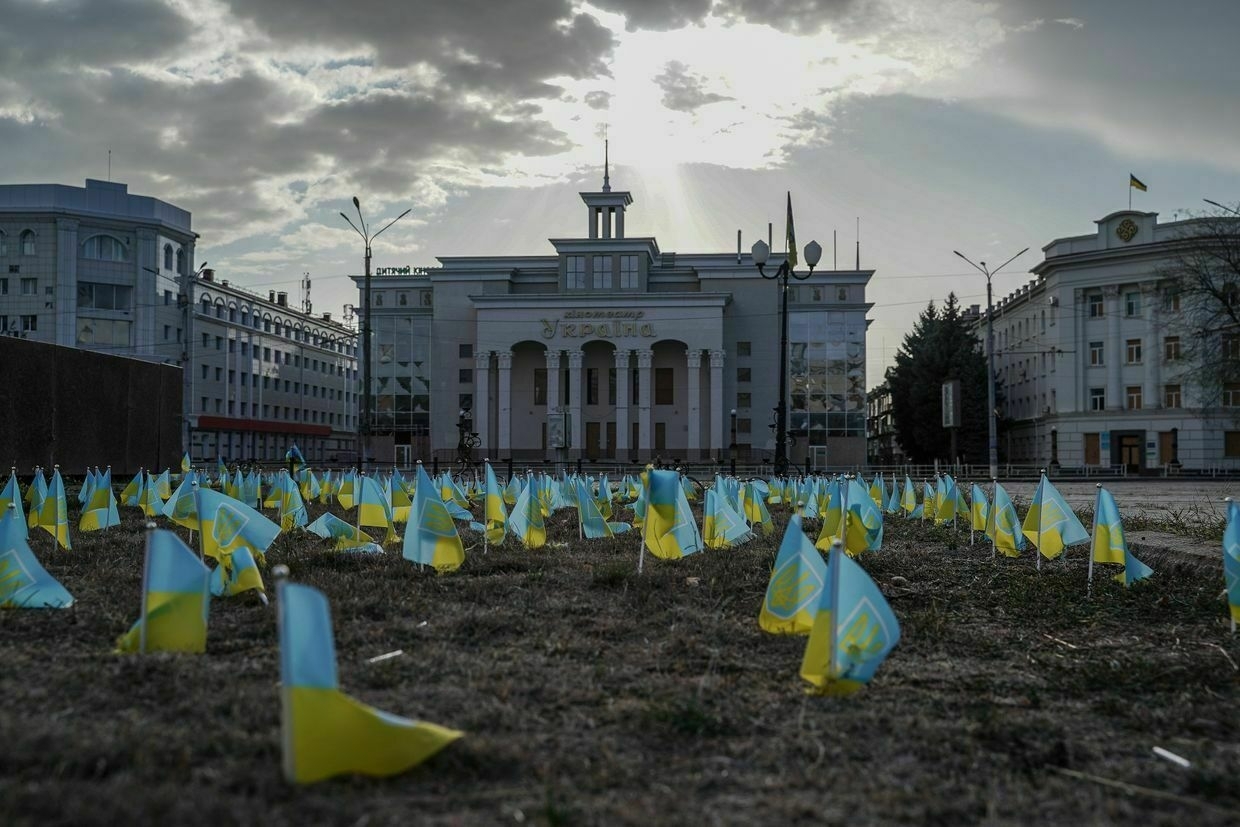
-
As Trump mulls cuts, NATO's integrity is on the line
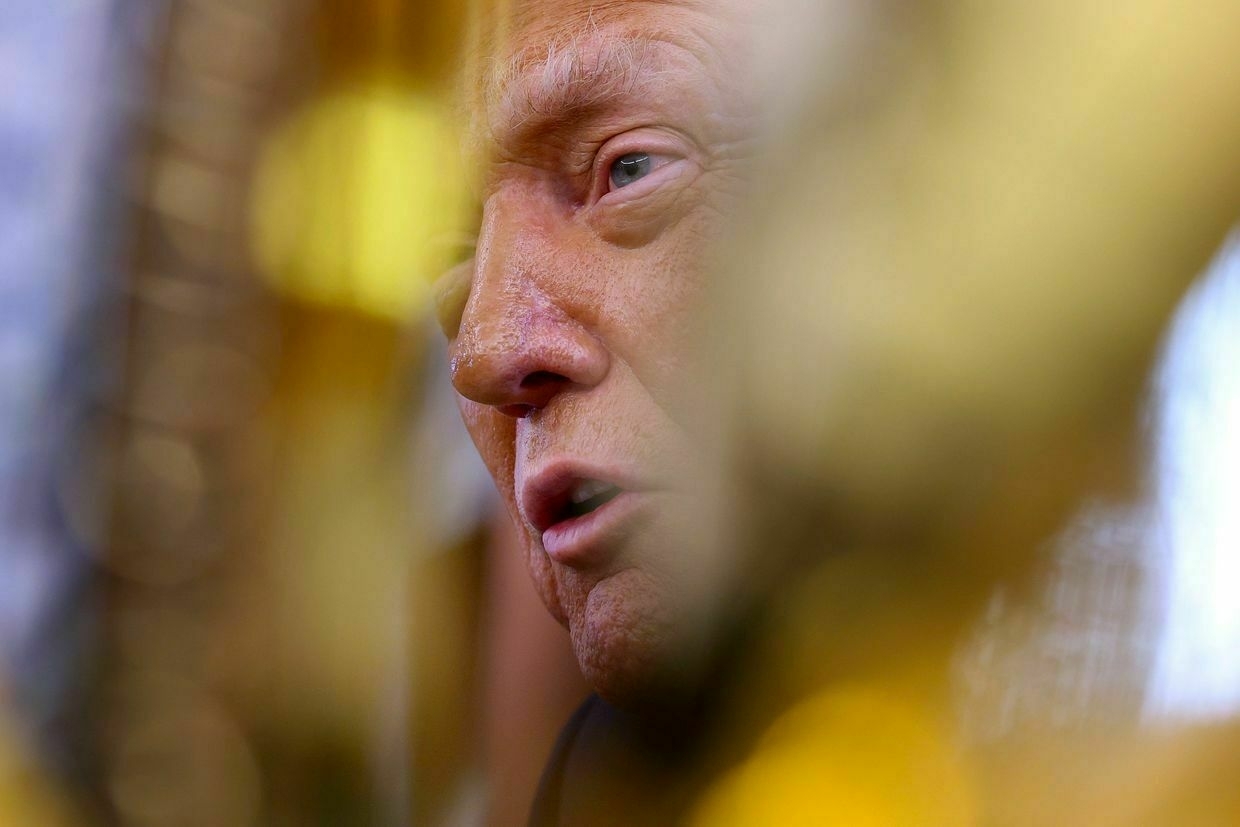
With the start of Donald Trump’s second term in office, NATO finds itself on shaky ground — reports that the U.S. president might cut the alliance’s funding do little to ease fears.
A leaked White House memo revealed plans to slash the U.S. State Department funding for the next fiscal year in half, with almost no money allocated for the common NATO budget.
The cuts would come as the alliance faces its most dire security challenge since the Cold War, as Russia wages an all-out war against Ukraine and slowly sets its sights on NATO members.
The move would also underscore Trump’s disregard for transatlantic security, which is already challenged by reported plans to withdraw some U.S. troops from Europe and relinquish leadership of European allied command.
But not all is said and done. The U.S. State Department pushed back against the reports on funding cuts, implying that the memo was a “suggestion” and reaffirming its commitment to the alliance.
Furthermore, the State Department does not carry the U.S. costs for NATO’s common budgets on its own, sharing the responsibility with the Defense Department.
Nor should one fall under the Trump-induced illusion that the U.S. pays for most of NATO’s operations — Washington pays for roughly one-sixth of NATO’s budgets, making it conceivable that other members can plug the whole.
‘You’re fools’ — US may ‘take a pass’ on Ukraine-Russia talks if either side stalls, Trump says“If for some reason one of the two parties makes it very difficult, we’re just going to say: ‘you’re foolish, you’re fools, you’re horrible people,’ and we’re just going to take a pass. But hopefully we won’t have to do that,” U.S. President Donald Trump said.The Kyiv IndependentKateryna Denisova
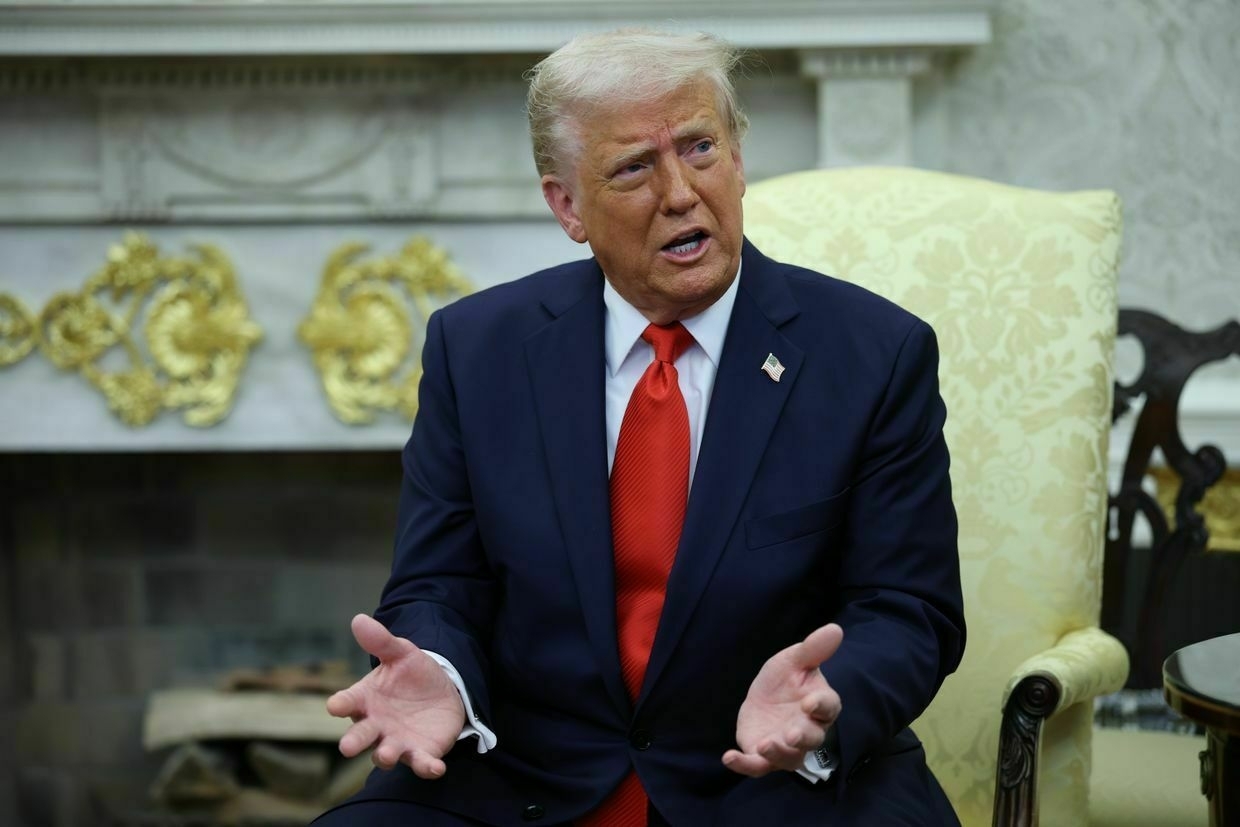
How is NATO funded — and what share does US really payTrump has caused some confusion about the scope of the U.S. contribution to NATO’s budget. He once went as far as to claim that the U.S. covers 80% of the alliance’s funding, a wild overstatement that resembles his false statements on the aid sent to Ukraine.
The U.S. president has often accused allies of taking advantage of the U.S.’s defense spending, presenting their lack of contributions as a “debt” owed to Washington.
While it is true that the U.S. overspends other NATO allies by a significant margin — representing two-thirds of the alliance’s overall defense spending — this has no relation to direct funding of NATO’s budgets.
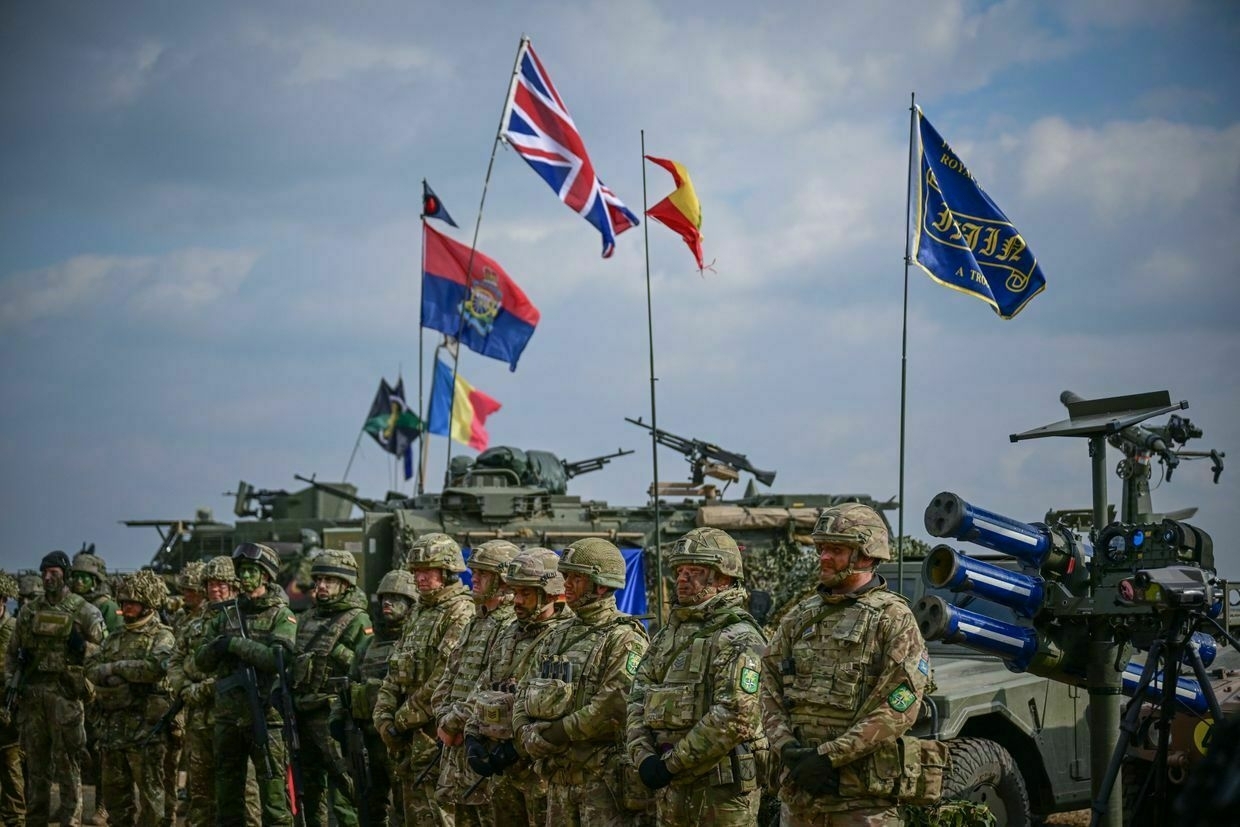
NATO military forces take part in a static display after Exercise Steadfast Dart 2025 at the Smardan Training Area in Smardan, Romania, on Feb. 19, 2025. (Daniel Mihailescu / AFP via Getty Images) The alliance’s day-to-day operations are funded through direct and indirect contributions by its members, calculated by their gross national income (GNI). Around $5.2 billion has been allocated for this year’s common budget, only about 0.3% of the total allied defense spending.
“Every member contributes to this common funding pool based on the size of their economy,” said James Goldgeier, professor at the School of International Service at American University.
“This money is separate from the funding each country provides for their own defense spending, which is what we usually focus on,” the researcher told the Kyiv Independent.
The U.S. and Germany shoulder the greatest portion of NATO’s common budget — roughly 16% each, or about $830 million in 2025. They are followed by the U.K. with 11% and France with 10%, while the other members' contributions are counted in single digits or even below 1%.
The funding is divided among three budgets. The $550 million civilian budget, which funds NATO Headquarters operations, consultations, and related costs, appears to be the one threatened by Trump’s planned State Department cuts.
The civilian budget is mostly supported by members' foreign ministries, while defense ministries foot the bill for the military budget, including missions, exercises, command structure operations, and more.
The NATO Security Investment Program (NSIP), an investment fund used mainly for the development of common facilities and installations, among others, is also funded via national defense budgets.
The Pentagon has not escaped the wide-reaching budget cuts the Trump administration unleashed upon government agencies in the name of cost savings.
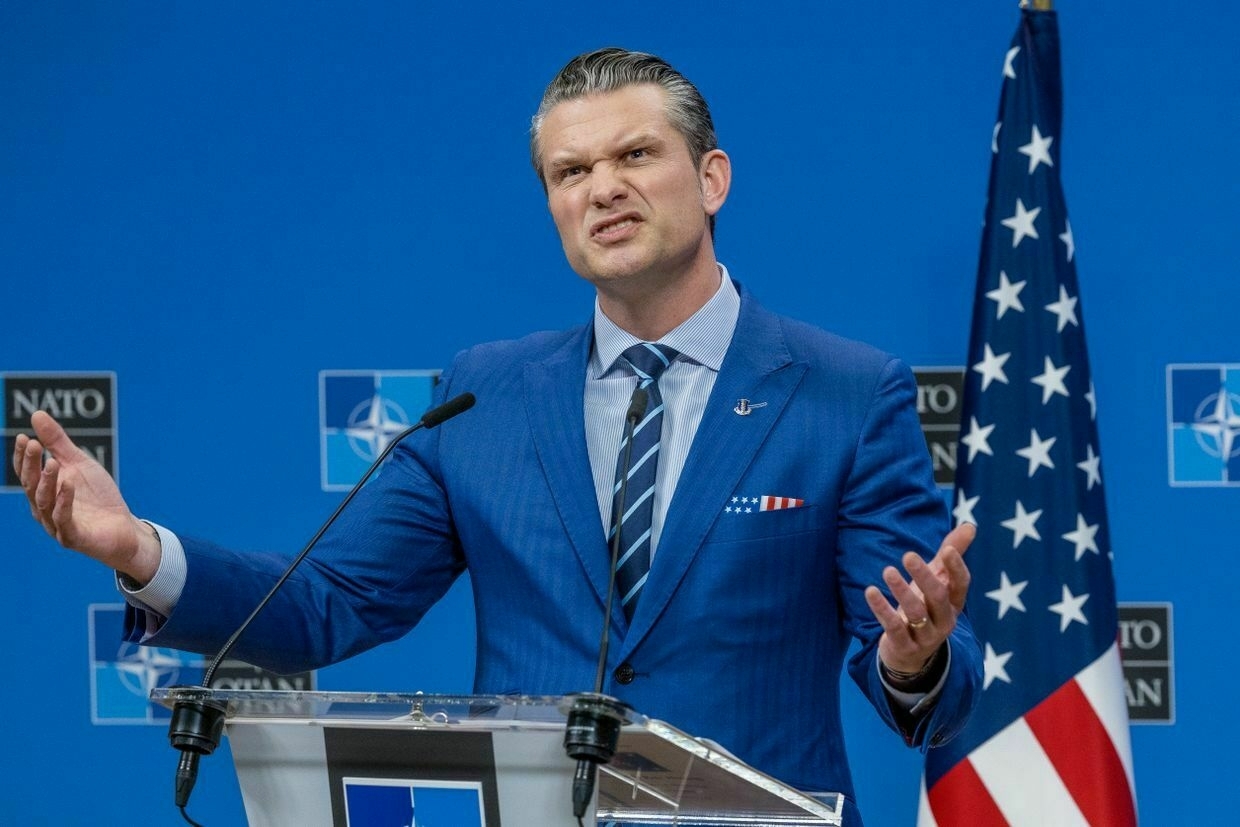
U.S. Secretary of Defense Pete Hegseth holds a closing press conference at the end of defense ministers' meetings at NATO headquarters in Brussels, Belgium, on Feb. 13, 2025. (Omar Havana / Getty Images) Defense Secretary Pete Hegseth has already taken the axe to supposed “Diversity, Equity, Inclusion” (DEI) projects, with even more cost-saving measures expected in the future.
To the public’s knowledge, the Pentagon’s NATO funding is not on the chopping block — yet.
Trump has made no secret about his dislike of NATO, often criticizing allies for insufficient defense spending.
It was also Trump who, in his first term, negotiated reduced U.S. contributions to the alliance’s budgets. When he first took office in 2017, the U.S. covered 22% of NATO’s operational costs.
European partners must be ready that the figure may continue to drop as Washington pivots away from the transatlantic alliance.
All the president’s men: Inside the closed world of Putin’s key advisorsIn Russian politics, all eyes are focused on one man: Russian President Vladimir Putin. But as ceasefire talks continue, the world’s attention has also been drawn to those sent forward to do the Kremlin’s bidding — whether at the negotiating table in Saudi Arabia or in the backrooms of Washington D.The Kyiv IndependentKatie Marie Davies
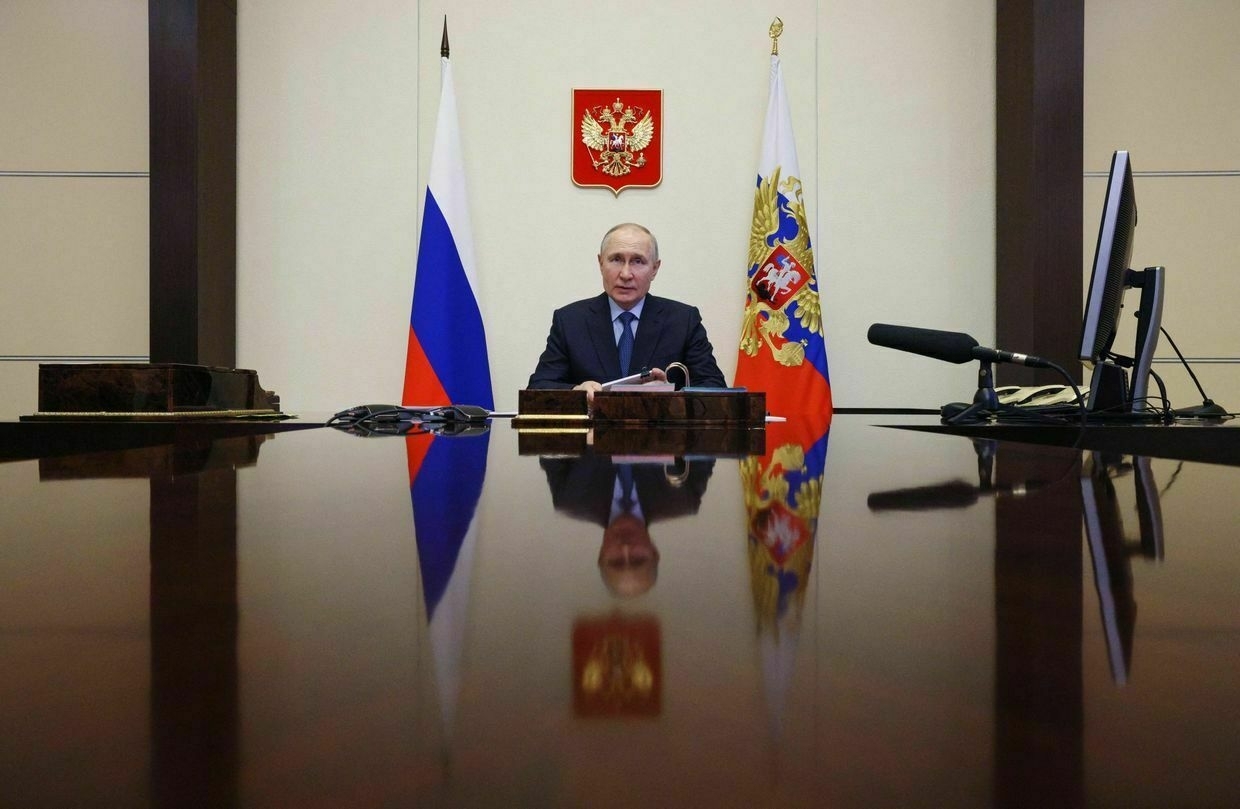
Warning signs for EuropeWhile non-U.S. NATO members would likely be able to sustain the budget without Washington’s support, the cuts would signal much darker implications.
“The Europeans could fill the gap because these funds are not very large, but a U.S. pullback from this common funding would be yet another sign that this administration does not view NATO as a common endeavor of alliance members with a shared purpose,” Goldgeier said.
In whatever shape the cuts may come, they could not happen at a worse moment. Russia shows no signs of relenting in its all-out war against Ukraine and is already issuing direct threats to NATO’s eastern members.
The Trump administration is, in the meantime, expected to withdraw some 10,000 troops from the alliance’s eastern flank, signaling that Europe is no longer its priority.
During his first official visit to NATO Headquarters on April 3, Secretary of State Marco Rubio — often seen as the “adult in the room” within Trump’s team — sought to reassure the partners that the U.S. has no intention of leaving the alliance.
“President Trump has made clear he supports NATO. We’re going to remain in NATO,” Rubio said at a press briefing alongside NATO Secretary General Mark Rutte.
He has, nevertheless, repeated Trump’s call to increase the NATO defense spending benchmark to 5% of GDP, a request in stark contrast to possible cuts to the common funding.
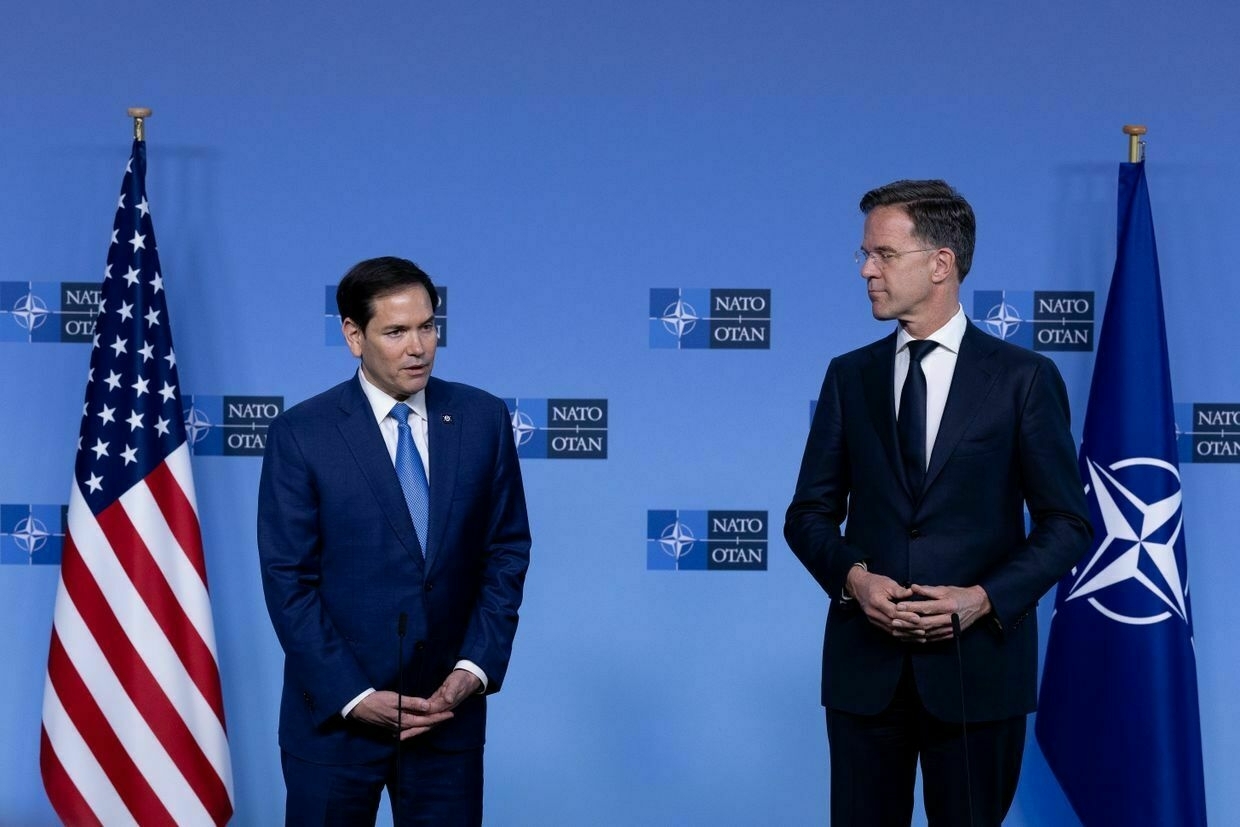
U.S. Secretary of State Marco Rubio (L) speaks during a joint press conference with NATO Secretary General Mark Rutte during the NATO Foreign Affairs Ministers' meeting at NATO headquarters in Brussels, Belgium, on April 3, 2025. (Omar Havana / Getty Images) The more MAGA-aligned U.S. officials are less restrained. Elon Musk, the world’s richest man who now holds unprecedented powers in Washington, openly supported an exit from NATO, and some hardline Republicans even submitted a bill to do just that.
In December 2023, then-Senator Rubio co-sponsored a bill that barred the president from unilaterally leaving the alliance without congressional approval. But even if Trump may find it difficult to leave NATO formally, some observers point out that his actions might still render the alliance de facto irrelevant.
The U.S. president has already directly challenged the alliance’s most sacred cornerstone, the collective defense principle, by saying he would not defend those members who do not spend enough on their security.
“It’s common sense, right,” Trump said in the Oval Office in March. “If they don’t pay, I’m not going to defend them. No, I’m not going to defend them."
The Europeans got the memo.
“The West as we knew it no longer exists,” European Commission President Ursula von der Leyen said in April amid the increasingly strained relations between the two sides of the Atlantic.
Underscoring the changing times, Friedrich Merz, the soon-to-be German chancellor, and a devout Atlanticist, declared right upon his election victory that his goal was “to strengthen Europe as quickly as possible so that, step by step, we can really achieve independence from the U.S."
US proposes leaving occupied areas under Russian control, easing sanctions, Bloomberg reportsOne of the officials told Bloomberg that the U.S. plans, which require further discussion with Kyiv, would not be a final settlement and that European allies would not recognize the occupied territories as Russian.The Kyiv IndependentKateryna Denisova
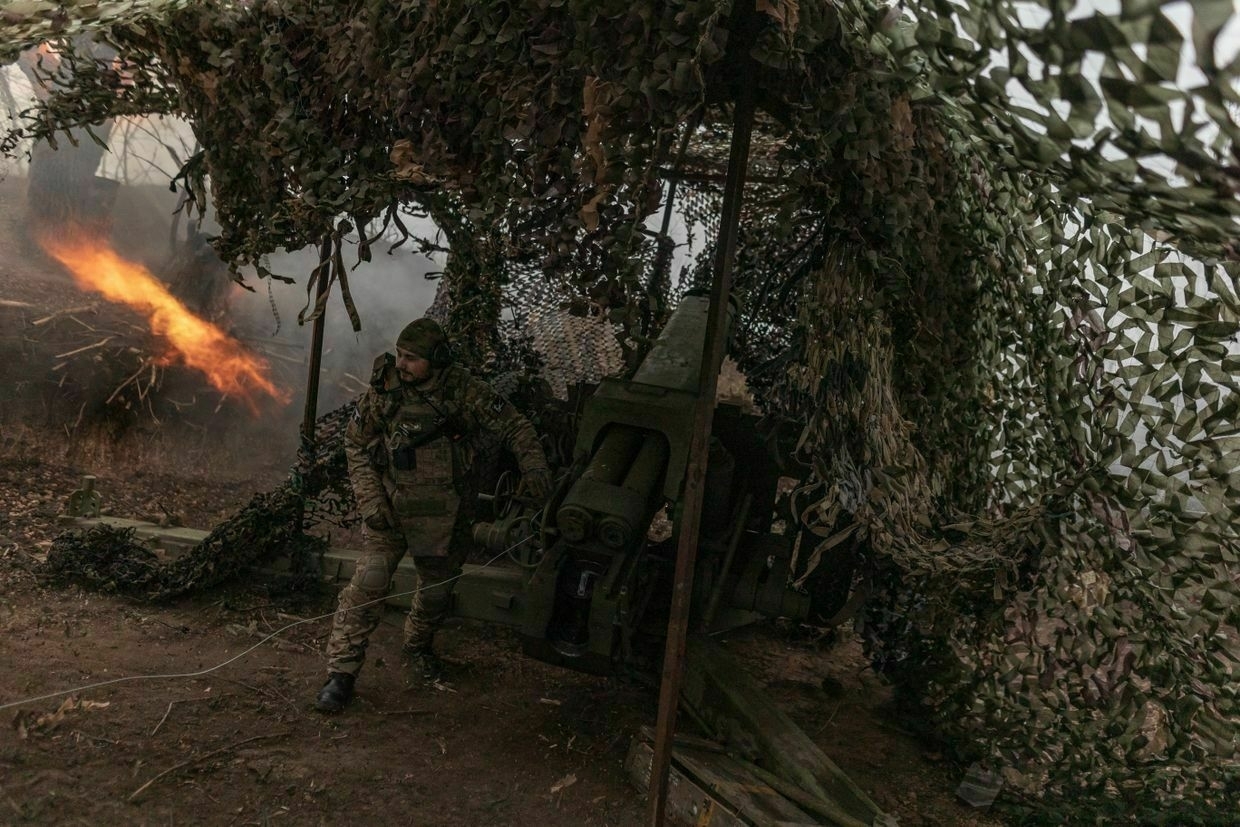
-
Ukraine war latest: US proposes leaving occupied areas under Russian control, easing sanctions, Bloomberg reports
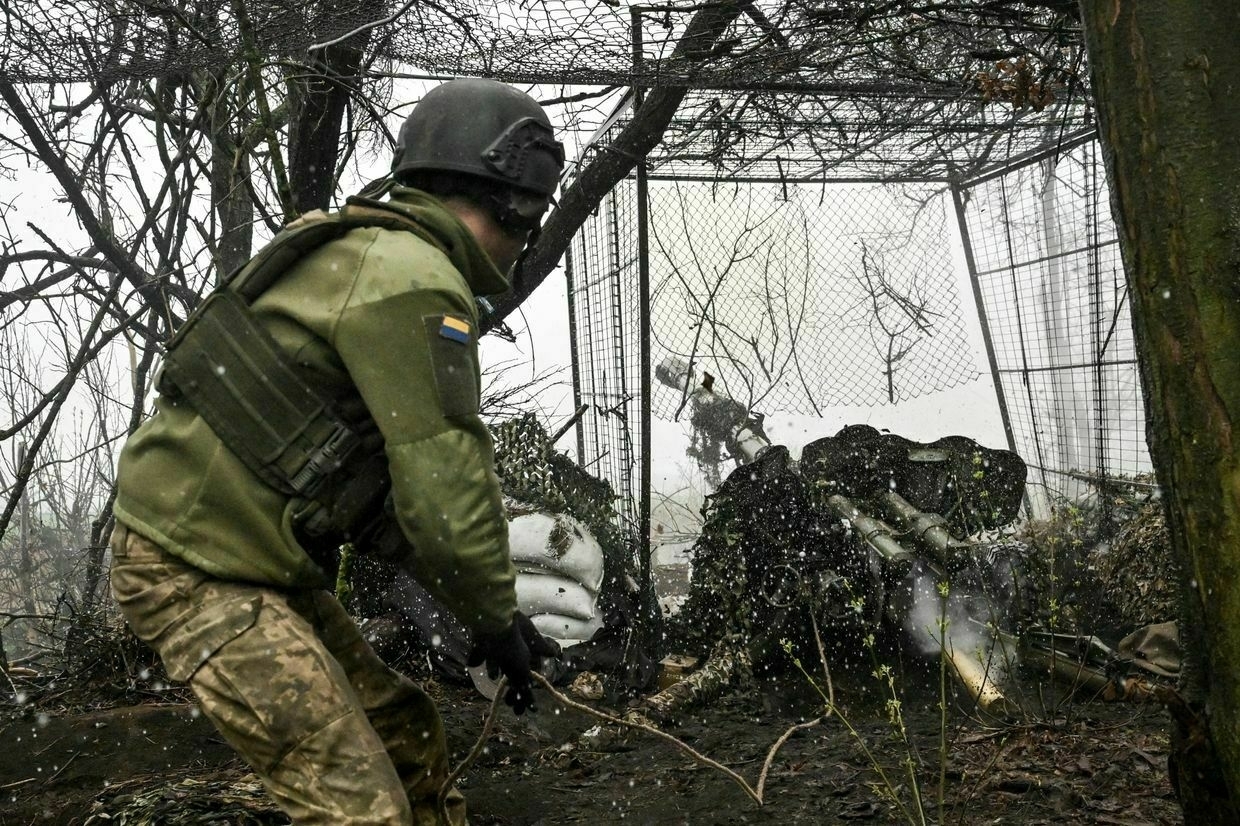
Key developments on April 18:
- U.S. proposes leaving occupied areas under Russian control, easing sanctions, Bloomberg reports
- ‘You’re fools’ — US may ‘take a pass’ on Ukraine-Russia talks if either side stalls, Trump says
- “Not our war” — US may drop Russia-Ukraine ceasefire efforts unless progress is made, Rubio says
- Kremlin spokesman claims “progress” in peace talks but says energy ceasefire period has expired
- Russian missile attack on Kharkiv on Good Friday kills 1, injures 112
U.S. proposals for a peace deal to end Russia’s war against Ukraine would leave the occupied territories under Russian control and ease sanctions against Moscow, Bloomberg reported on April 18, citing unnamed European officials.
The reports came a day after ceasefire talks between European, Ukrainian, and U.S. officials in Paris, where the outlines of the U.S. plan were discussed.
U.S. officials told European counterparts during meetings that they aim to secure a full ceasefire in Ukraine within weeks, Bloomberg reported, citing undisclosed sources.
Washington’s proposals include an effective freeze on Russia’s war, and Kyiv’s aspirations to join NATO would also be off the table, according to Bloomberg’s sources.
It is not clear if the U.S. is proposing recognizing Russia’s de facto control over the occupied territories or de jure recognition of them as Russian.
One of the officials told Bloomberg that the U.S. plans, which require further discussion with Kyiv, would not be a final settlement and that European allies would not recognize the occupied territories as Russian.
The officials also told Bloomberg that if Russia does not agree to stop the fighting, the talks would be in vain. They reportedly said that providing Ukraine with security guarantees to ensure any deal is essential.
President Volodymyr Zelensky has repeatedly said that Ukraine would not recognize the occupied regions as Russian as part of any peace deal.
‘More traitors in Russia’ — Ukrainian intel officer shares secrets of recent deep-strike drone successesThe aerial war between Russia and Ukraine is explosive in every sense. But beyond the physical dimension, it is also a battle of morale and information. Both sides are locked in a continuous back-and-forth of public statements and dramatic videos claiming hits and damage to the other side. There’sThe Kyiv IndependentKollen Post
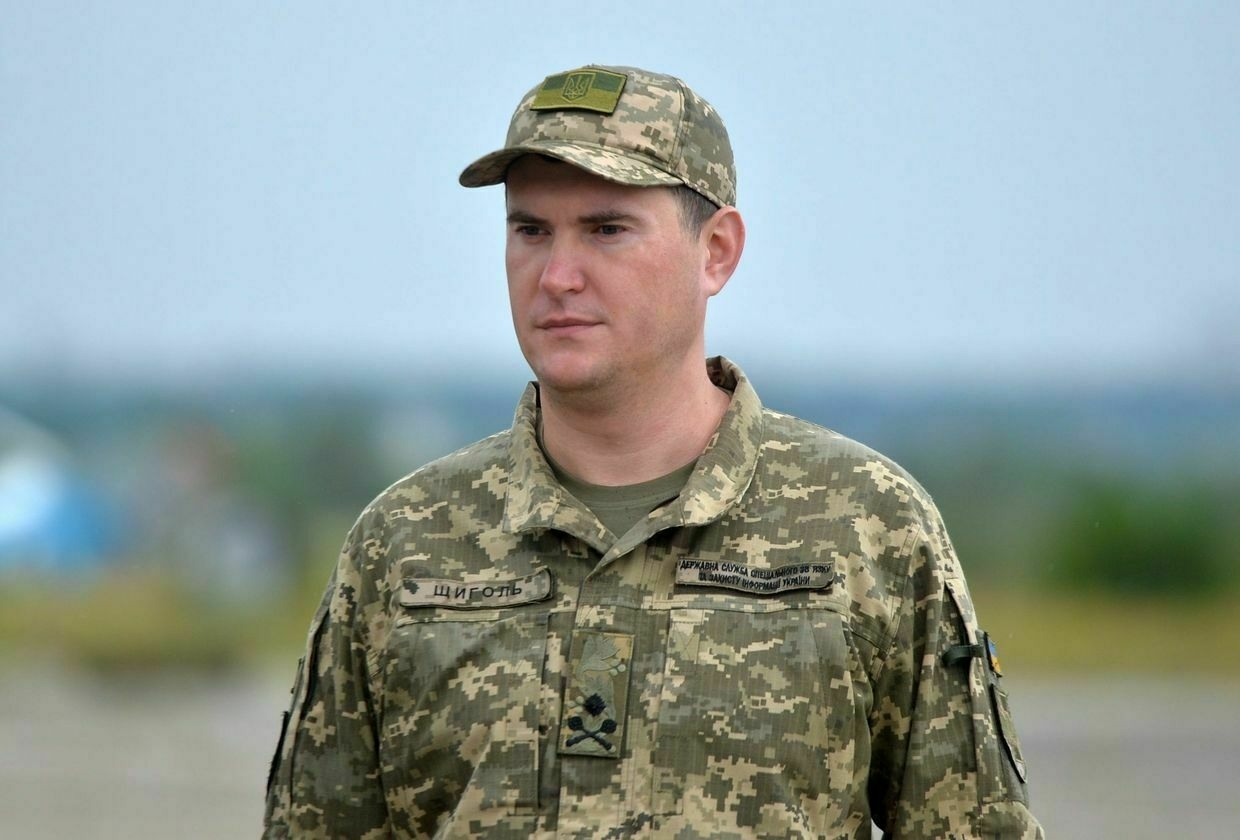
‘You’re fools’ — US may ‘take a pass’ on Ukraine-Russia talks if either side stalls, Trump saysWashington is ready to cease its mediation efforts to end Russia’s war against Ukraine if one of the sides “makes it very difficult” to settle, U.S. President Donald Trump told journalists on April 18.
“If for some reason one of the two parties makes it very difficult, we’re just going to say: ‘you’re foolish, you’re fools, you’re horrible people,’ and we’re just going to take a pass. But hopefully we won’t have to do that,” Trump said.
His statement echoes U.S. Secretary of State Marco Rubio’s remarks. Earlier in the day, Rubio said that the U.S. would abandon its attempts to negotiate a peace deal between Ukraine and Russia in the following days if there is no signal that an agreement is reachable.
Rubio’s statement was “communicating the (U.S.) president’s views,” CNN reported on April 18, citing an undisclosed source.
Trump also dismissed concerns that Russia is “playing” with Washington instead of engaging in meaningful negotiations.
“Nobody is playing with anybody. We’re going to see if we can get it done. I think we have a really good chance of getting it done,” he said.
Trump began his presidency by pledging to broker a ceasefire within 24 hours, eventually extending this deadline to 100 days.
These efforts have largely stalled, as Russia continues to reject a full 30-day ceasefire backed by Washington and Kyiv, and a partial truce on strikes against energy facilities has failed to hold.
The White House has grown increasingly frustrated with the delayed peace process, as Trump has chastised both Ukraine and Russia for failing to reach a deal.
As Russia refuses to accept ceasefire, will Trump pressure Moscow?Three weeks ago, Ukraine and the U.S. agreed to implement a full 30-day ceasefire. Russia declined to do so, issuing a list of demands instead. On April 4, Russia hit a residential neighborhood in the city of Kryvyi Rih with ballistic missiles and drones, killing 19 people, including nineThe Kyiv IndependentOleg Sukhov
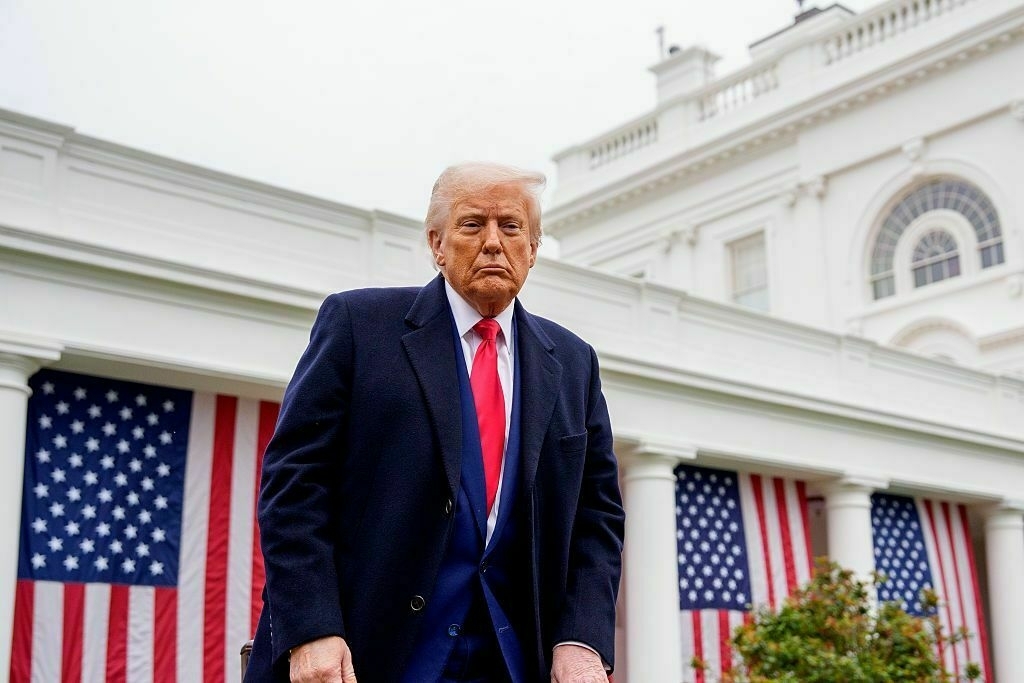
‘Not our war’ — US may drop Russia-Ukraine ceasefire efforts unless progress is made, Rubio saysThe U.S. will cease its attempts to negotiate a peace deal between Ukraine and Russia in the following days if there is no signal that an agreement is reachable, U.S. Secretary of State Marco Rubio said on April 18.
Speaking after meeting European and Ukrainian officials in Paris, Rubio said that U.S. President Donald Trump is interested in reaching a deal but has other priorities as well.
Trump began his presidency by pledging to broker a ceasefire within 24 hours, eventually extending this deadline to 100 days.
“We’re not going to continue with this endeavour for weeks and months on end. So we need to determine very quickly now, and I’m talking about a matter of days, whether or not this is doable in the next few weeks,” Rubio said.
“If it is, we’re in. If it’s not, then we have other priorities to focus on as well."
The U.S. president has also repeatedly laid the blame for the war on President Volodymyr Zelensky and former U.S. President Joe Biden, calling Russia’s invasion “Biden’s war."
Rubio echoed this sentiment in Paris, saying, “I think it’s important to remind everybody that the Ukraine war is a terrible thing, but it’s not our war. We didn’t start it."
Speaking to journalists, Rubio also said that the U.S. “spent three years, billions of dollars supporting the Ukrainian side… but now we’ve reached the point where we have other things we have to focus on."
Ukraine-US minerals deal to respect EU entry efforts; talks to conclude on April 26, memorandum saysThe Ukrainian government on April 18 published the text of a recently signed memorandum outlining a pending minerals agreement with the United States.The Kyiv IndependentTim Zadorozhnyy
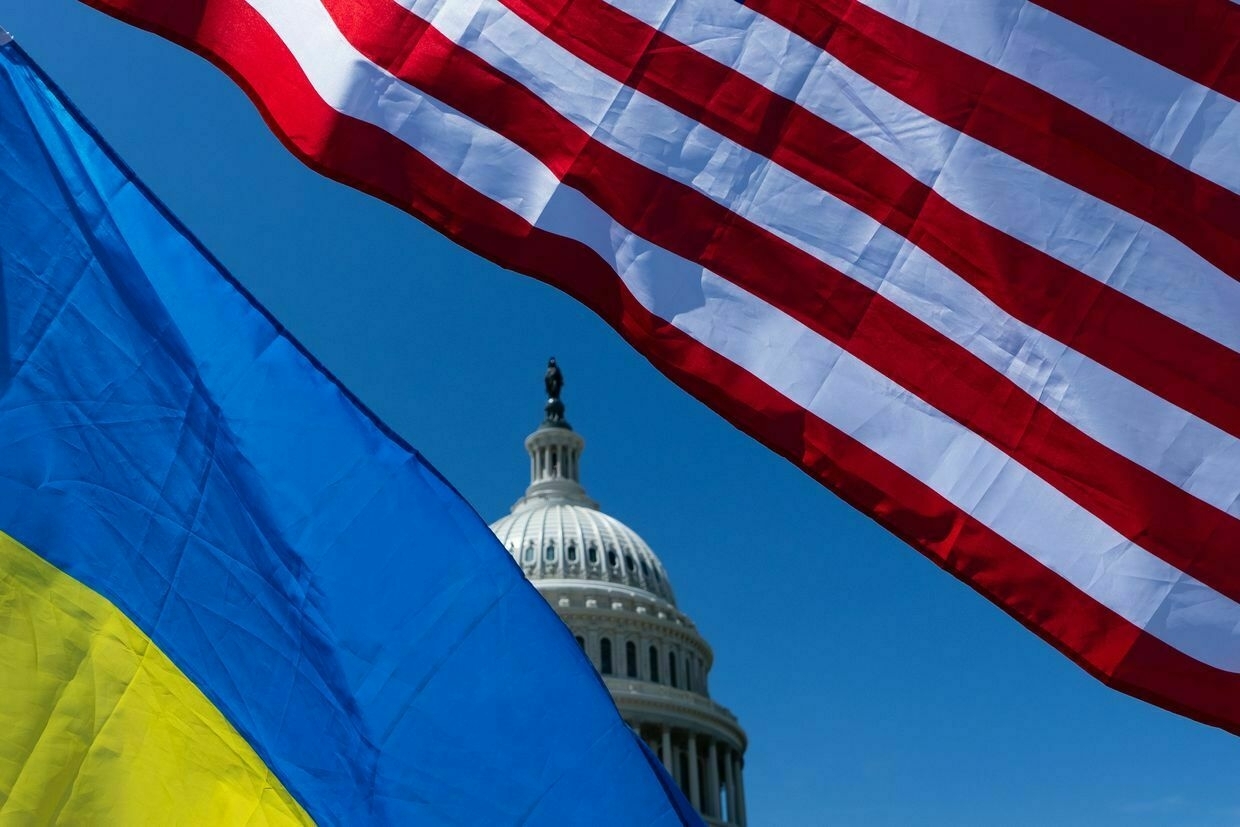
Kremlin spokesman claims ‘progress’ in peace talks but says energy ceasefire period has expiredKremlin spokesman Dmitry Peskov said on April 18 that there had been progress in peace talks but added that the one-month period for a ban on energy infrastructure strikes had expired.
He did not elaborate on whether Russia is planning to resume attacks on energy facilities or extend the ban.
“We believe that certain progress can, in fact, already be acknowledged,” Peskov said. “There are already some developments, but, of course, there are still many complicated discussions ahead."
He cited a partial ceasefire on strikes against energy facilities as a sign of progress, falsely claiming that Russia had complied with it and accusing Ukraine of violating the agreement.
Russia first mentioned that it was ready to stop strikes on infrastructure facilities for one month on Feb. 18. Ukraine agreed to the proposal following talks with the U.S. in Riyadh on March 25.
Since then, Moscow has violated the ceasefire more than 30 times, Foreign Ministry Spokesperson Heorhii Tykhyi said on April 16.
Peskov added, however, that the one-month period for the energy infrastructure ceasefire had expired.
“The one-month period has indeed expired,” he said. “At the moment, there have been no other instructions from the Supreme Commander-in-Chief, President of Russia Vladimir Putin."
Ukraine-US minerals deal to respect EU entry efforts; talks to conclude on April 26, memorandum saysThe Ukrainian government on April 18 published the text of a recently signed memorandum outlining a pending minerals agreement with the United States.The Kyiv IndependentTim Zadorozhnyy

Russian missile attack on Kharkiv on Good Friday kills 1, injures 112A Russian missile strike on Kharkiv on the morning of April 18 killed one person and injured at least 112 others, including eight children, authorities reported.
“According to preliminary information, the strikes on Kharkiv were carried out with ballistic missiles equipped with cluster munitions. That is why the affected areas are so extensive,” Mayor Ihor Terekhov wrote.
The attack damaged at least 20 apartment buildings, 30 houses, and an educational institution. A fire broke out on the premises of an enterprise, covering an area of 450 square meters.
The attack came as Russia continues to reject a U.S.-mediated proposal for a full 30-day ceasefire. Kyiv reiterated that it would be ready to accept the truce if Moscow agreed to abide by the terms.
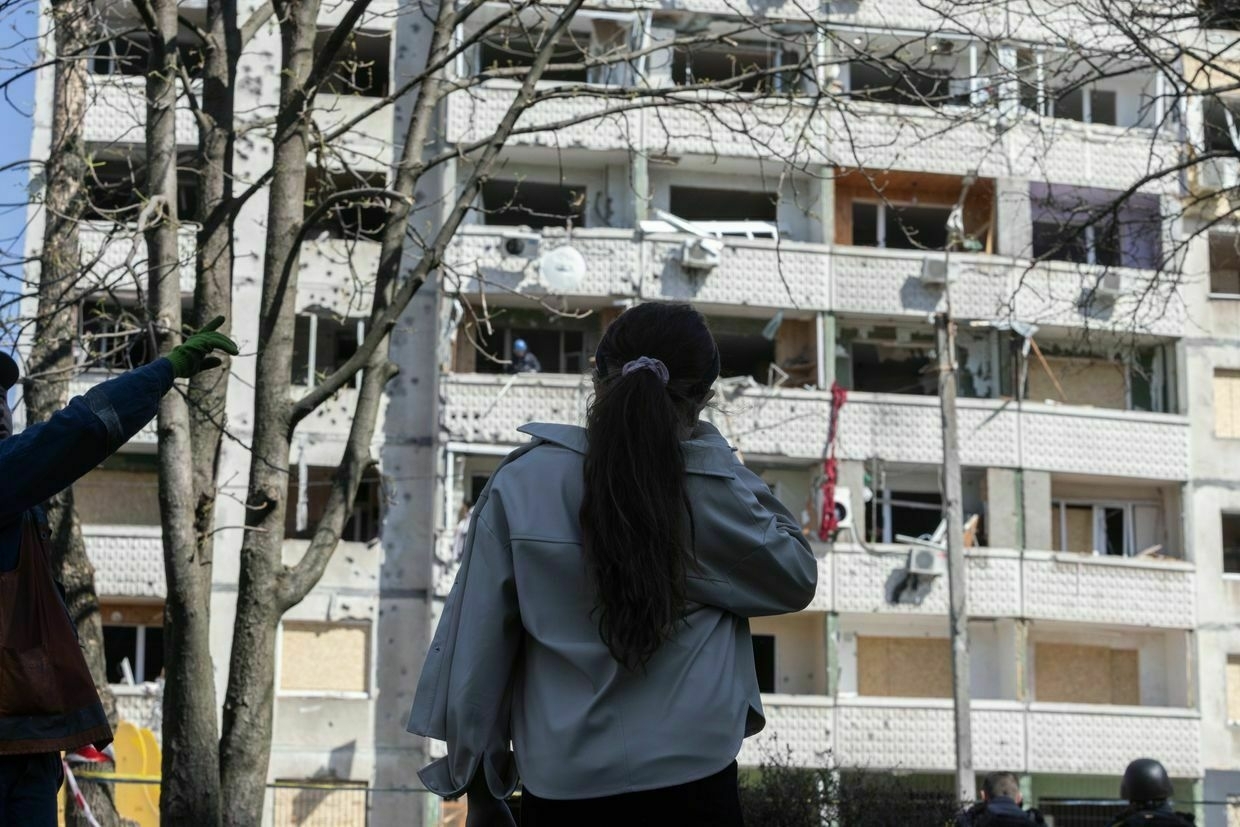
A view of the aftermath of a Russian missile attack in Kharkiv, Ukraine, on April 18, 2025. (Yevhen Titov/NurPhoto via Getty Images) Note from the author:
Ukraine War Latest is put together by the Kyiv Independent news desk team, who keep you informed 24 hours a day, seven days a week. If you value our work and want to ensure we have the resources to continue, join the Kyiv Independent community.
-
'You're fools' — US may 'take a pass' on Ukraine-Russia talks if either side stalls, Trump says
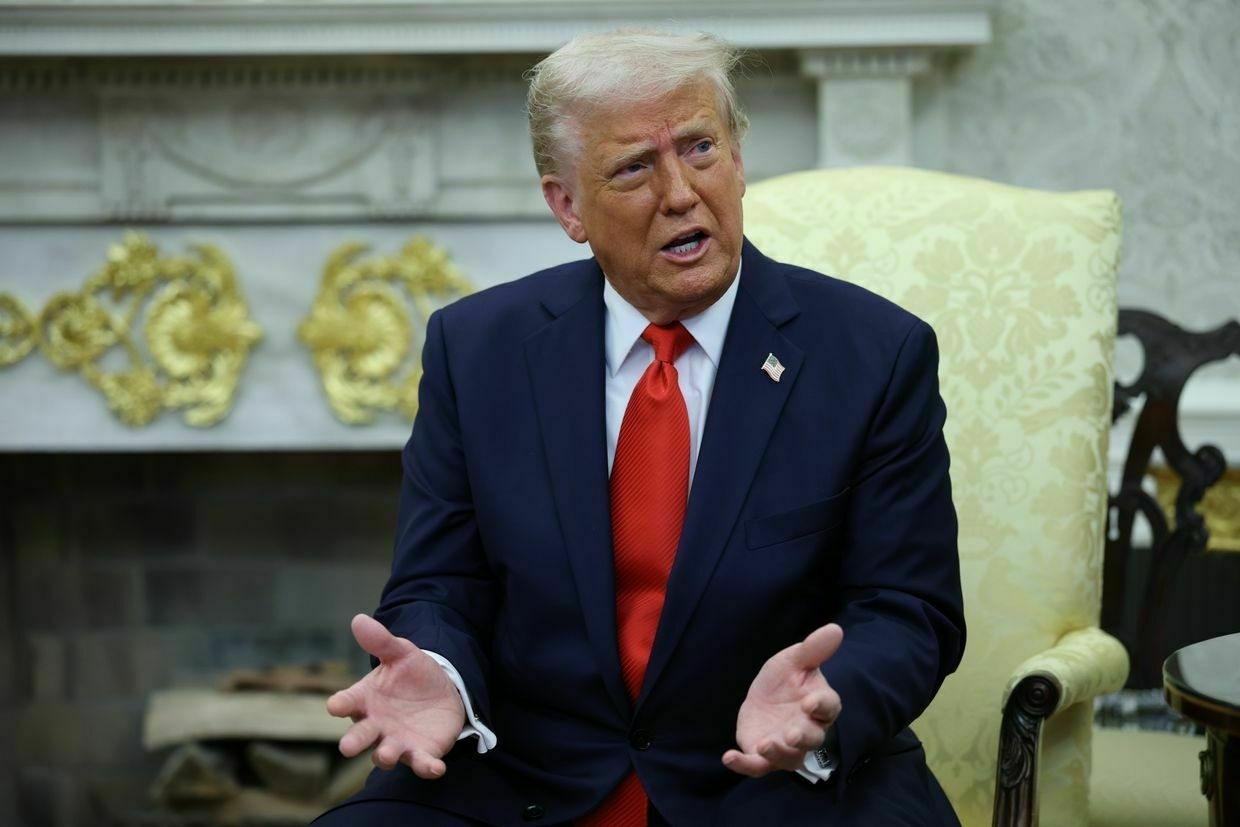
Washington is ready to cease its mediation efforts to end Russia’s war against Ukraine if one of the sides “makes it very difficult” to settle, U.S. President Donald Trump told journalists on April 18.
“If for some reason one of the two parties makes it very difficult, we’re just going to say: ‘you’re foolish, you’re fools, you’re horrible people,’ and we’re just going to take a pass. But hopefully we won’t have to do that,” Trump said.
His statement echoes U.S. Secretary of State Marco Rubio’s remarks. Earlier in the day, Rubio said that the U.S. would abandon its attempts to negotiate a peace deal between Ukraine and Russia in the following days if there is no signal that an agreement is reachable.
Rubio’s statement was “communicating the (U.S.) president’s views,” CNN reported on April 18, citing an undisclosed source.
Trump also dismissed concerns that Russia is “playing” with Washington instead of engaging in meaningful negotiations.
“Nobody is playing with anybody. We’re going to see if we can get it done. I think we have a really good chance of getting it done,” he said.
Trump began his presidency by pledging to broker a ceasefire within 24 hours, eventually extending this deadline to 100 days.
These efforts have largely stalled, as Russia continues to reject a full 30-day ceasefire backed by Washington and Kyiv, and a partial truce on strikes against energy facilities has failed to hold.
The White House has grown increasingly frustrated with the delayed peace process, as Trump has chastised both Ukraine and Russia for failing to reach a deal.
The Wall Street Journal reported earlier this week that Rubio and Special Envoy for Ukraine Keith Kellogg had been urging Trump to adopt a tougher stance toward Moscow. So far, Trump has been leaning toward the position of Special Envoy for the Middle East Steve Witkoff, who backs a rapprochement with Russia, according to the newspaper.
Kyiv supported an unconditional ceasefire during talks with the U.S. in Jeddah on March 11 but also stressed that a comprehensive peace deal must include security guarantees — a commitment that Trump has been reluctant to make.
Moscow rejected the ceasefire proposal unless it included conditions undermining Ukraine’s defense capabilities, including a full halt on military aid.
US proposes leaving occupied areas under Russian control, easing sanctions, Bloomberg reportsOne of the officials told Bloomberg that the U.S. plans, which require further discussion with Kyiv, would not be a final settlement and that European allies would not recognize the occupied territories as Russian.The Kyiv IndependentKateryna Denisova
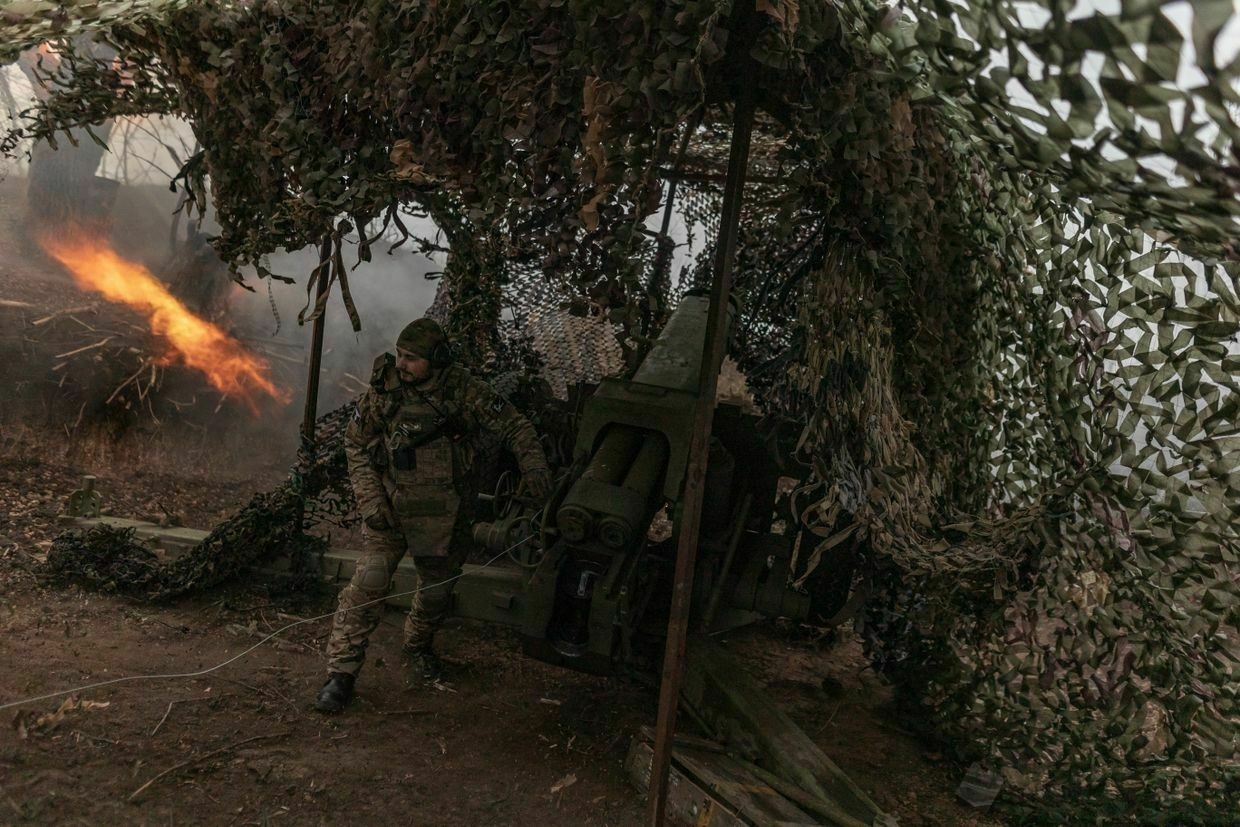
-
Kremlin spokesman claims 'progress' in peace talks but says energy ceasefire period has expired
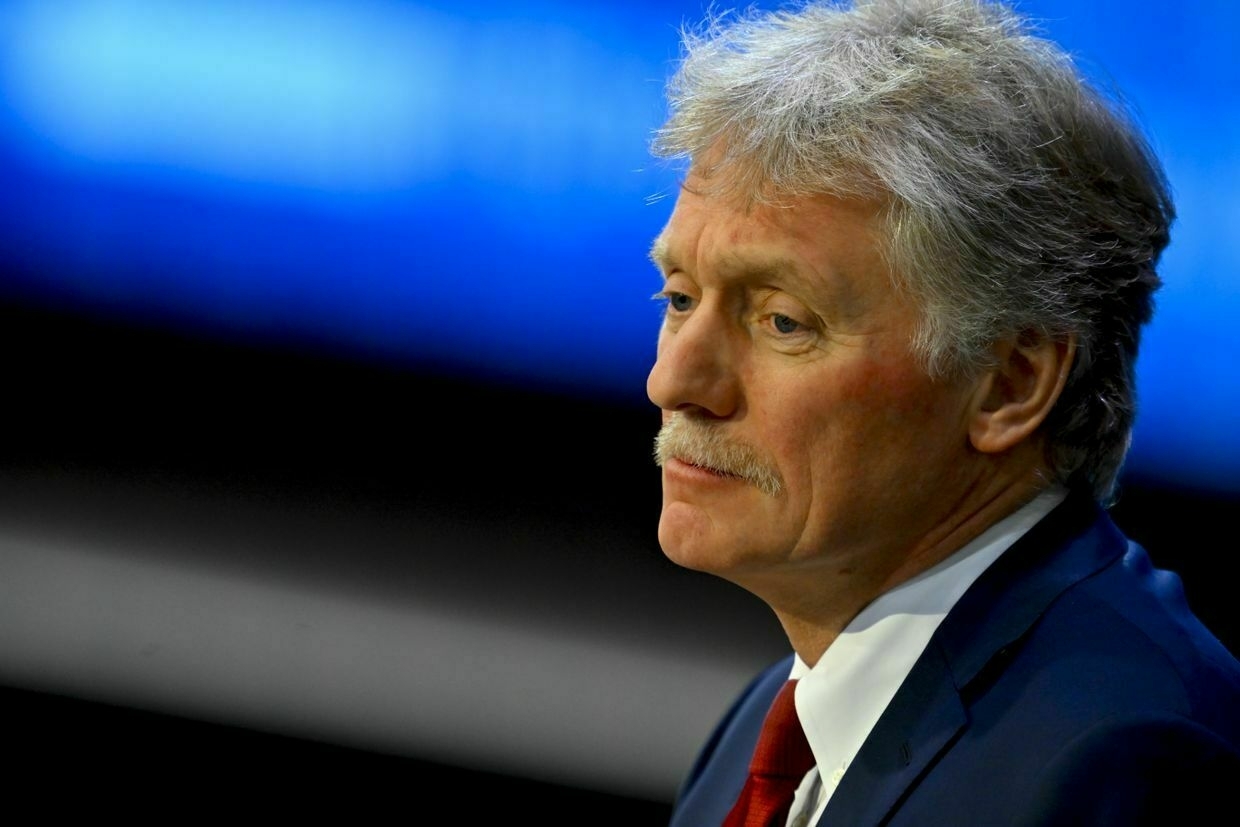
Kremlin spokesman Dmitry Peskov said on April 18 that there had been progress in peace talks but added that the one-month period for a ban on energy infrastructure strikes had expired.
He did not elaborate on whether Russia is planning to resume attacks on energy facilities or extend the ban.
Earlier in the day, U.S. Secretary of State Marco Rubio warned that the U.S. would cease its attempts to broker a deal if no breakthrough were achieved soon. Speaking after the Paris meetings, he said U.S. President Donald Trump remains interested in a resolution but has “other priorities” if the Kremlin refuses to engage.
“We believe that certain progress can, in fact, already be acknowledged,” Peskov said. “There are already some developments, but, of course, there are still many complicated discussions ahead,” Peskov said.
He cited a partial ceasefire on strikes against energy facilities as a sign of progress, falsely claiming that Russia had complied with it and accusing Ukraine of violating the agreement.
Russia first mentioned that it was ready to stop strikes on infrastructure facilities for one month on Feb. 18. Ukraine agreed to the proposal following talks with the U.S. in Riyadh on March 25.
Since then, Moscow has violated the ceasefire more than 30 times, Foreign Ministry Spokesperson Heorhii Tykhyi said on April 16.
Peskov added, however, that the one-month period for the energy infrastructure ceasefire had expired.
“The one-month period has indeed expired,” he said. “At the moment, there have been no other instructions from the Supreme Commander-in-Chief, President of Russia Vladimir Putin.”
The White House has grown increasingly frustrated with the delayed peace process, as Trump has chastised both Ukraine and Russia for failing to reach a deal.
Trump has also repeatedly laid the blame for the war on President Volodymyr Zelensky and former U.S. President Joe Biden, calling Russia’s invasion “Biden’s war,” parroting Russian propaganda narratives.
Kyiv supported an unconditional ceasefire during talks with the U.S. in Jeddah on March 11 but also stressed that a comprehensive peace deal must include security guarantees — a commitment that Trump has been reluctant to make.
Moscow has rejected the ceasefire proposal, demanding conditions that undermine Ukraine’s defense capabilities, including a full halt on Western military aid.
US proposes leaving occupied areas under Russian control, easing sanctions, Bloomberg reportsOne of the officials told Bloomberg that the U.S. plans, which require further discussion with Kyiv, would not be a final settlement and that European allies would not recognize the occupied territories as Russian.The Kyiv IndependentKateryna Denisova
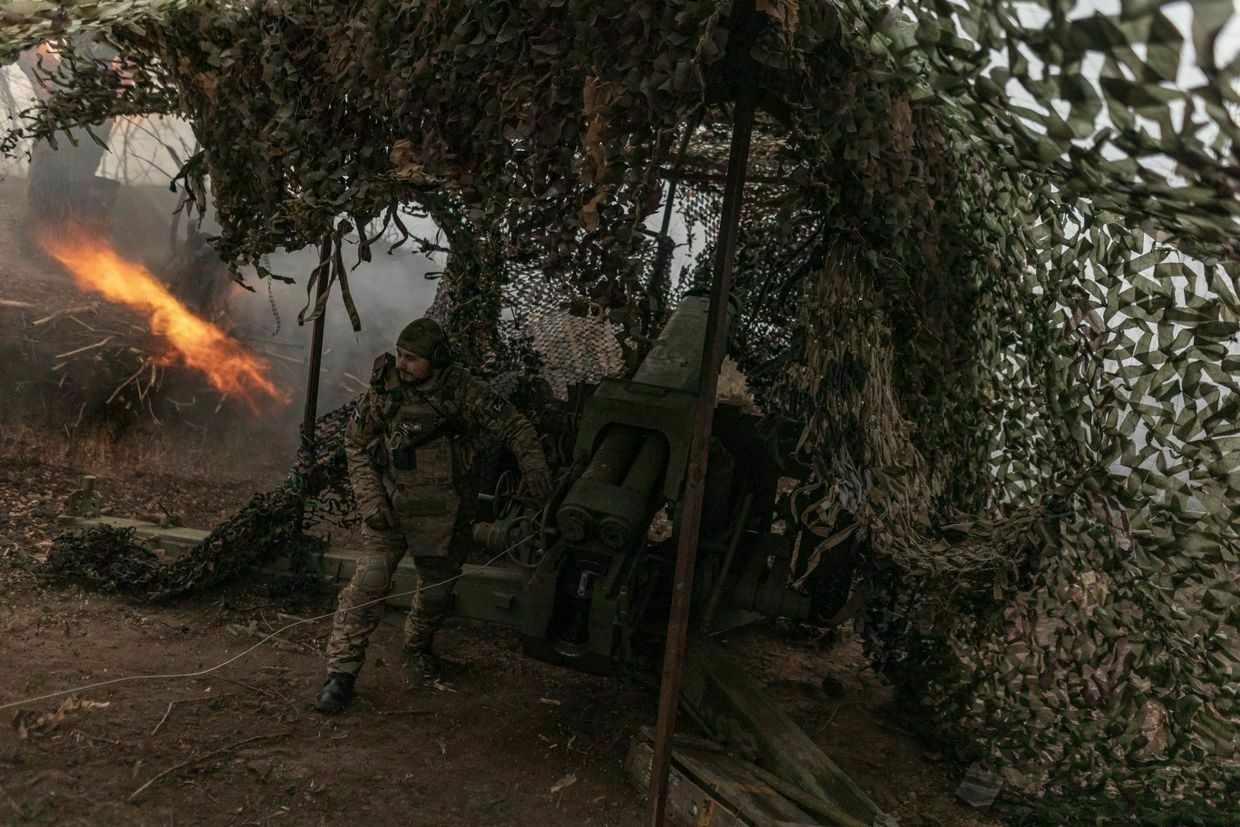
-
Trump on the Ceasefire. Memorandum on Economic Partnership. Russian Intelligence Found Fascism in EU
-
Kremlin announces end of ceasefire on Ukraine energy strikes
The Kremlin announced that the month's ceasefire on Russian strikes targeting Ukraine's energy infrastructure has expired, yet Russian President Vladimir Putin has not issued new orders,said Kremlin spokesperson Dmitry Peskov.
"The month has indeed passed, but at this point, no other instructions have been given by the Supreme Commander-in-Chief, President Putin," Peskov stated in response to queries on whether the end of the moratorium signifies that both sides could resume strikes.
Peskov emphasized Russia's pursuit of resolution in Ukraine and the safeguarding of its interests. He also noted that communications with U.S. President Donald Trump are "quite complex."
Previously, Donald Trump and Vladimir Putin reached an agreement to halt strikes on all energy and infrastructure targets. The Kremlin acknowledged that Putin supported Trump's proposal for a mutual abstention from attacks on energy infrastructure for 30 days, issuing commands to military forces accordingly. However, the sides did not agree on a complete ceasefire over the 30-day period as Trump had hoped.
Since then, Ukraine and Russia have repeatedly accused each other of breaking agreements and continuing hostilities.
-
US proposes leaving occupied areas under Russian control, easing sanctions, Bloomberg reports
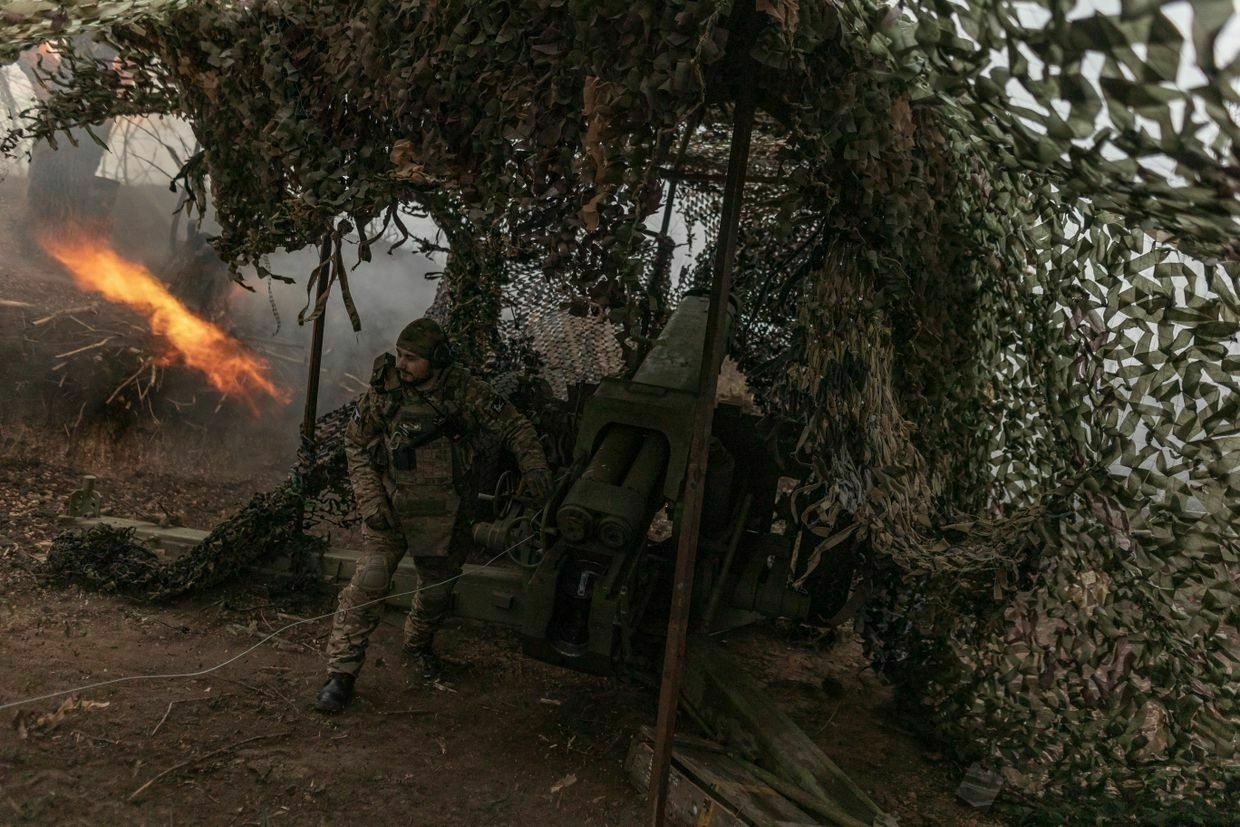
U.S. proposals for a peace deal to end Russia’s war against Ukraine would leave the occupied territories under Russian control and ease sanctions against Moscow, Bloomberg reported on April 18, citing unnamed European officials.
The reports came a day after ceasefire talks between European, Ukrainian, and U.S. officials in Paris, where the outlines of the U.S. plan were discussed.
U.S. officials told European counterparts during meetings that they aim to secure a full ceasefire in Ukraine within weeks, Bloomberg reported, citing undisclosed sources.
Washington’s proposals include an effective freeze on Russia’s war, and Kyiv’s aspirations to join NATO would also be off the table, according to Bloomberg’s sources.
It is not clear if the U.S. is proposing recognizing Russia’s de facto control over the occupied territories or de jure recognition of them as Russian.
One of the officials told Bloomberg that the U.S. plans, which require further discussion with Kyiv, would not be a final settlement and that European allies would not recognize the occupied territories as Russian.
U.S. Special Envoy Steve Witkoff, who also attended the Paris talks, has suggested that a potential peace deal could center on the status of five territories. He was likely referring to Crimea, illegally annexed by Russia in 2014, along with the partially occupied Donetsk, Luhansk, Zaporizhzhia, and Kherson oblasts, which were annexed in 2022.
Witkoff has also told President Donald Trump that giving Moscow “ownership” of four occupied Ukrainian regions would be the fastest way to achieve a ceasefire, Reuters reported on April 11, citing two unnamed U.S. officials and five other undisclosed sources.
On April 17, President Volodymyr Zelensky accused Witkoff of spreading Russian propaganda and overstepping his authority by discussing Ukrainian territory in back-channel peace talks with Moscow.
Zelensky has repeatedly said that Ukraine would not recognize the occupied regions as Russian as part of any peace deal.
The officials also told Bloomberg that if Russia does not agree to stop the fighting, the talks would be in vain. They reportedly said that providing Ukraine with security guarantees to ensure any deal is essential.
The U.S. and Ukraine agreed to a full ceasefire on March 11, but Russia rejected it.
Instead, Ukraine, Russia, and the U.S. agreed on March 25 to halt attacks on energy infrastructure and fighting in the Black Sea.
However, the Kremlin has blocked the partial ceasefire as well, saying that the Black Sea ceasefire would take effect only after some sanctions against Russia are lifted. Russia and Ukraine have also accused each other of violating the ban on energy infrastructure strikes.
Despite this, U.S. Vice President JD Vance said on April 18 that the U.S. is optimistic it can put an end to Russia’s war and has “some interesting things to report on."
U.S. Secretary of State Marco Rubio warned on April 18 that the U.S. would abandon efforts to broker a deal if no breakthrough were achieved soon. Speaking after the Paris meetings, he said Trump remains interested in a resolution but has “other priorities” if the Kremlin refuses to engage.
Ukraine-US minerals deal to respect EU entry efforts; talks to conclude on April 26, memorandum saysThe Ukrainian government on April 18 published the text of a recently signed memorandum outlining a pending minerals agreement with the United States.The Kyiv IndependentTim Zadorozhnyy
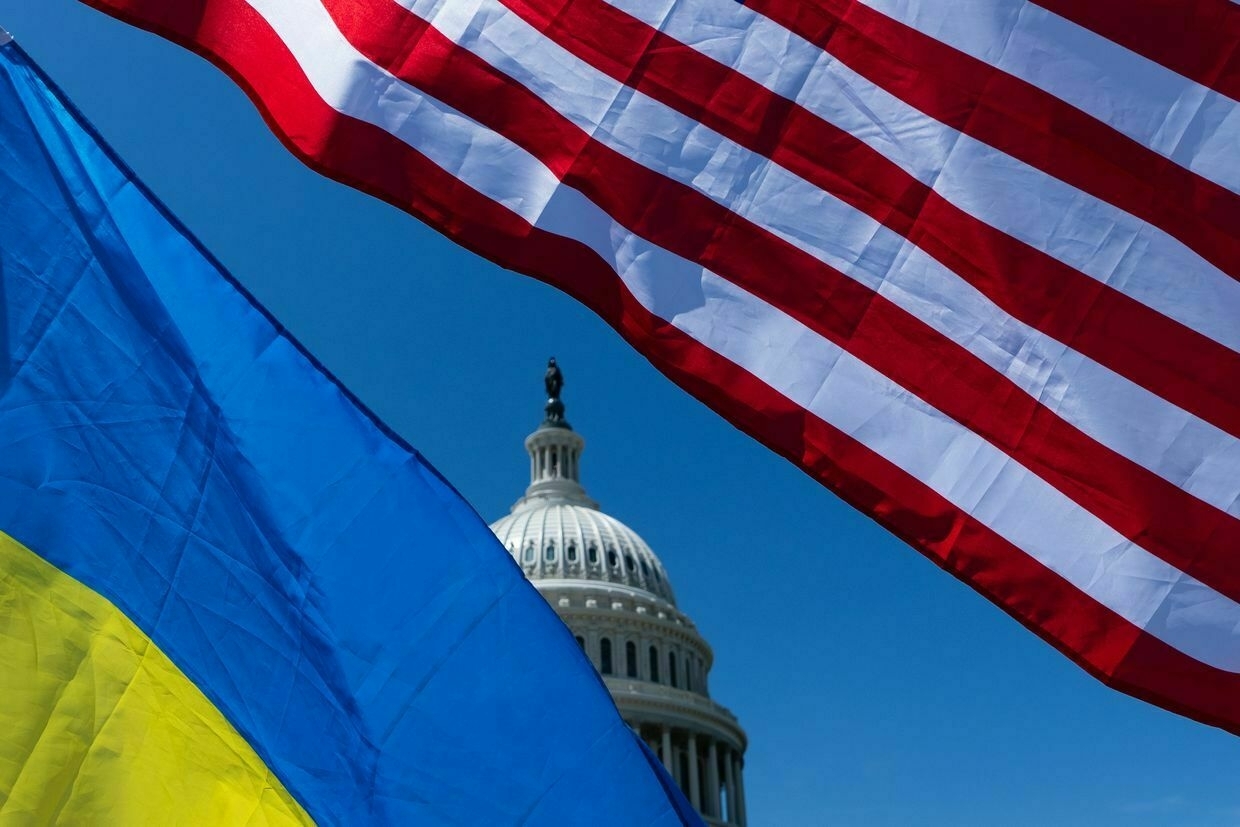
-
Vance 'optimistic' about efforts to end Russia-Ukraine war
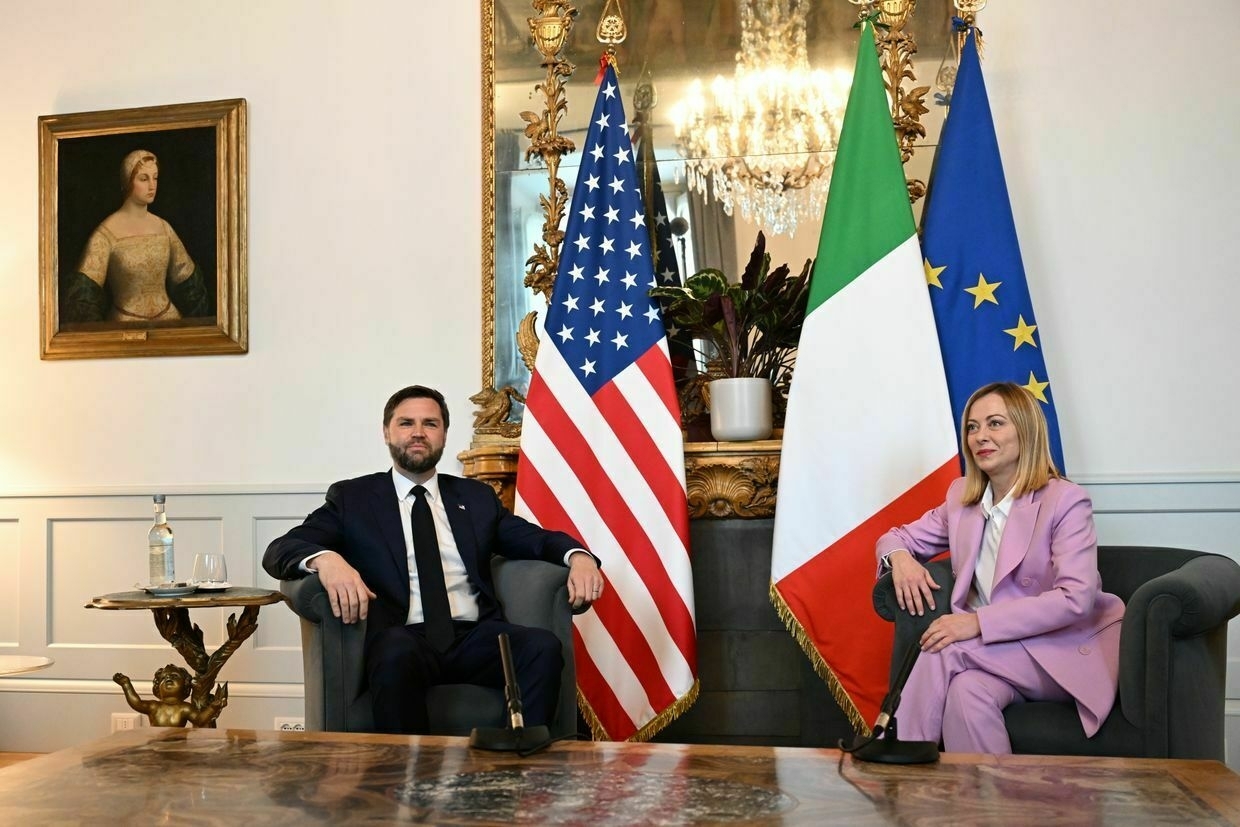
The United States remains hopeful that Russia’s full-scale war against Ukraine can be brought to an end, U.S. Vice President JD Vance said during a visit to Italy on April 18, Reuters reported.
“I want to update the prime minister (Giorgia Meloni) on some of the negotiations between Russia and Ukraine… even in the past 24 hours, we think we have some interesting things to report on,” Vance told reporters, without providing details.
“Since there are the negotiations, I won’t prejudge them, but we do feel optimistic that we can hopefully bring this war, this very brutal war, to a close.”
Vance’s comments came after U.S. Secretary of State Marco Rubio said Washington would abandon its diplomatic push in the coming days unless Russia signals readiness to engage.
Speaking after meetings with European and Ukrainian officials in Paris, Rubio emphasized that while U.S. President Donald Trump remains interested in reaching a deal, he has “other priorities” if no agreement appears possible.
The U.S. president began his term promising a ceasefire within 24 hours of taking office, later extending the timeline to 100 days.
During a meeting in Paris on April 17, U.S. officials told their European counterparts they aim to secure a full ceasefire within weeks, according to Bloomberg. That meeting included Ukrainian officials and French President Emmanuel Macron.
Kyiv accepted an unconditional 30-day ceasefire proposal during U.S.-led talks in Jeddah on March 11. Moscow rejected the deal unless it included conditions undermining Ukraine's defense capabilities, including a full halt on military aid.
The Kremlin also demanded a ban on Ukraine's NATO membership, and full Russian control over occupied parts of Donetsk, Luhansk, Kherson, and Zaporizhzhia oblasts — conditions Kyiv has repeatedly said are unacceptable.
The White House has grown frustrated over the lack of progress. Russia continues its offensive operations, and a limited truce on strikes targeting energy infrastructure has failed to hold.
Trump has increasingly blamed both Ukraine and Russia for failing to reach a deal and has publicly called the war "Biden's war," placing responsibility on his predecessor, former President Joe Biden, and President Volodymyr Zelensky.
Ukraine has maintained that any peace deal must include security guarantees and has said it would never recognize the Russian occupation of its sovereign territory.
‘Territories are first and foremost people:’ Zaporizhzhia, Kherson residents anxiously watch Witkoff debate the land they live onZaporizhzhia — During what would usually be evening rush hour in Zaporizhzhia, cars move easily through main streets that were once choked with traffic. As the shadows grow longer, soldiers calmly remove camouflage netting from the air defense weapons they’ll man against Russia’s deadly attacks unti…The Kyiv IndependentAndrea Januta
